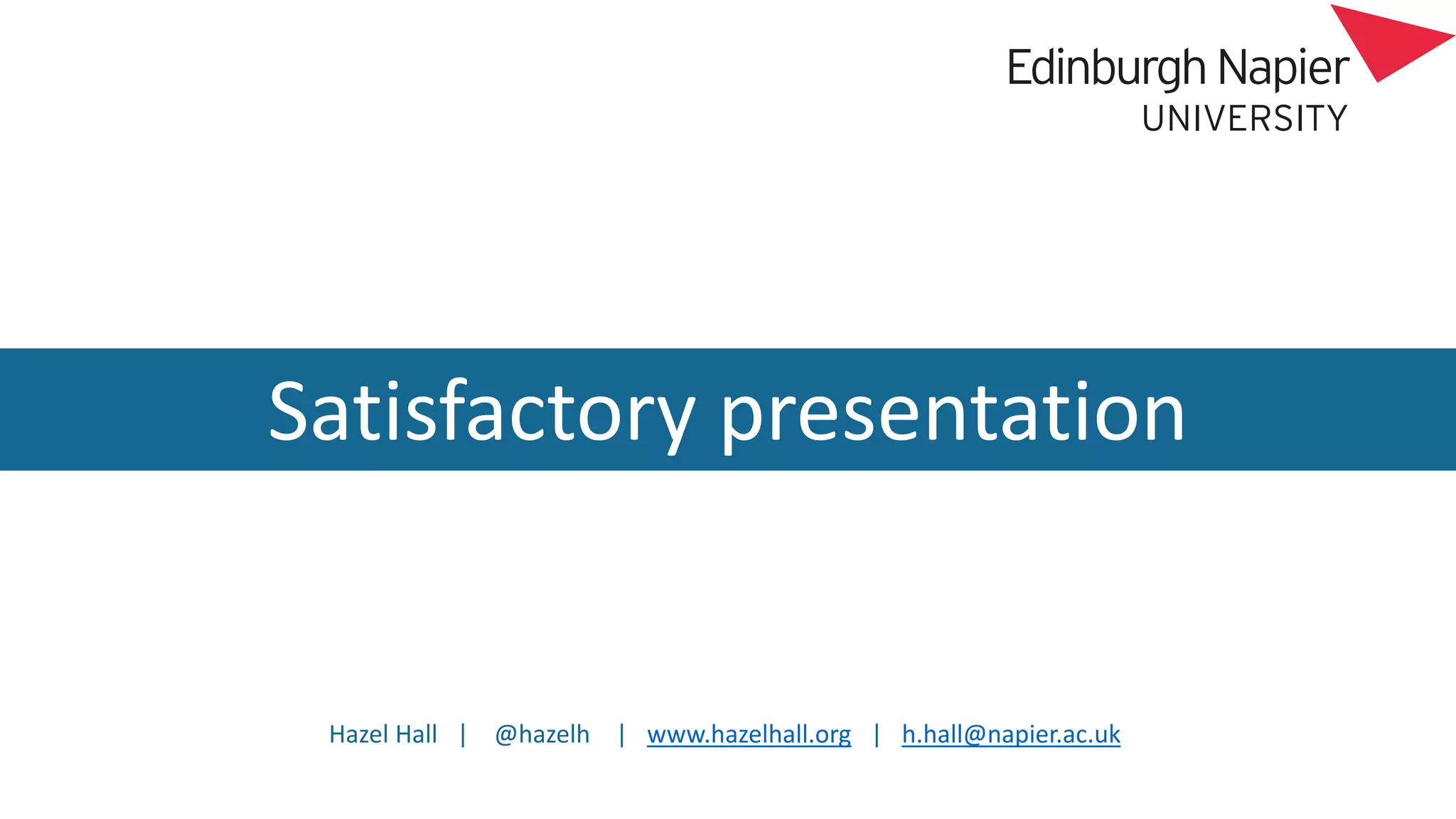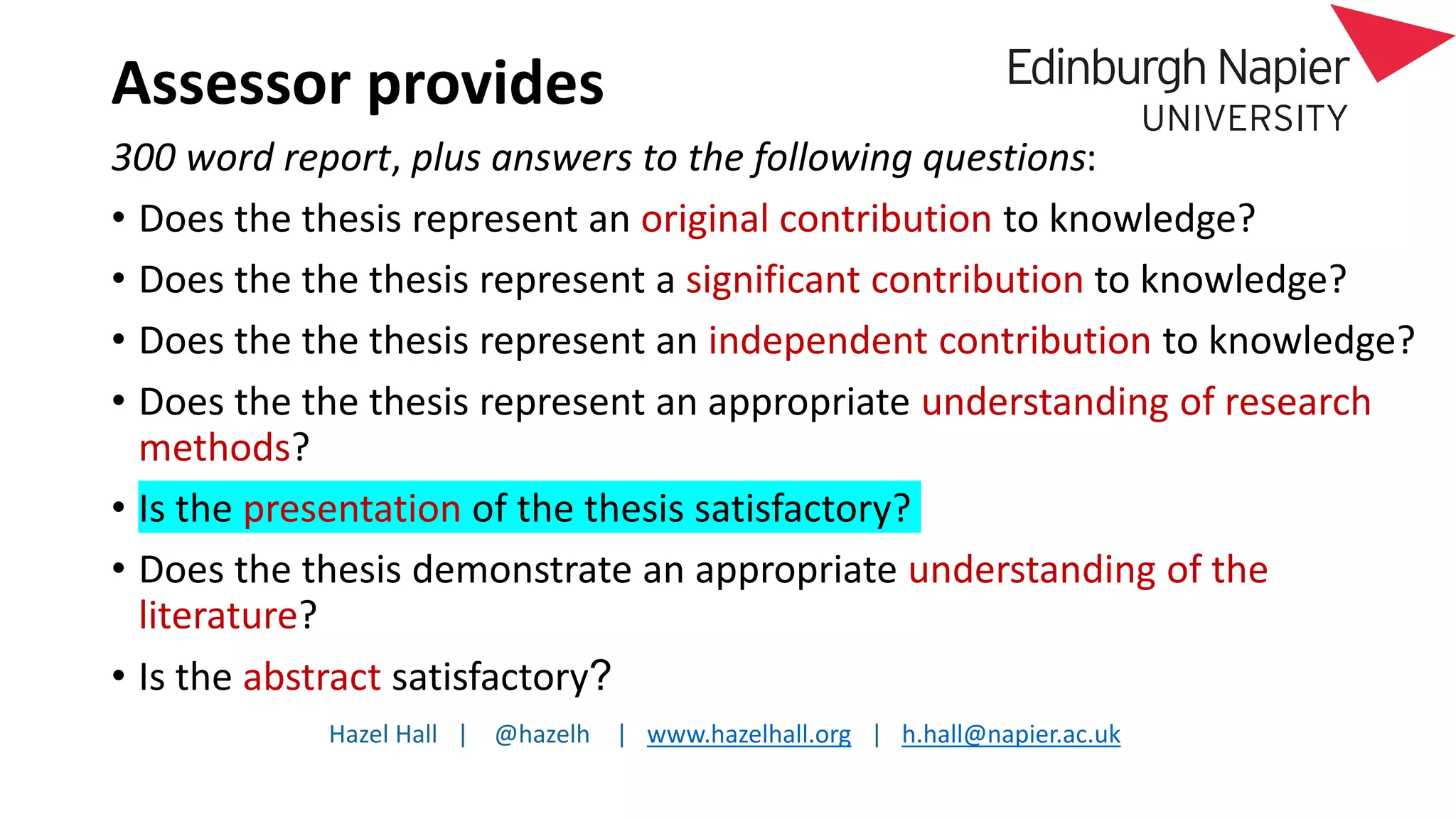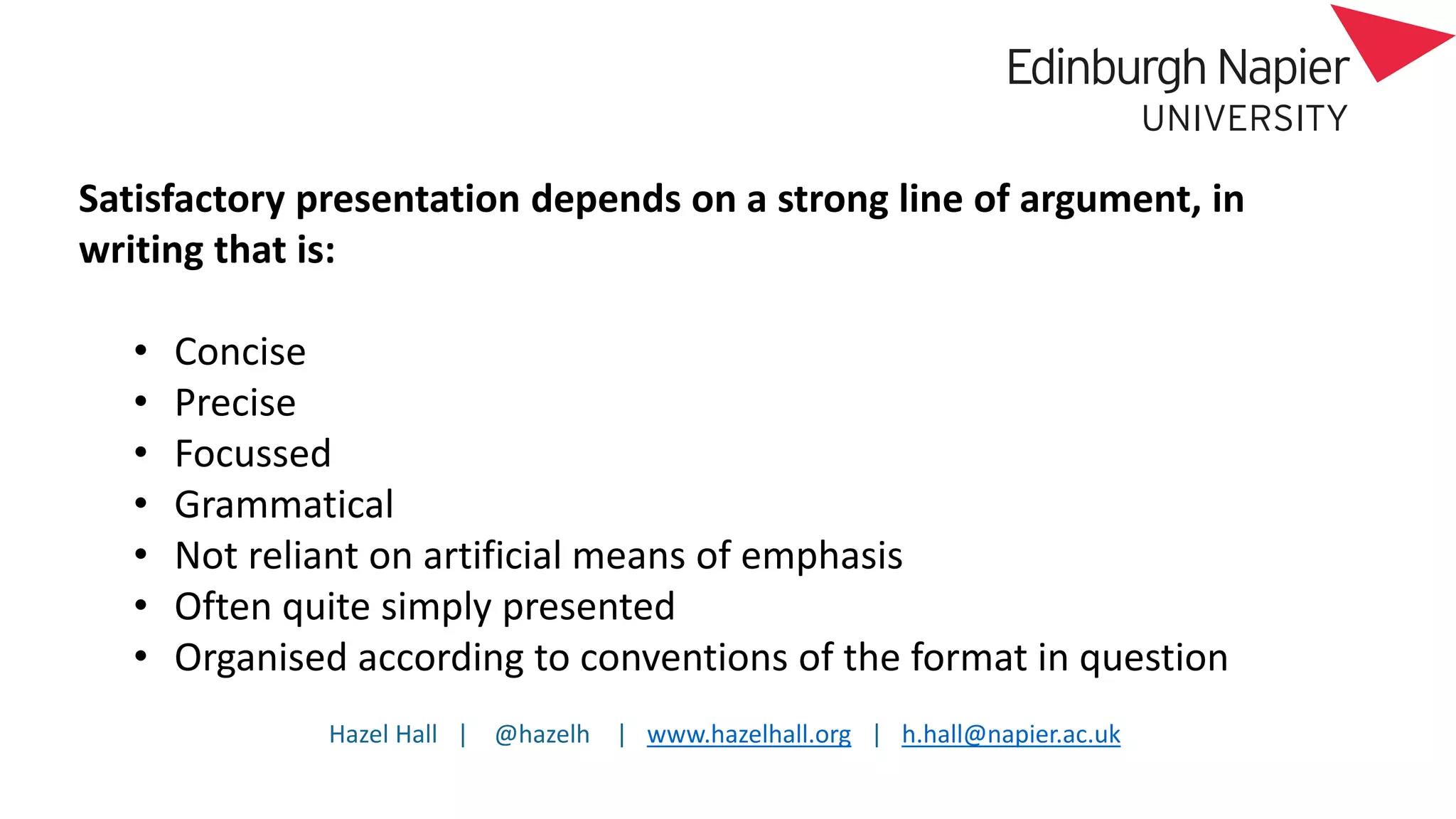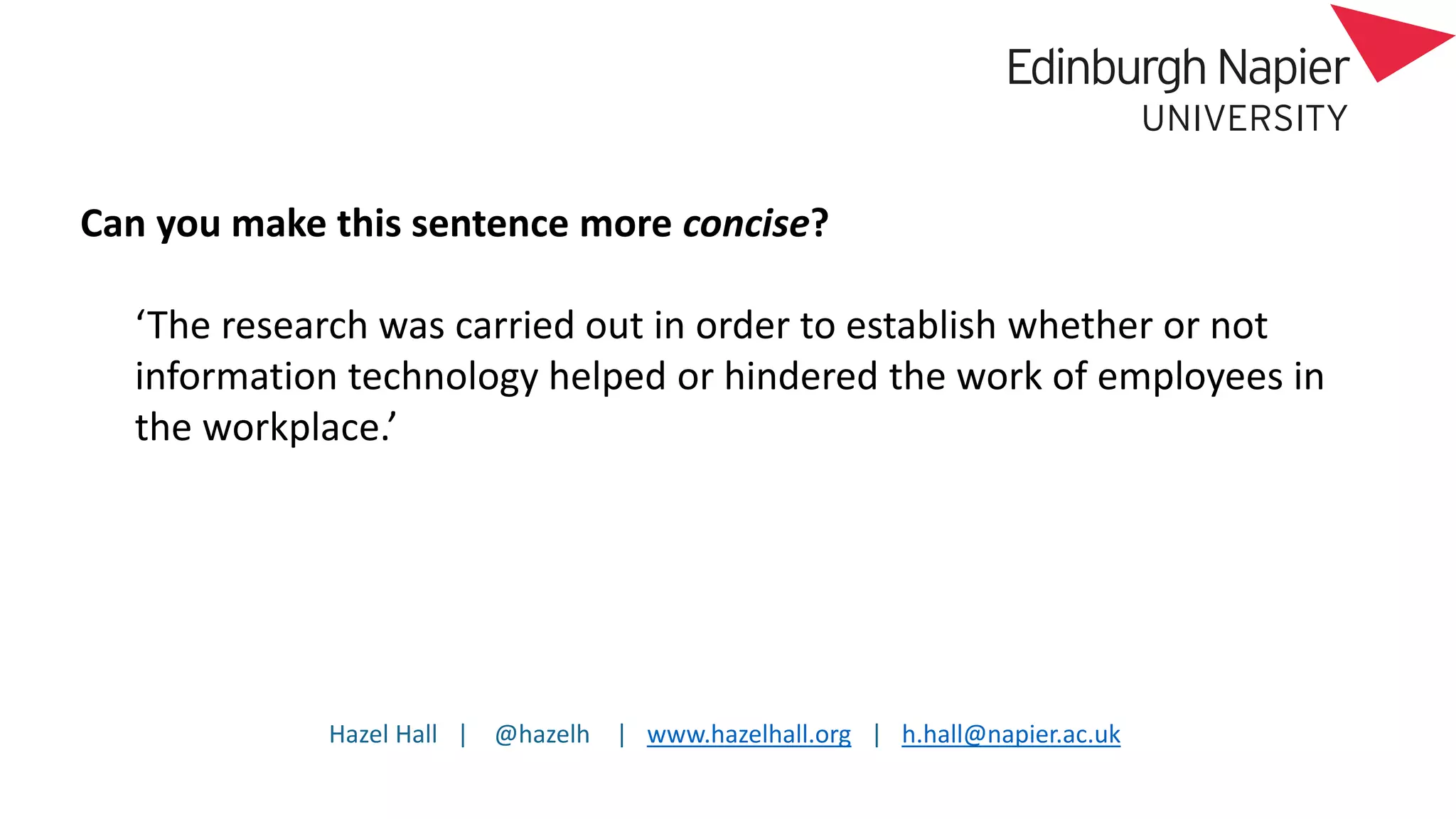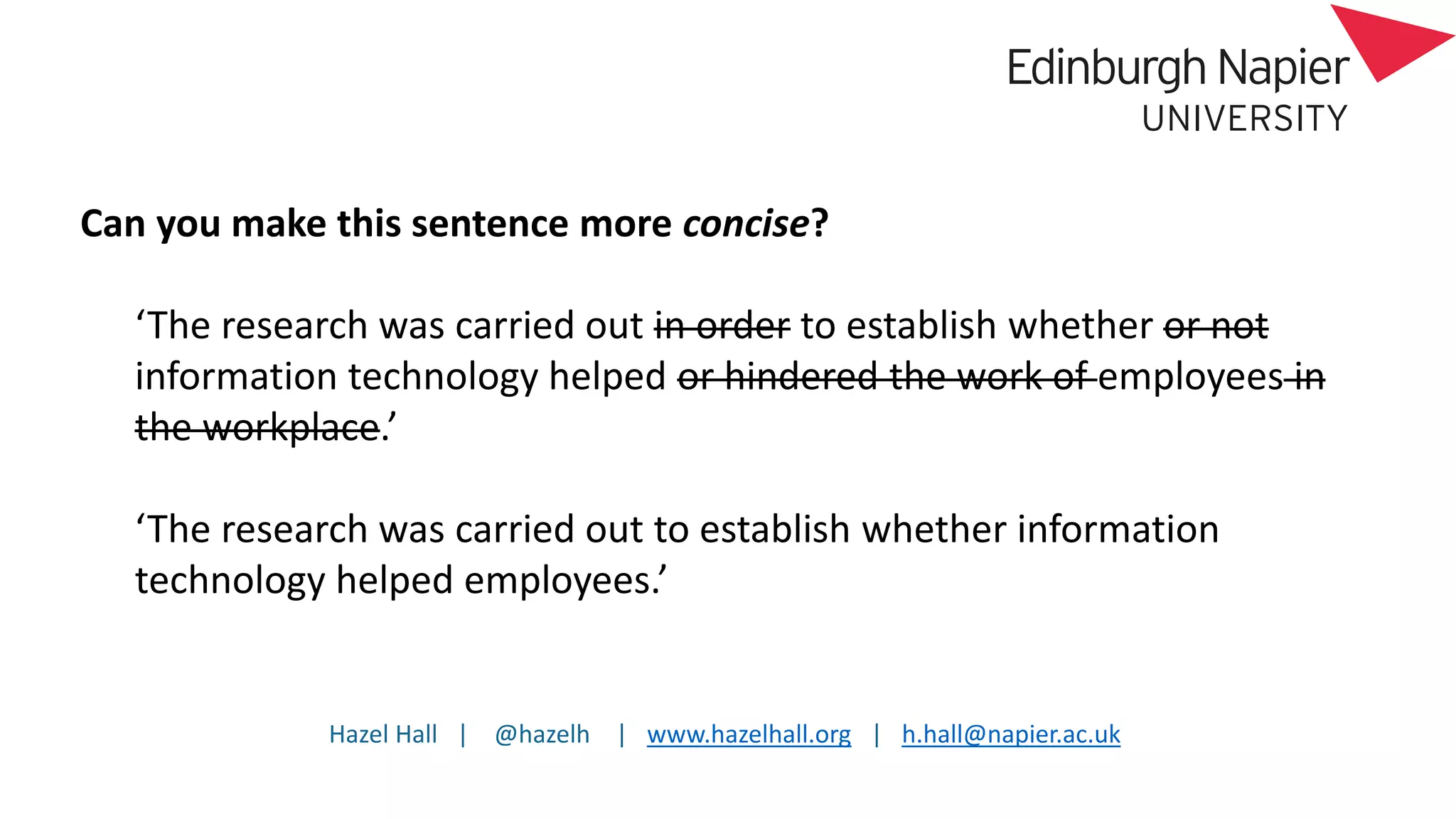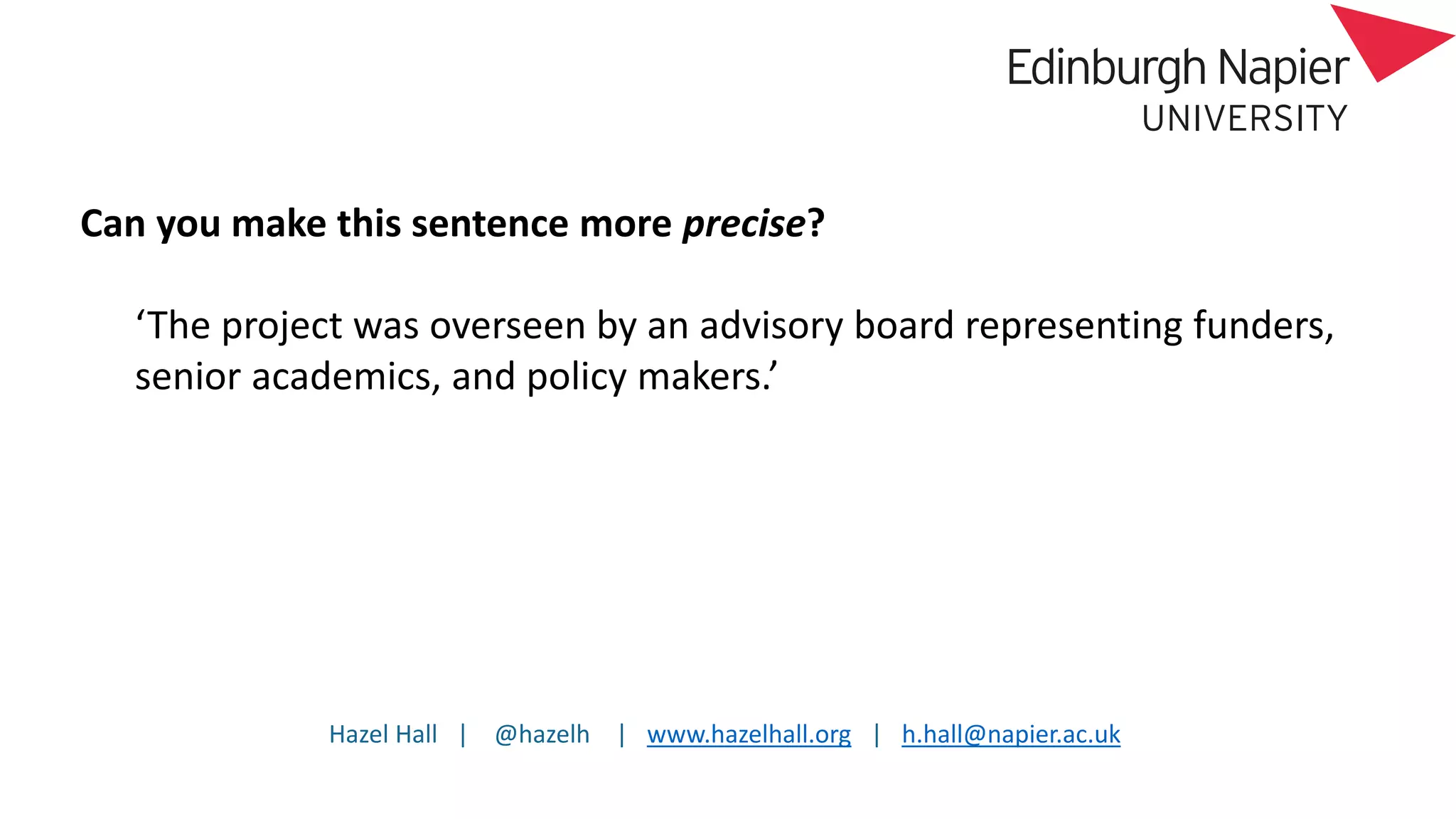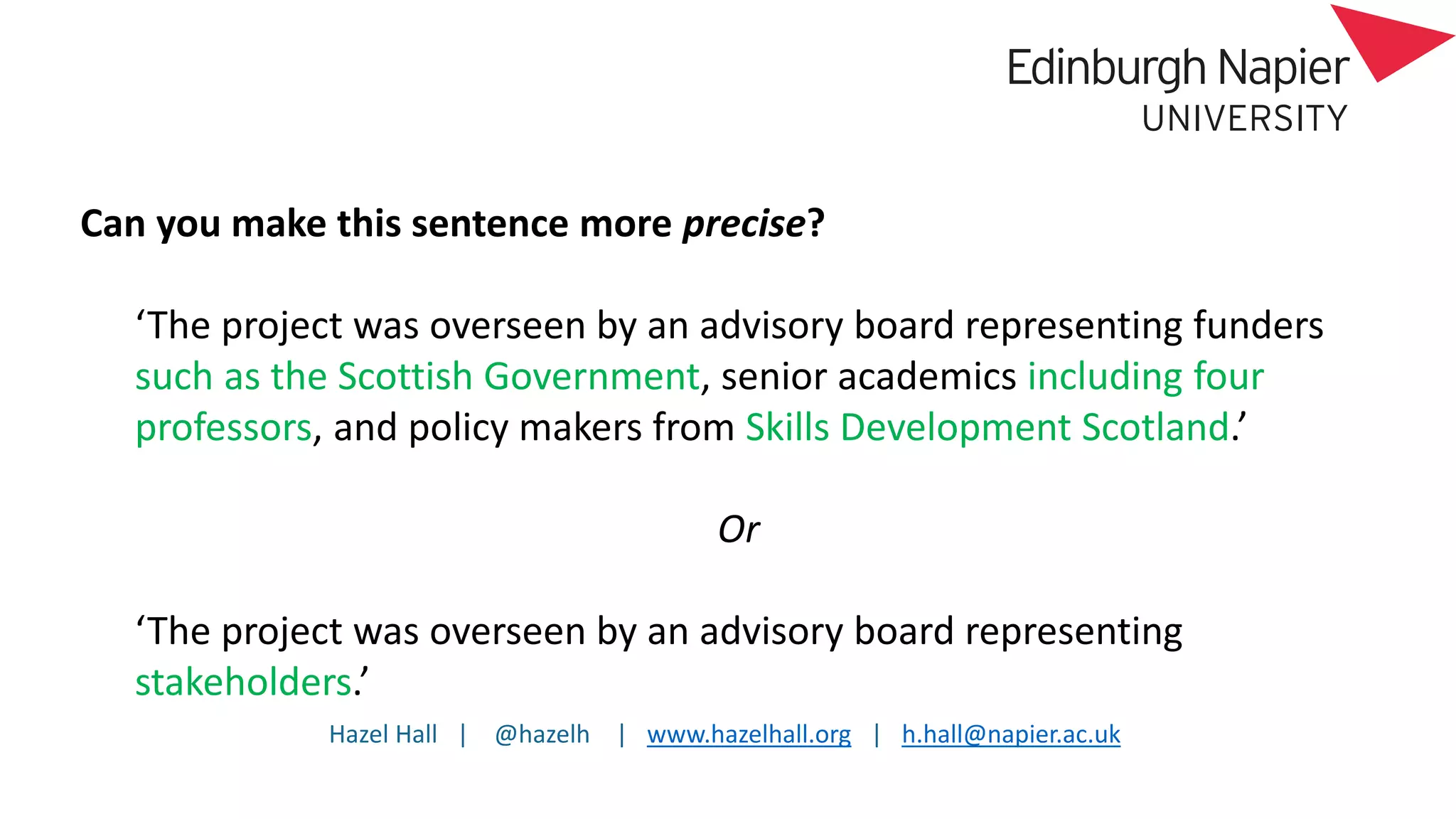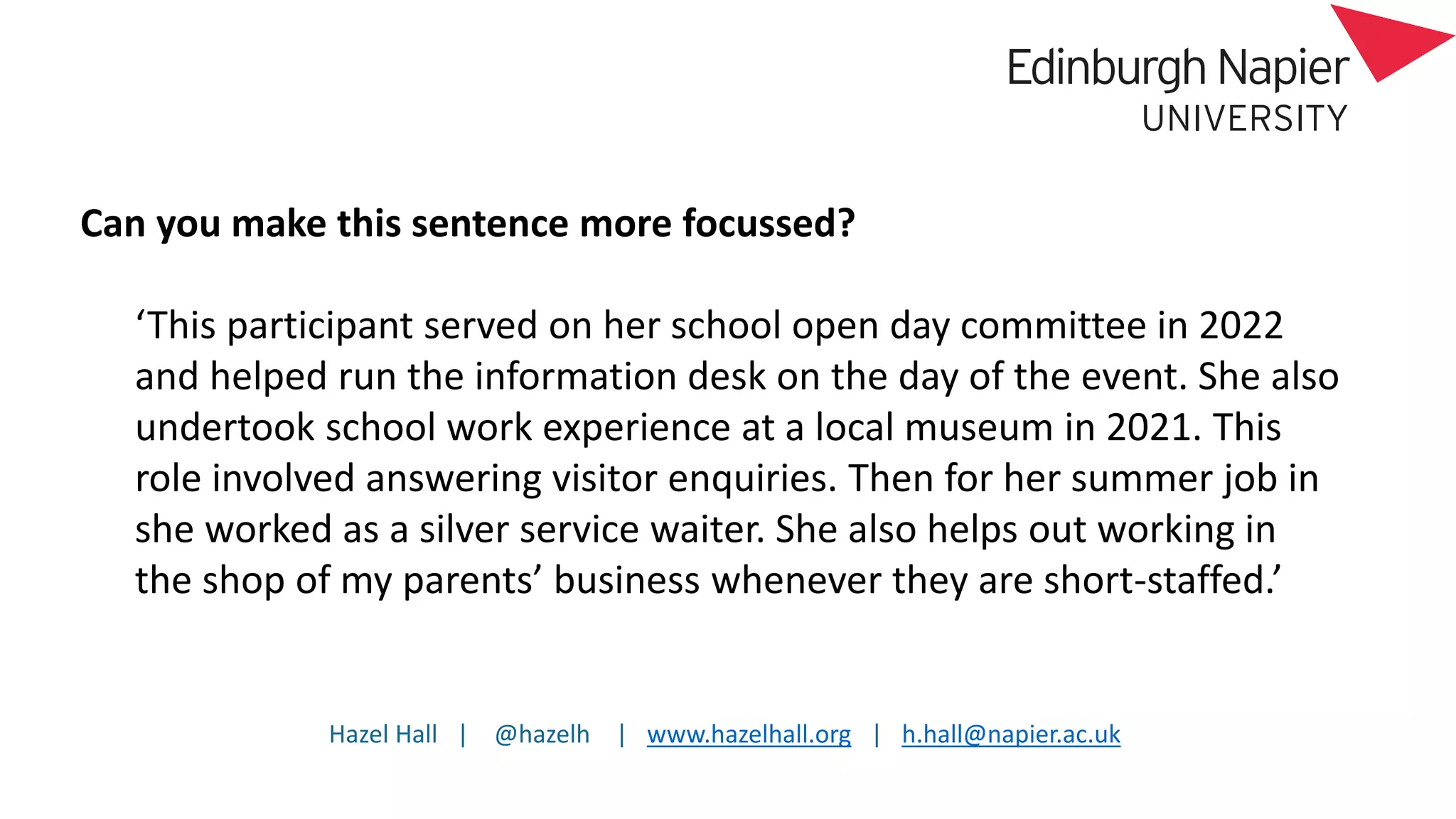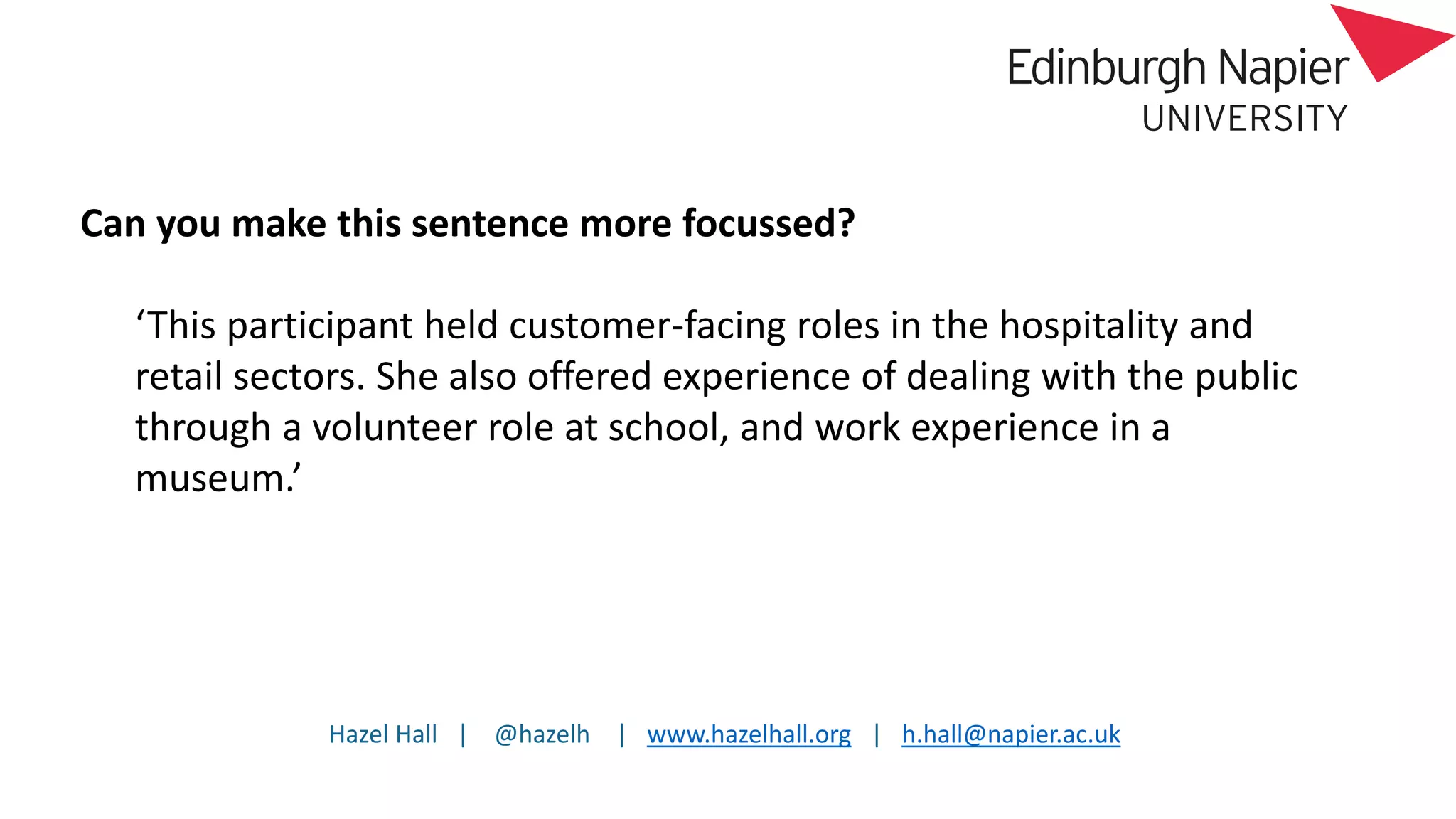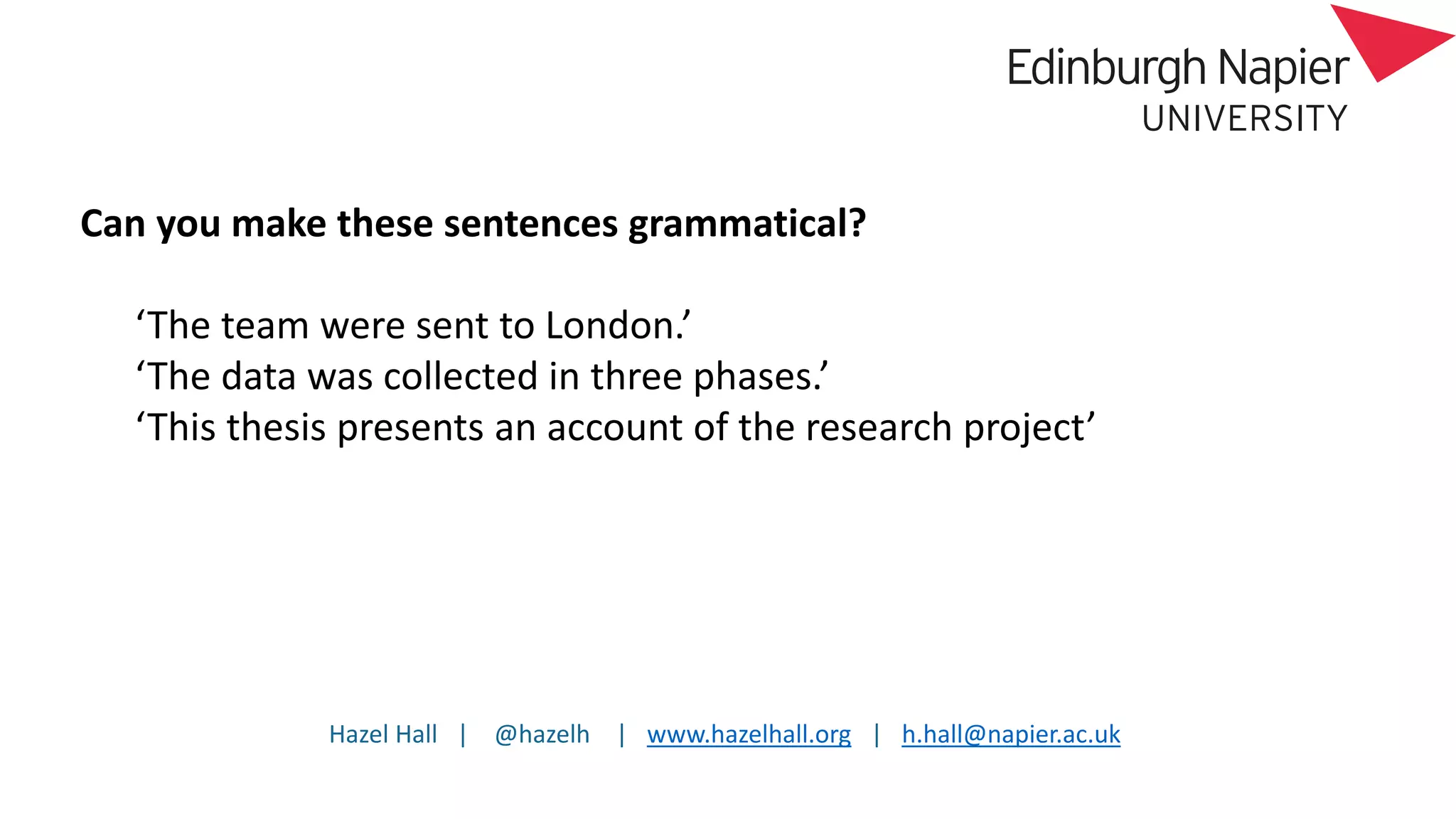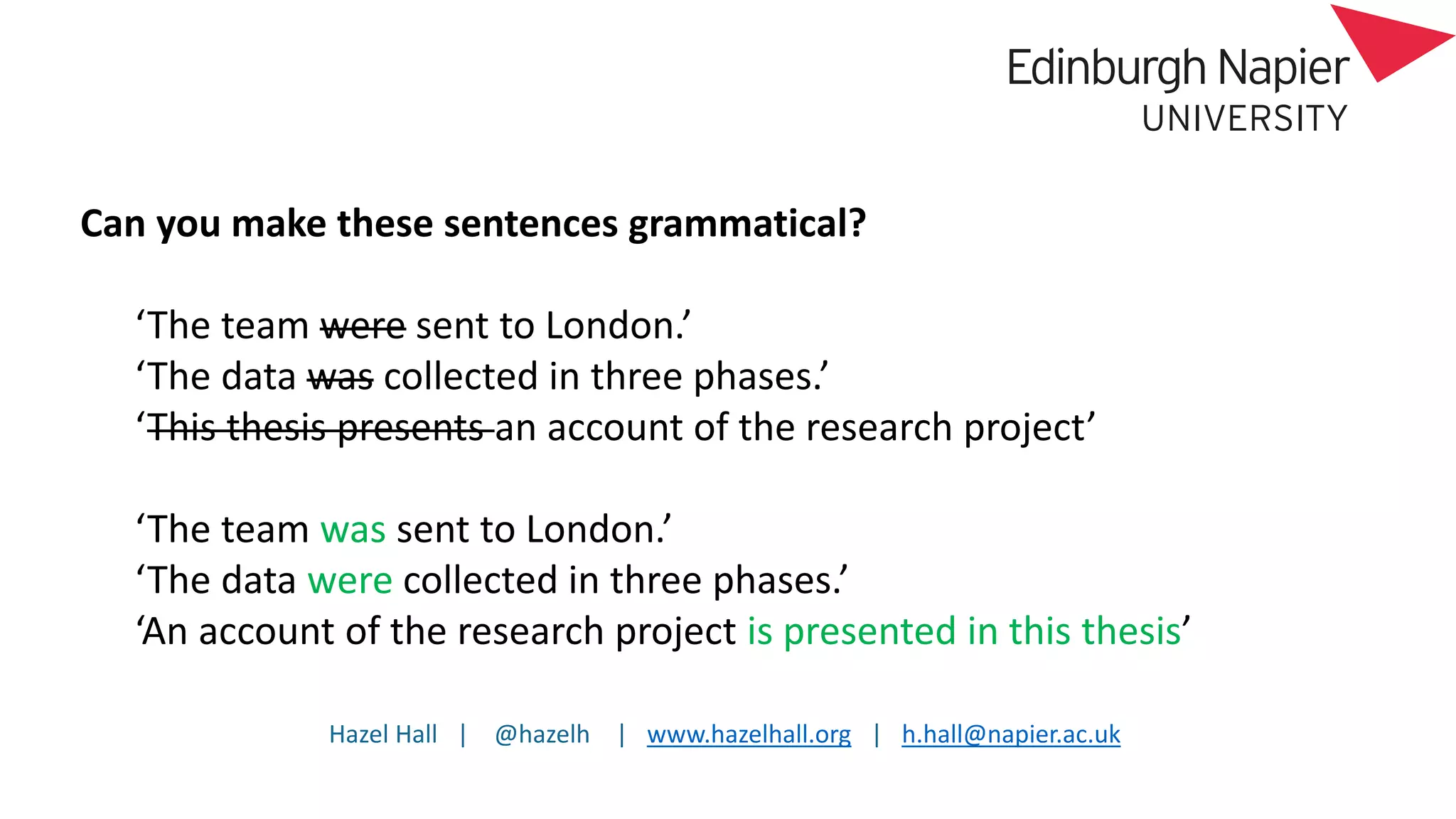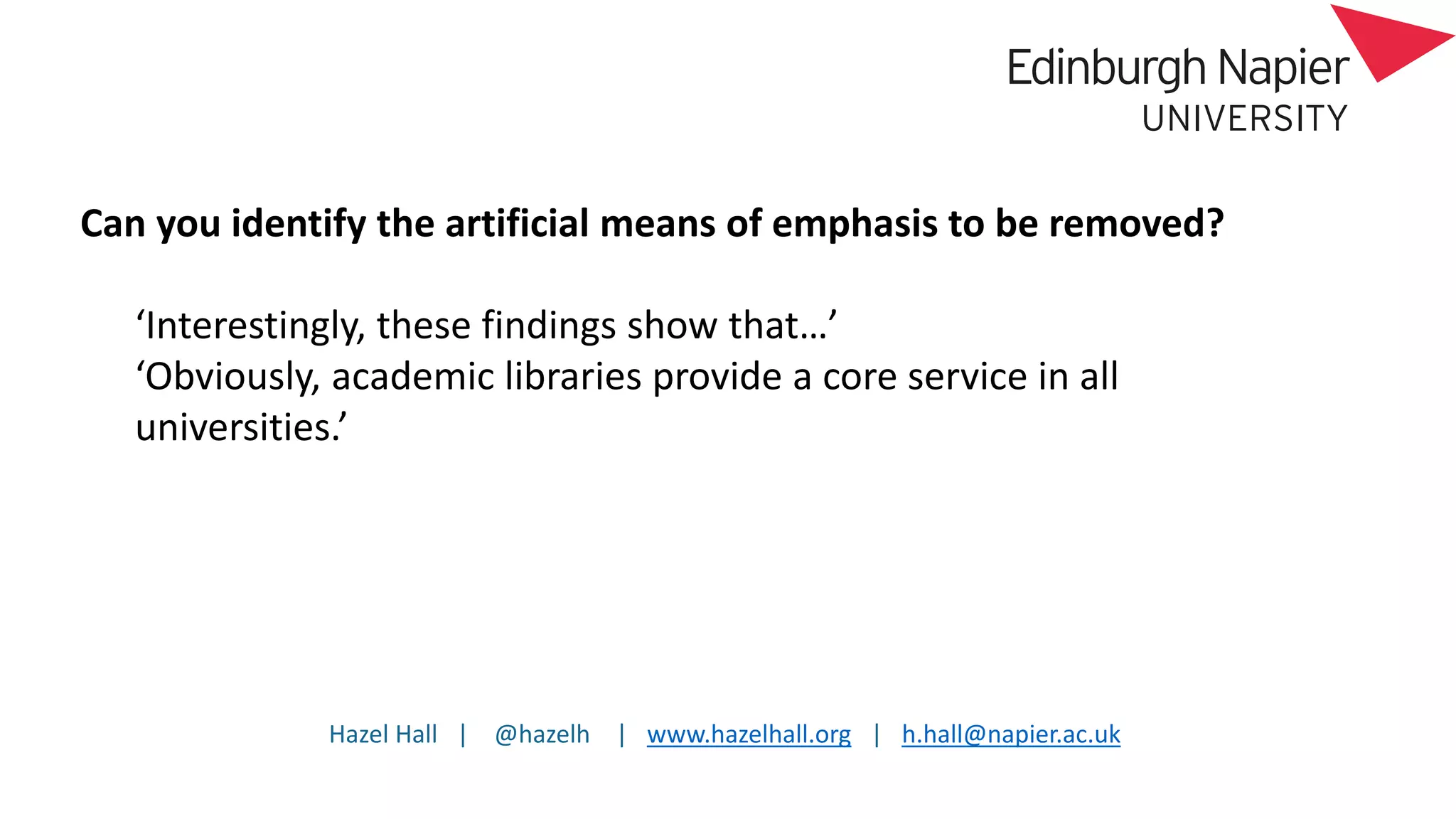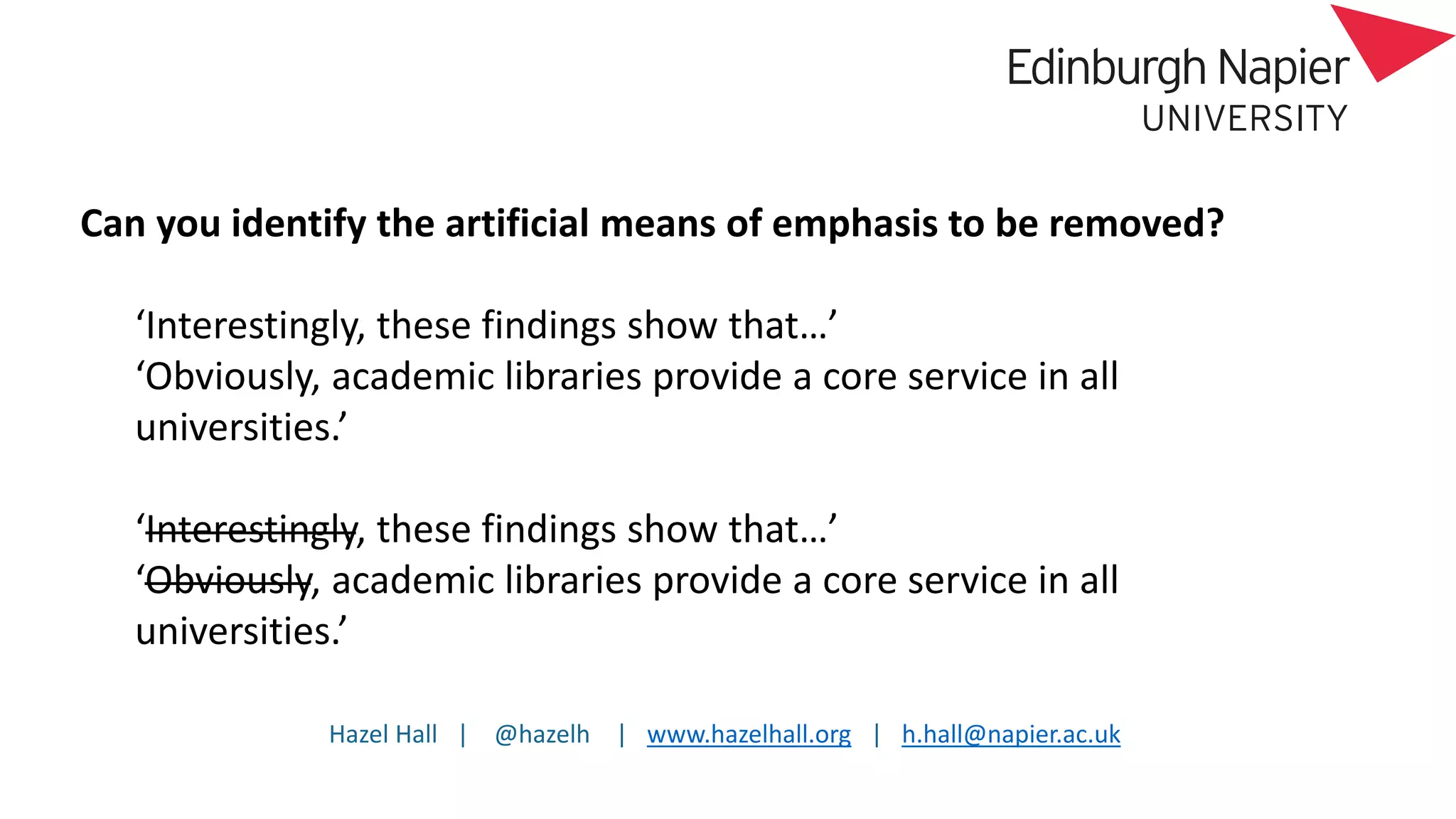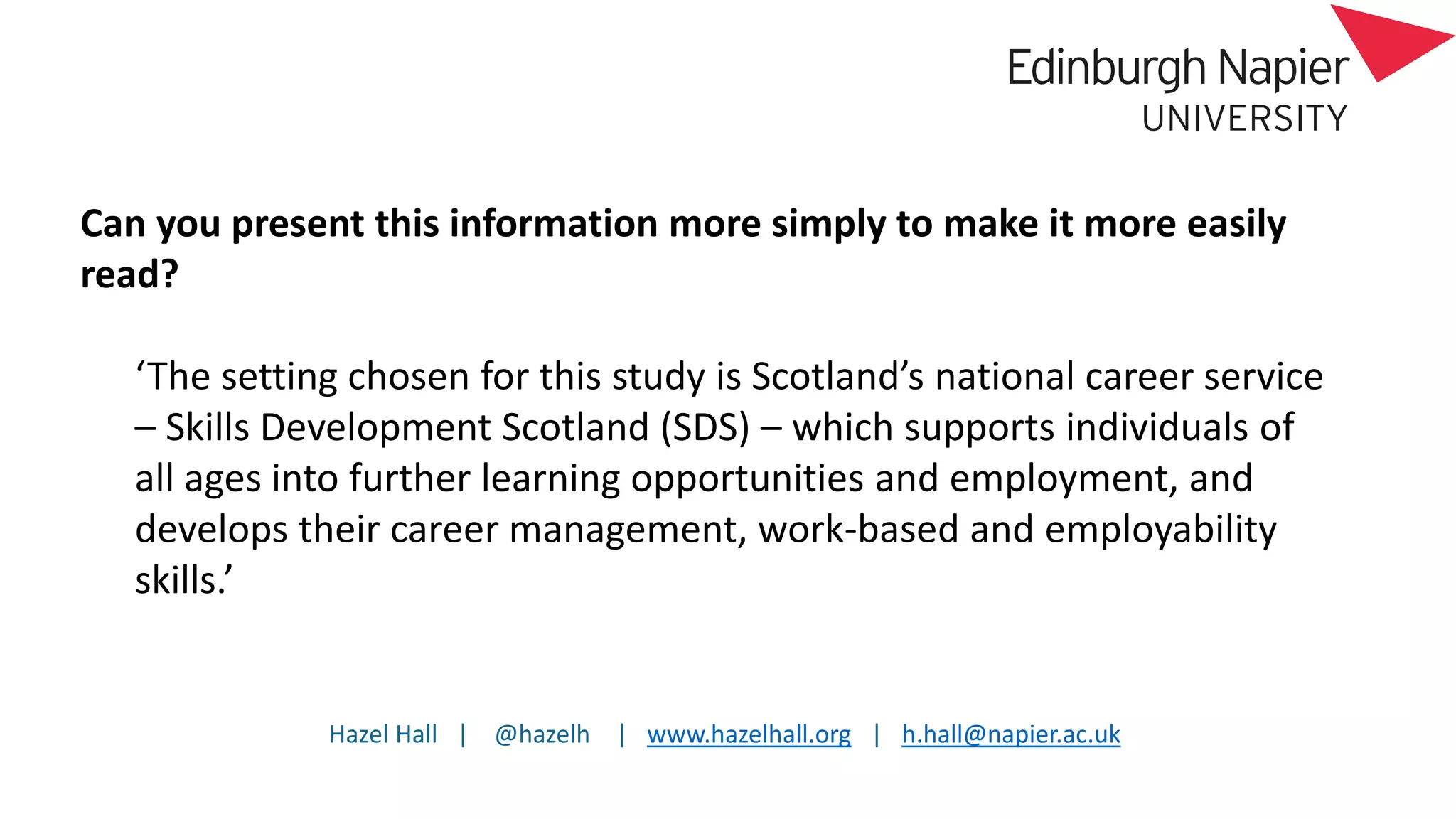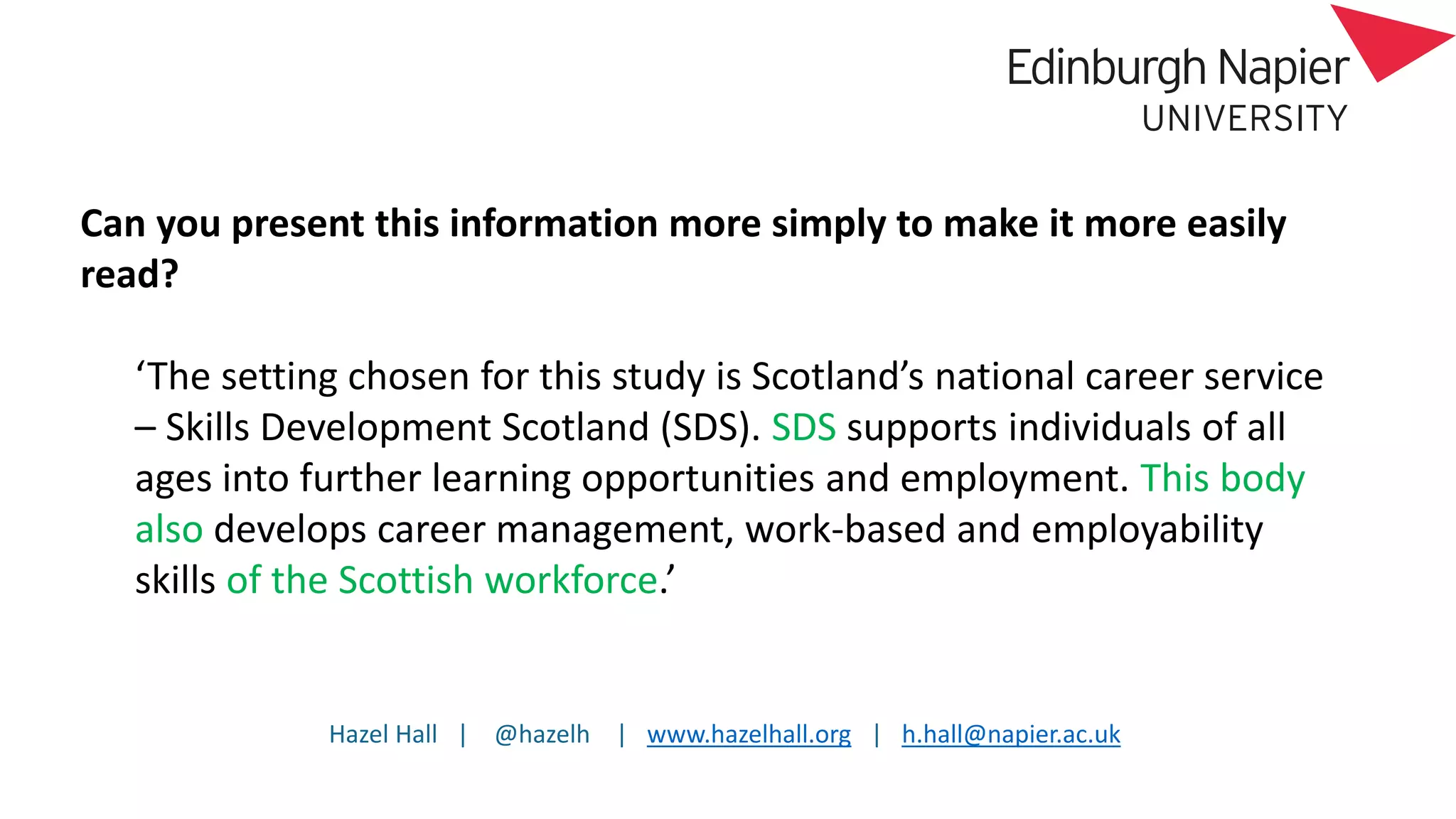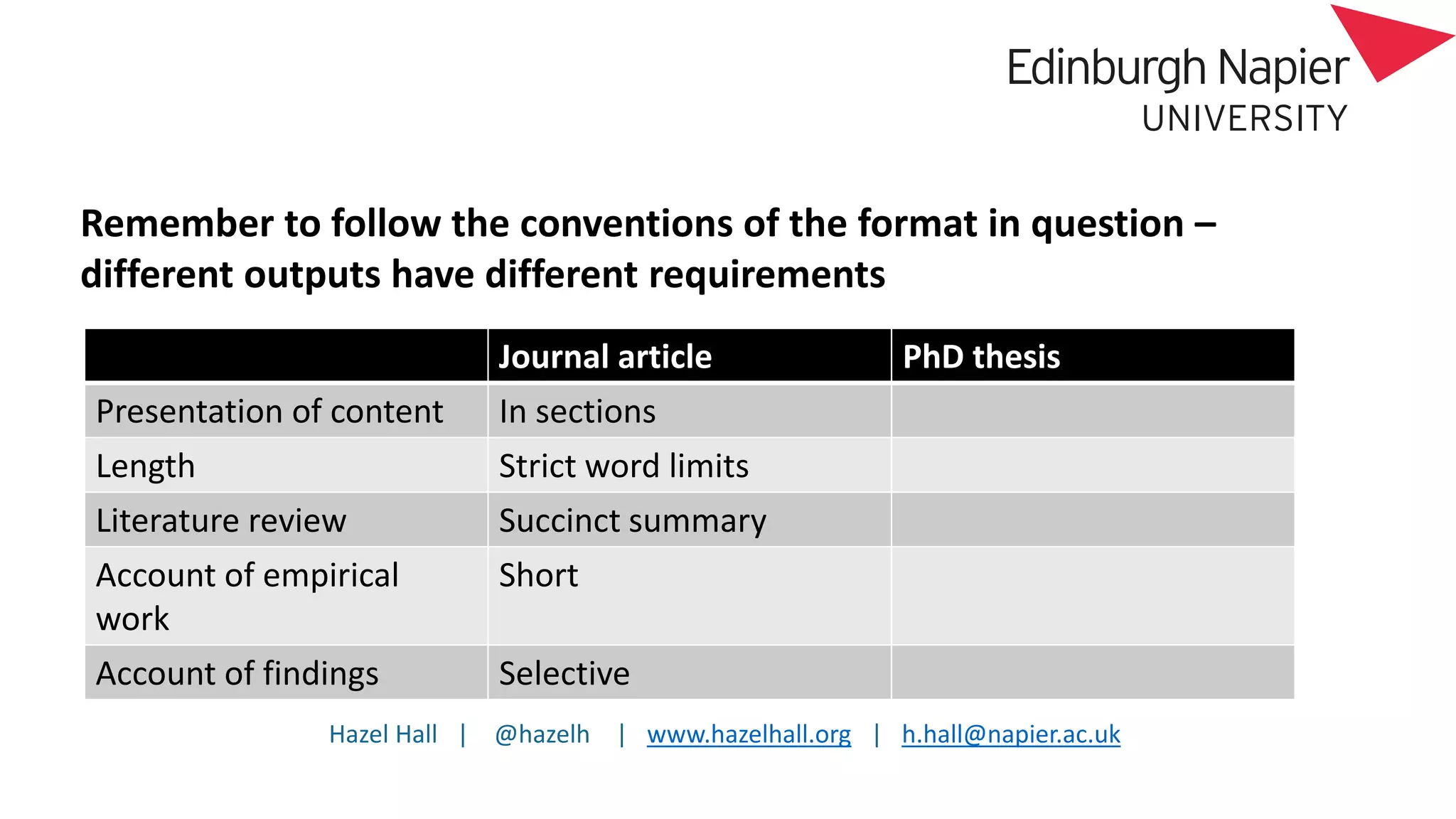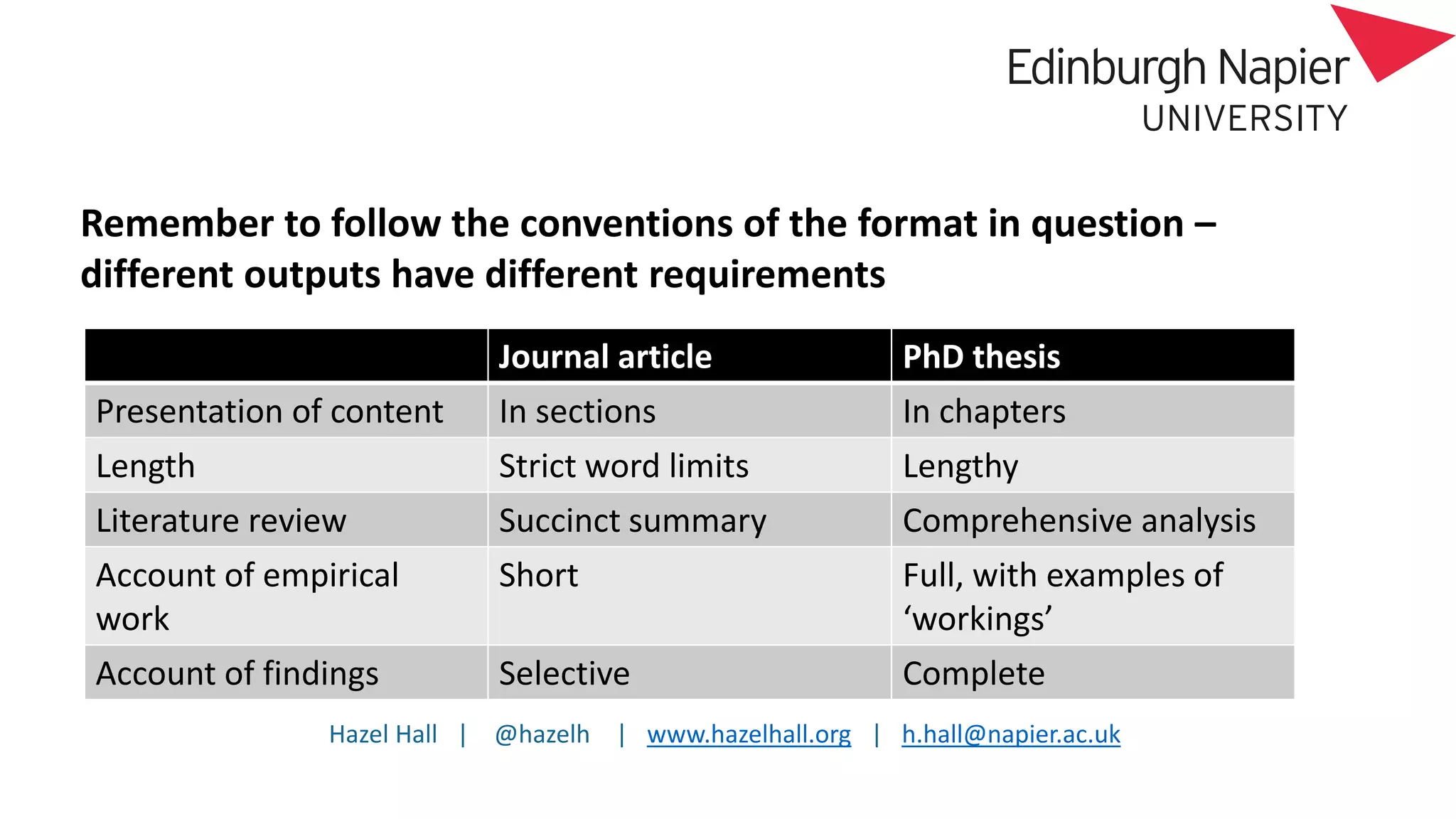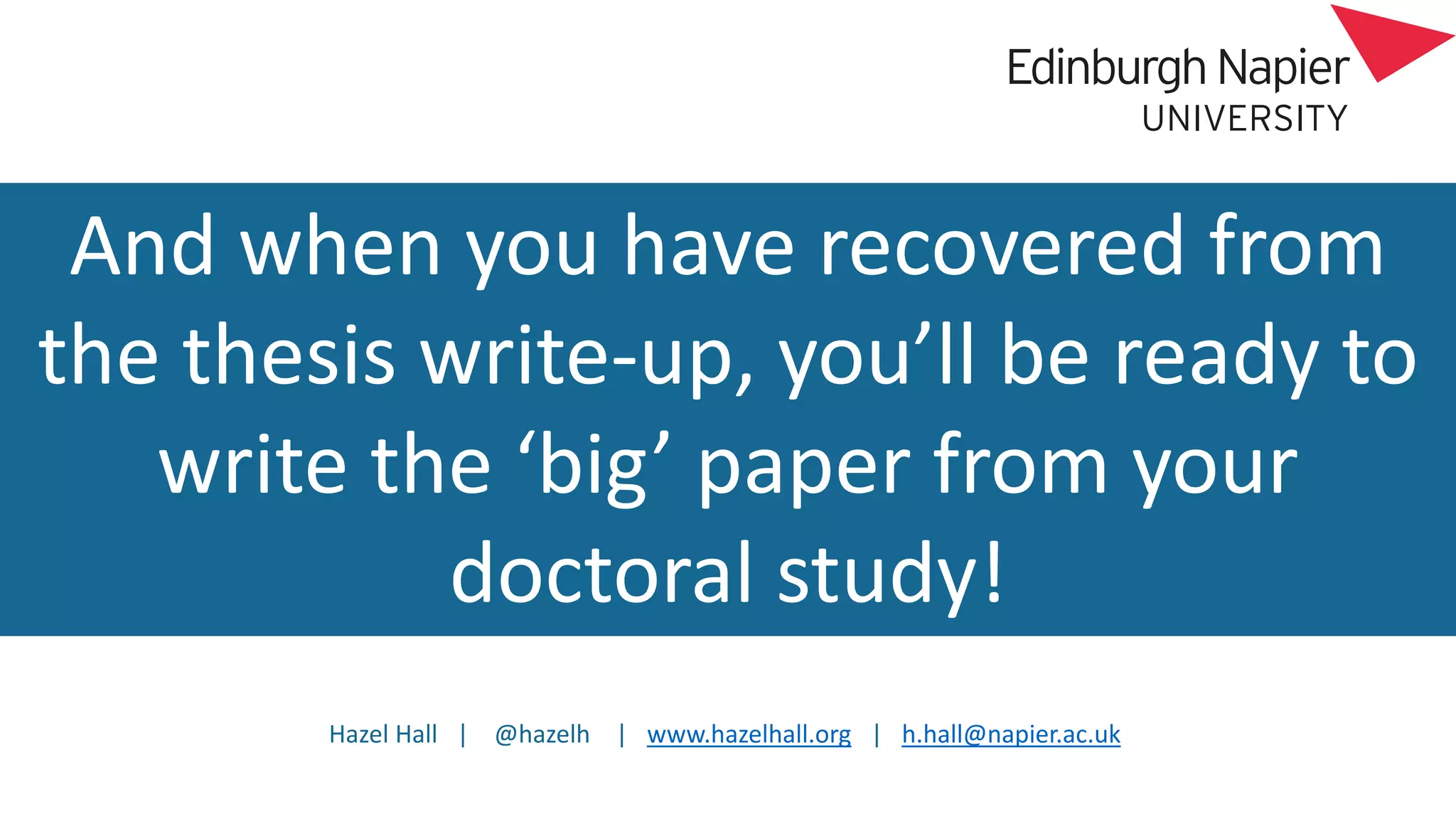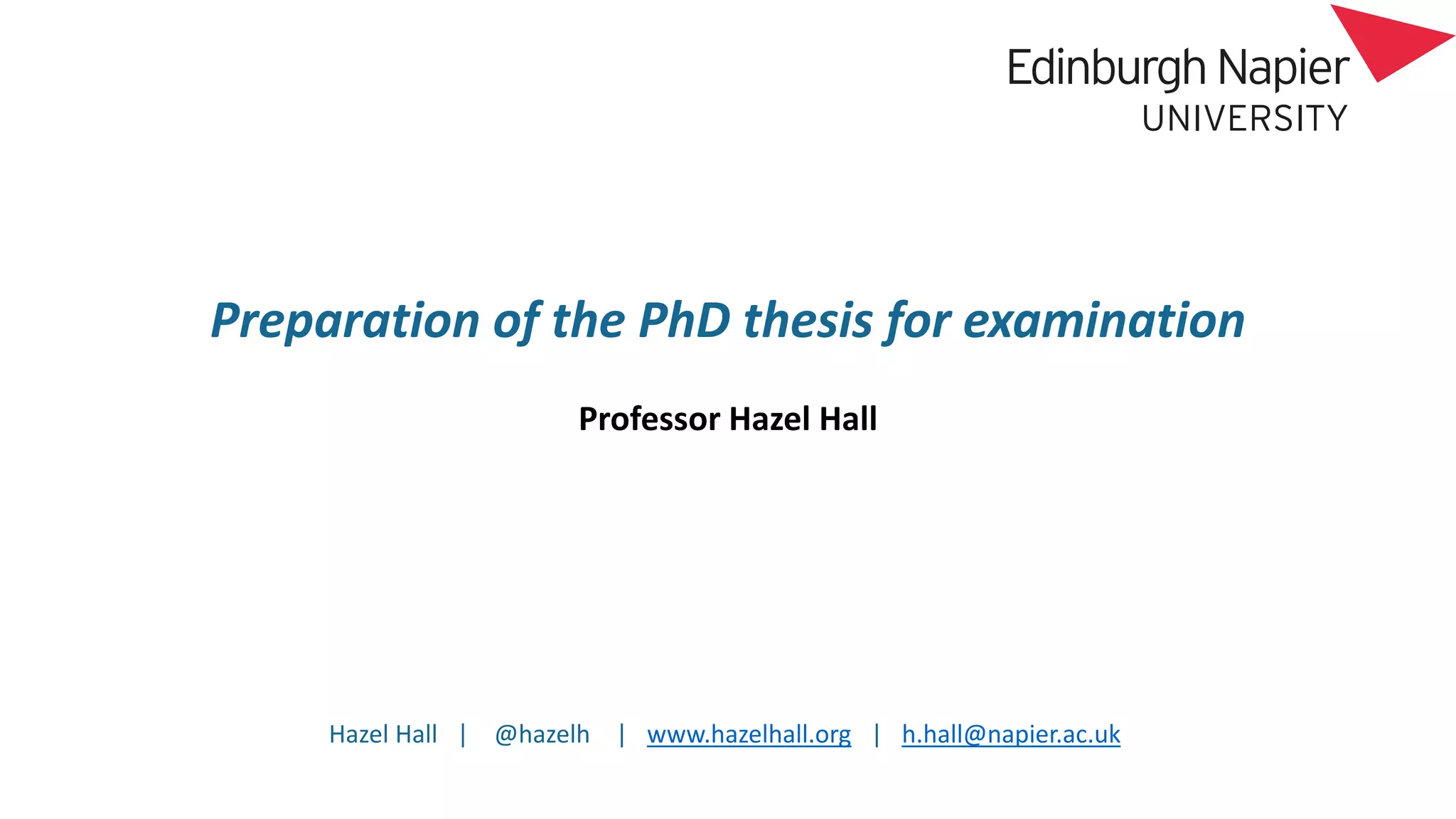The document outlines the preparation and assessment criteria for a PhD thesis, emphasizing the need for an original and significant contribution to knowledge through robust research design and implementation. It provides guidance on the structure of the thesis, the contents of various chapters, and specific methodologies and methods that should be employed. Additionally, it highlights the importance of presenting findings and discussions in a manner that aligns with established literature and contributes to academic discourse.
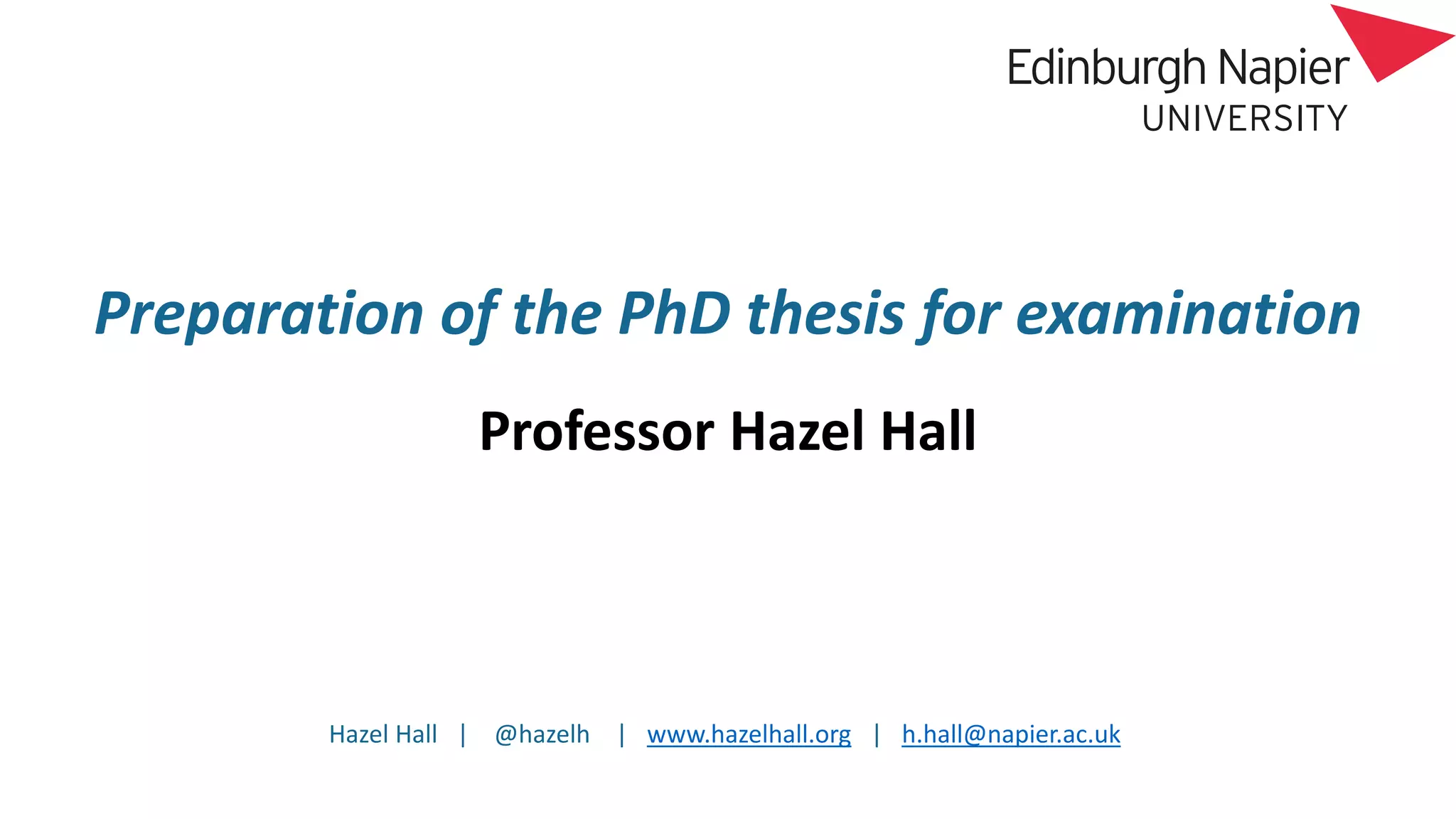
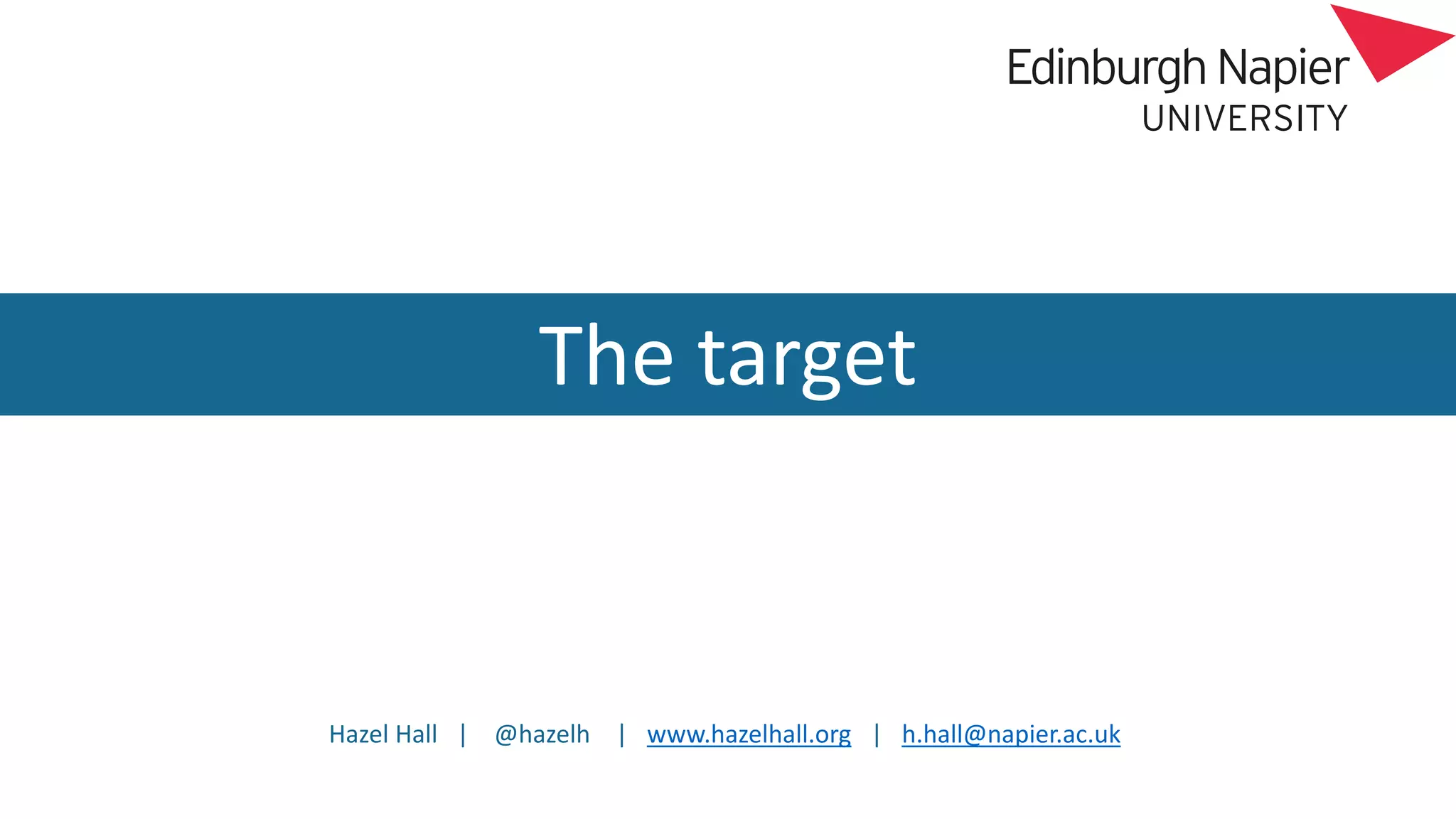
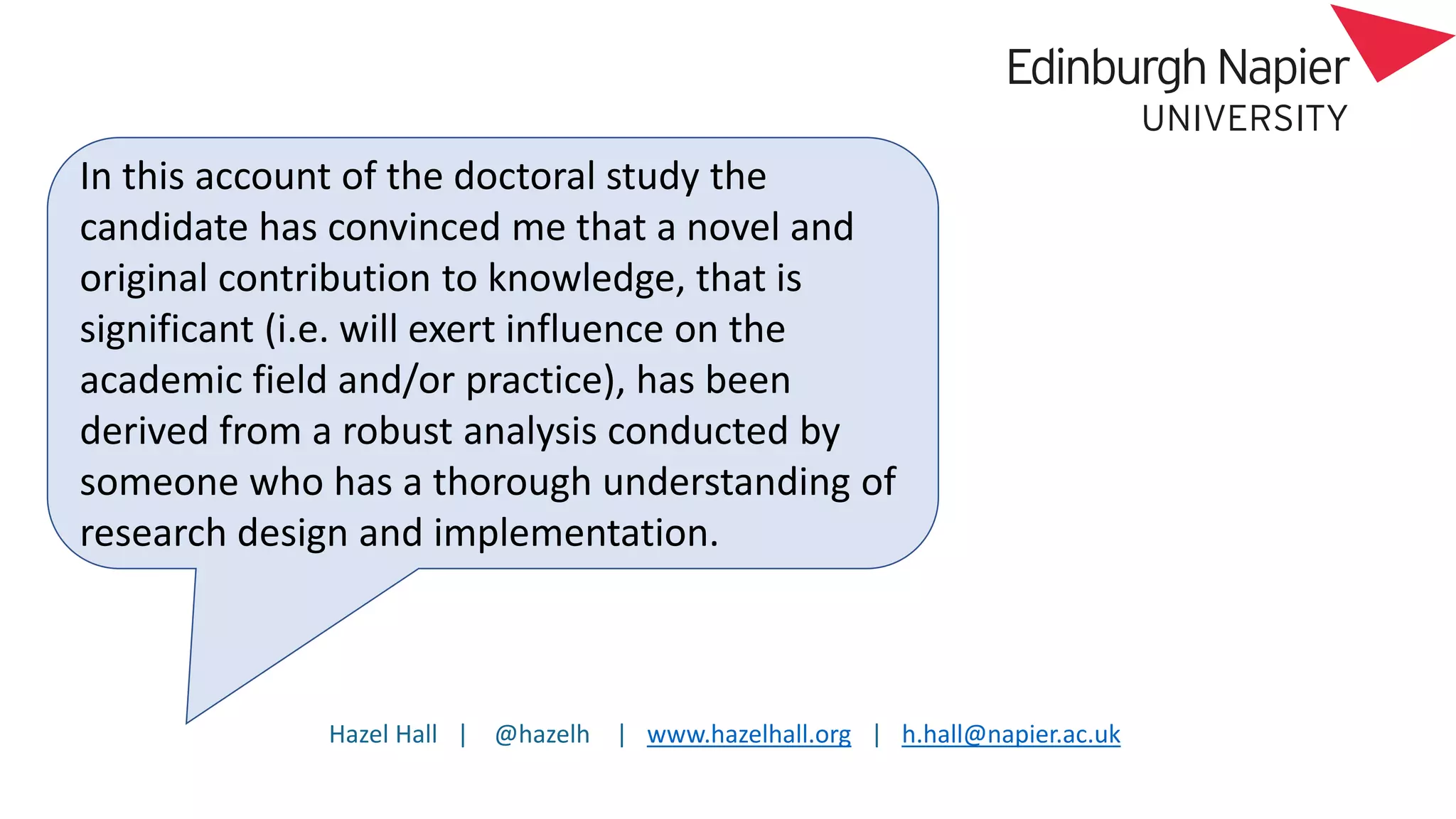
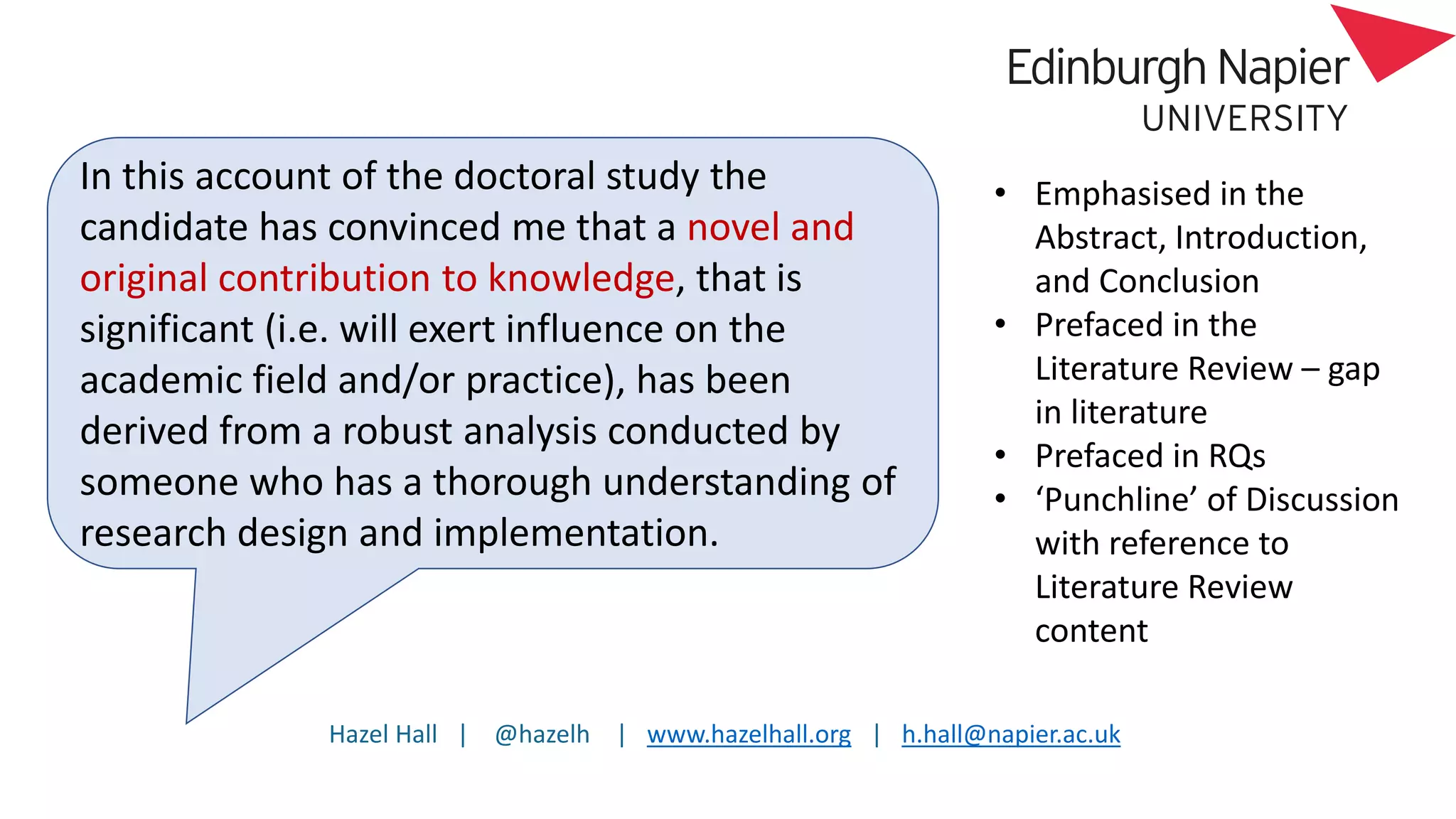
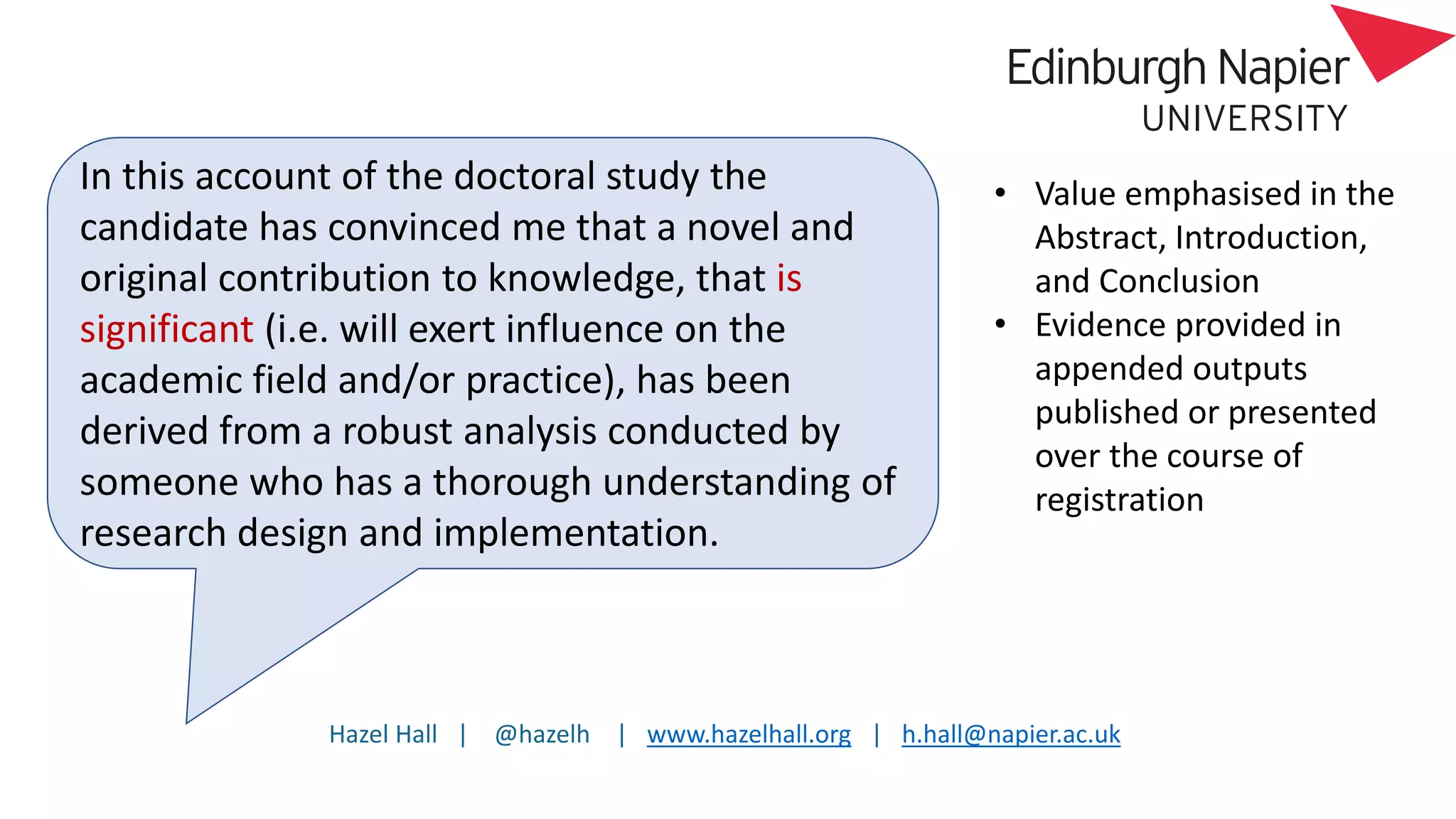
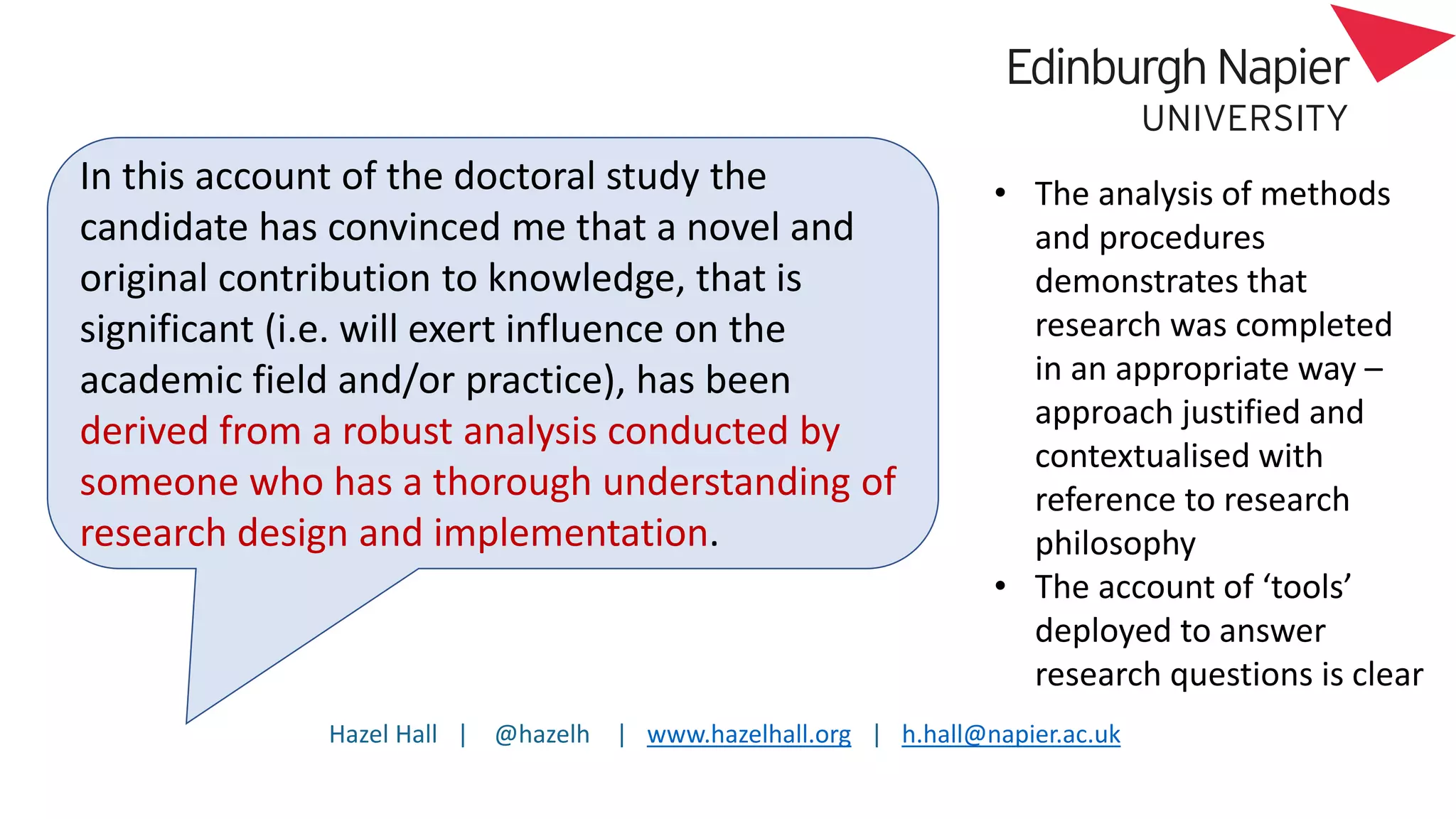
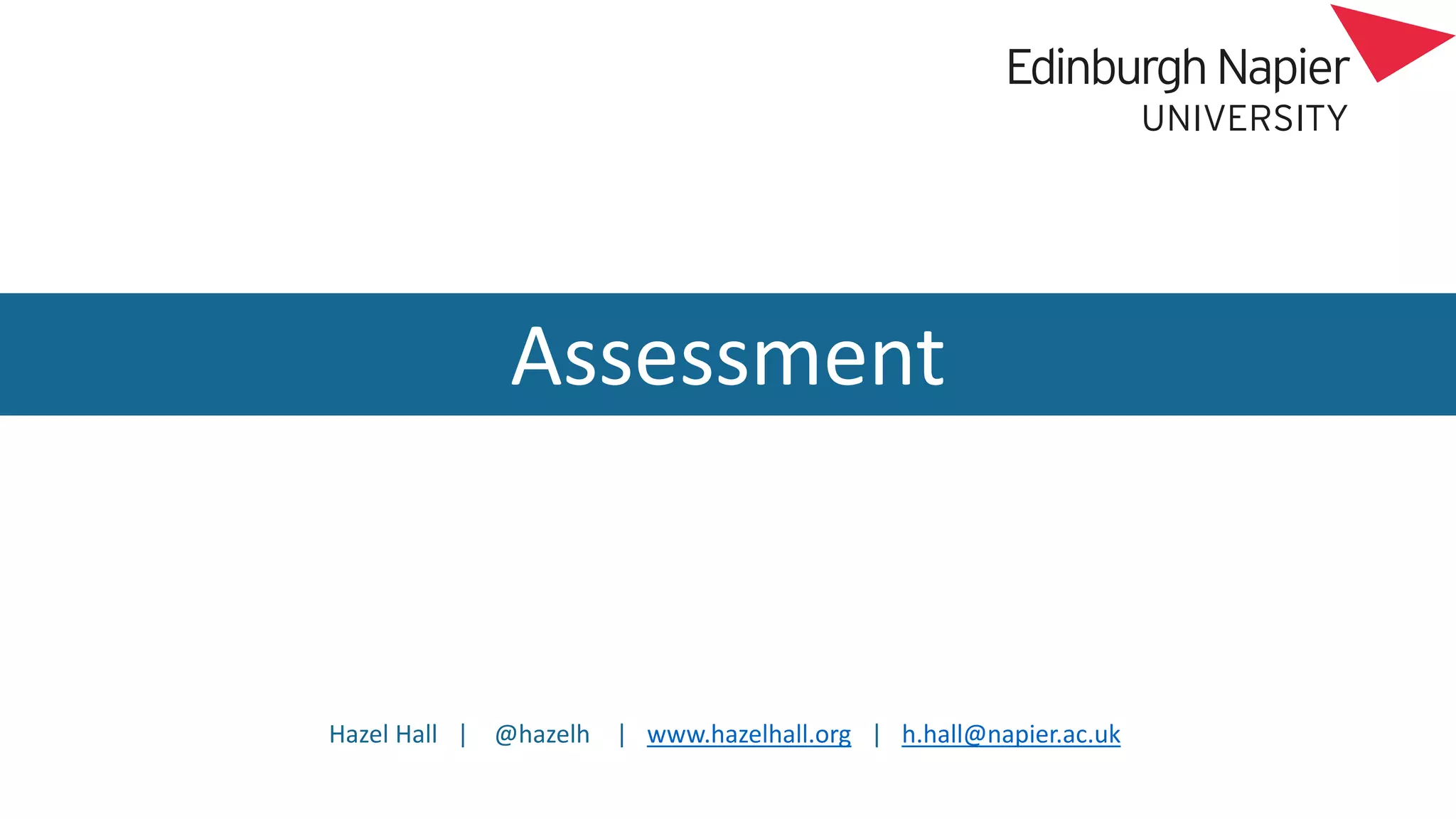
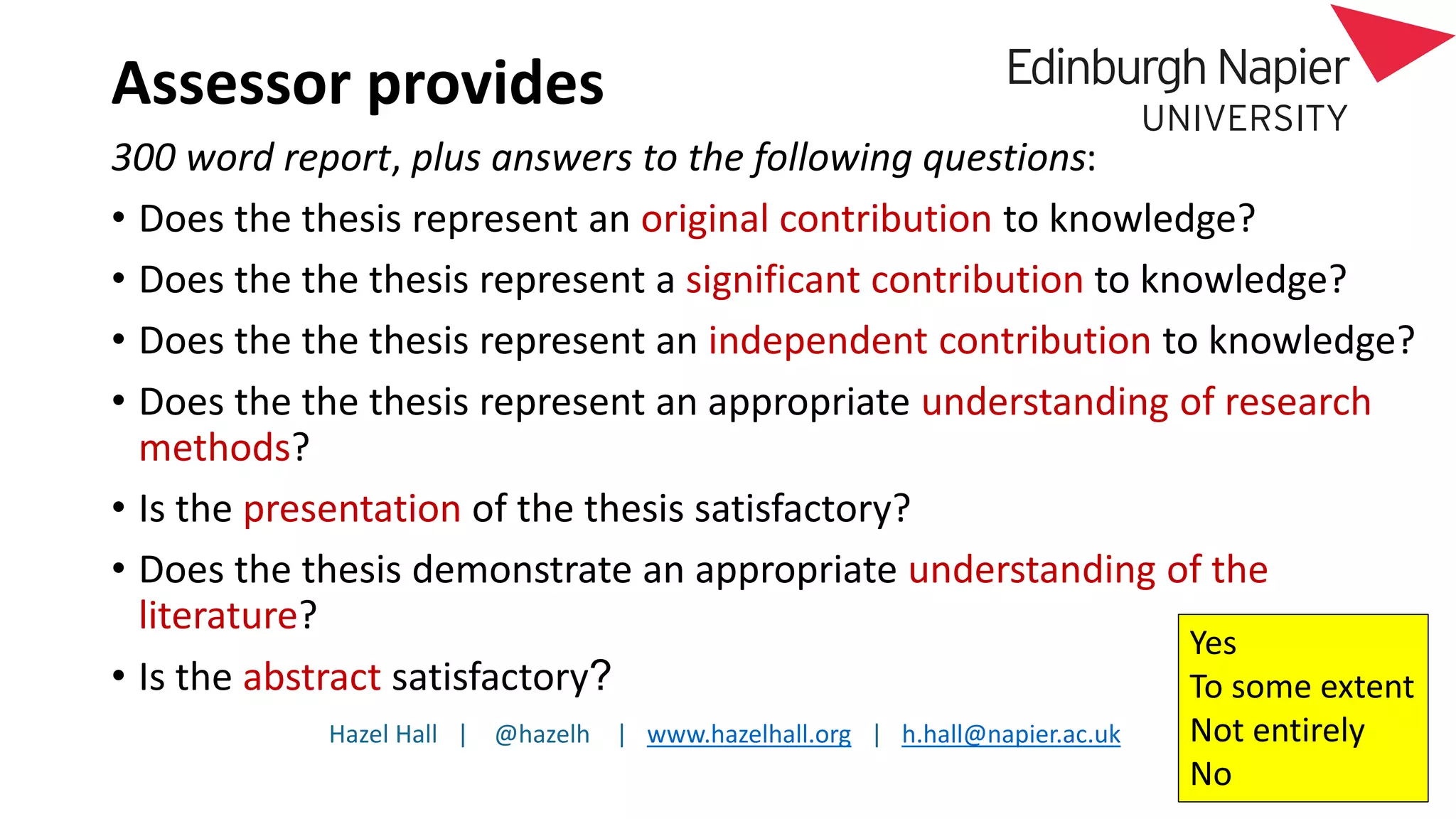
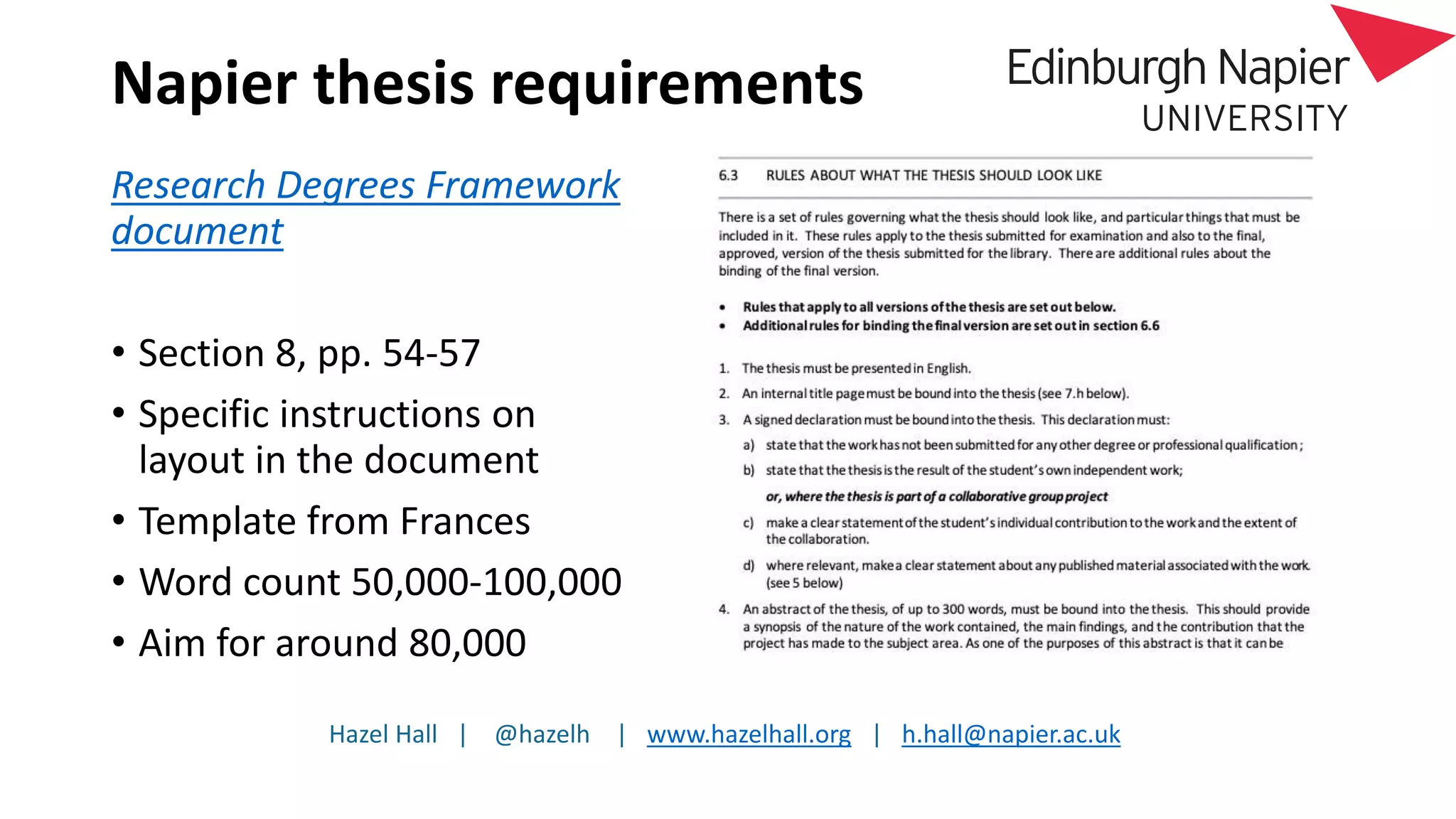
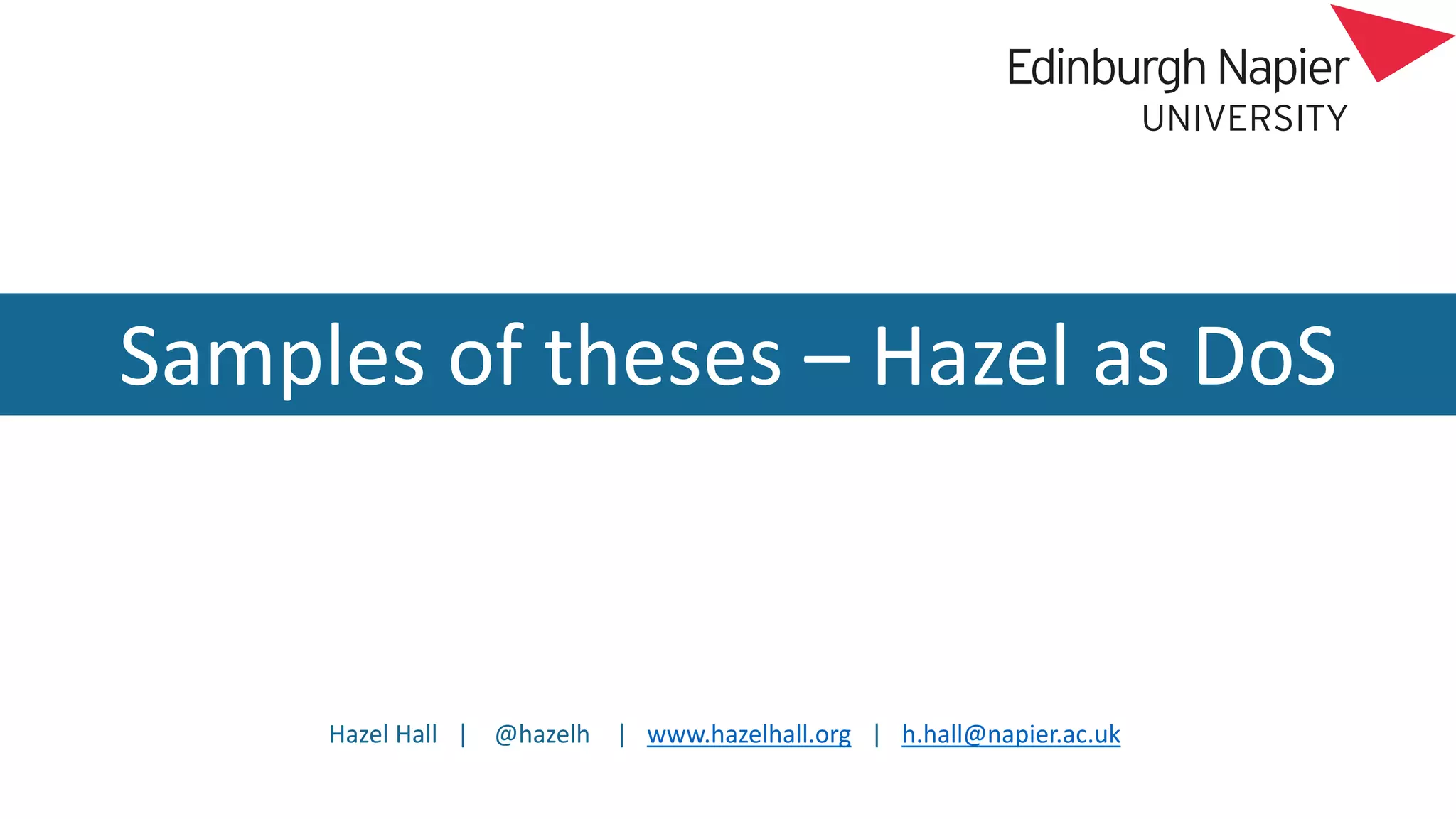
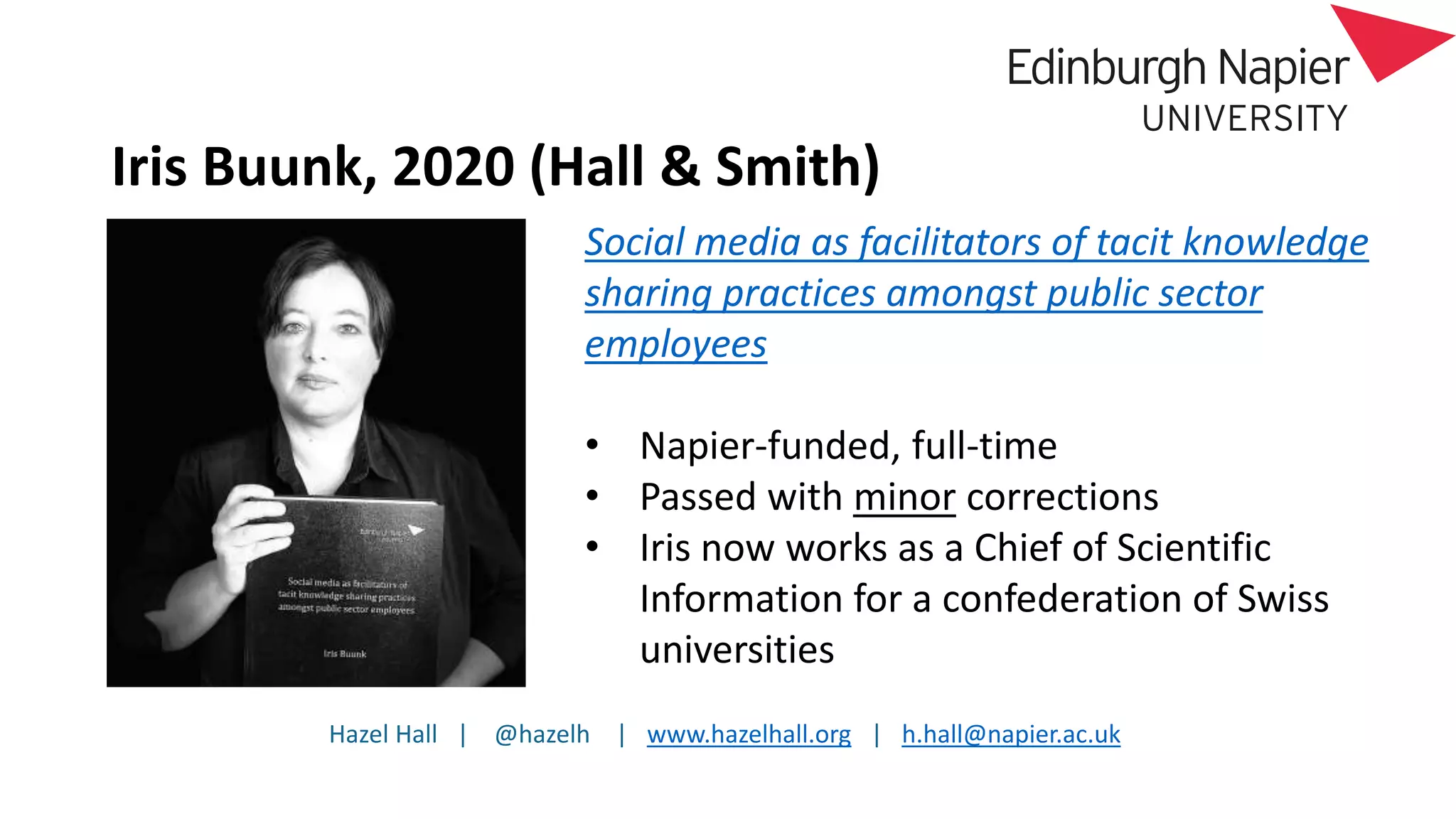
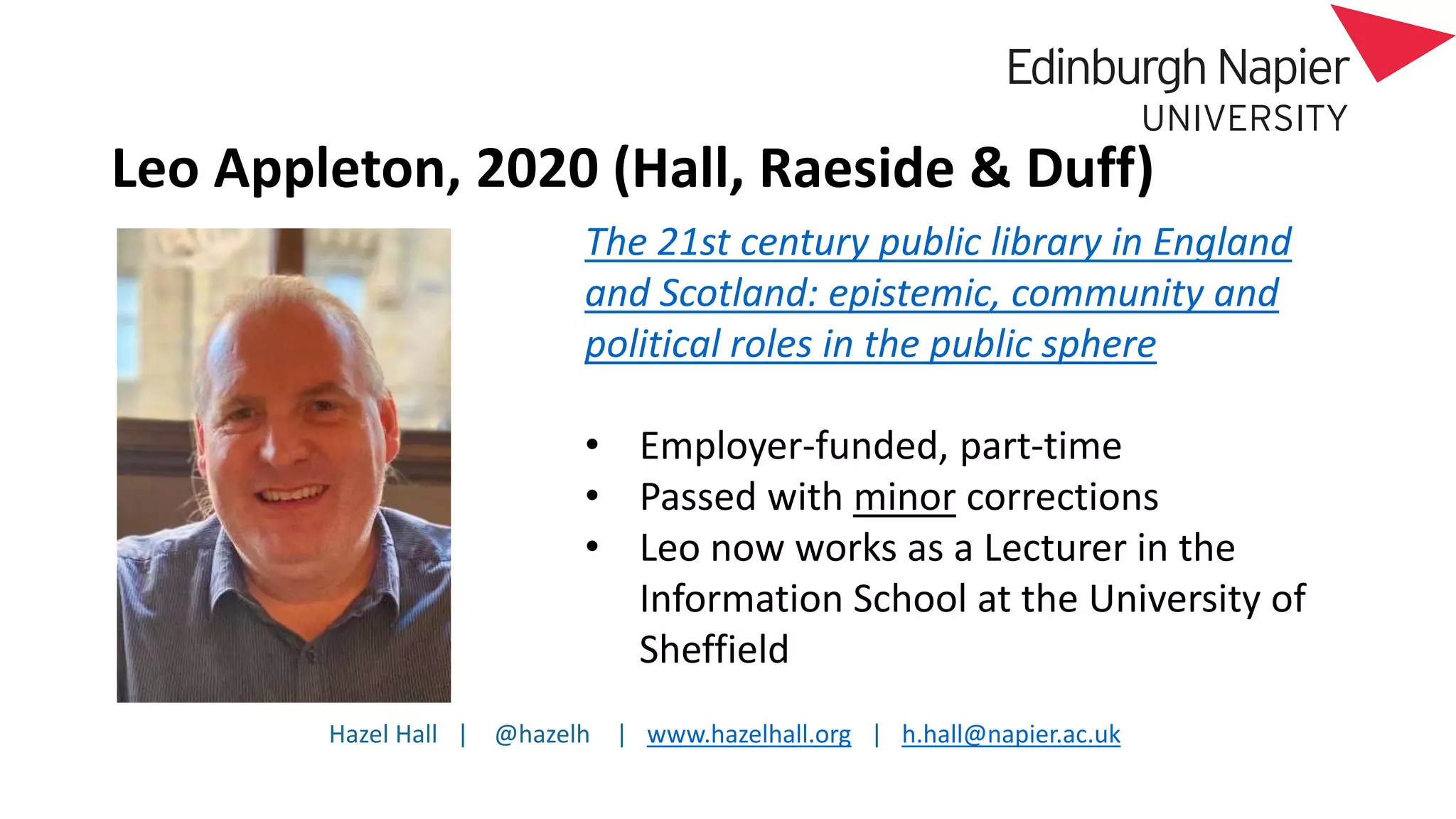
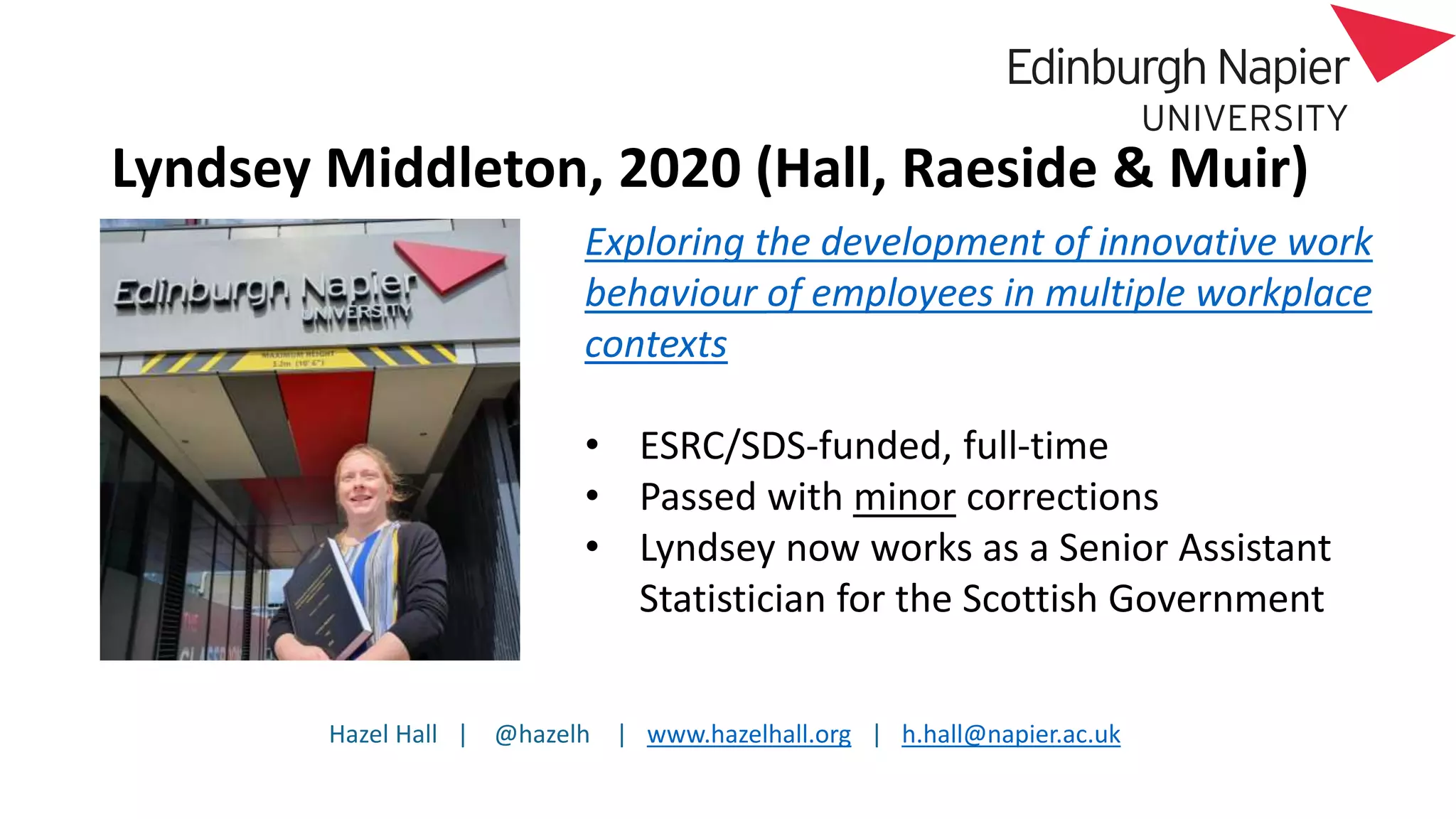
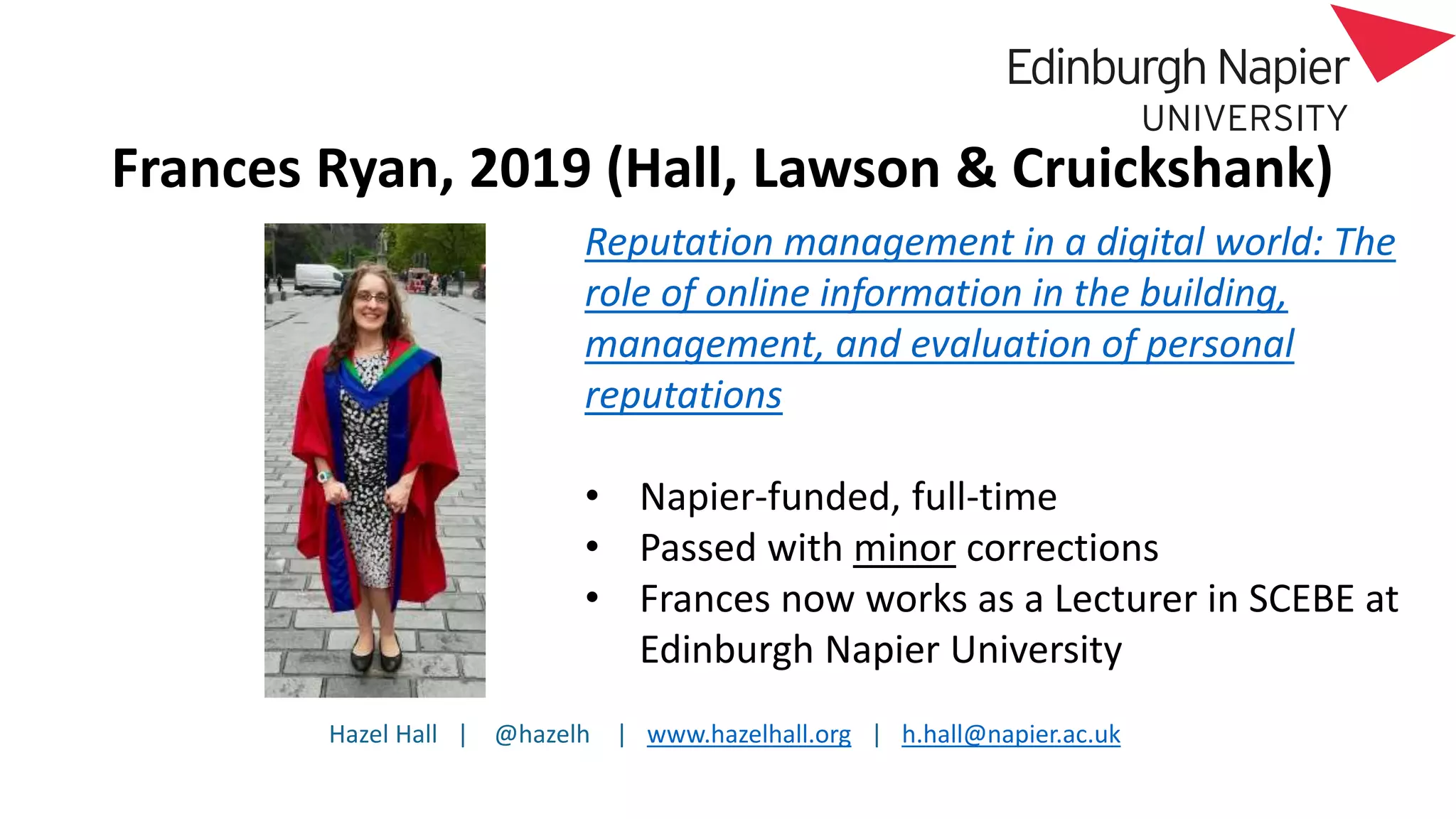
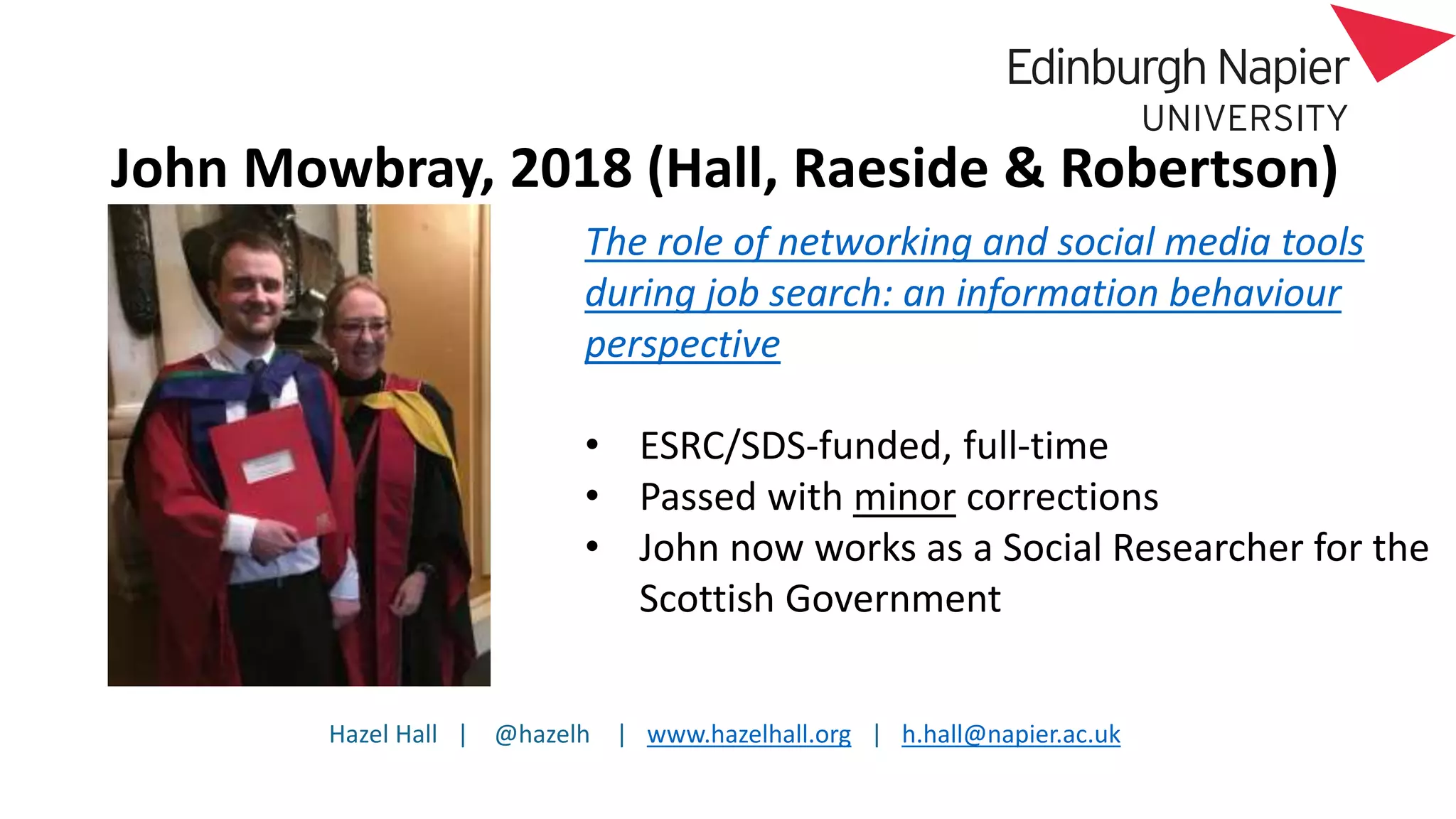
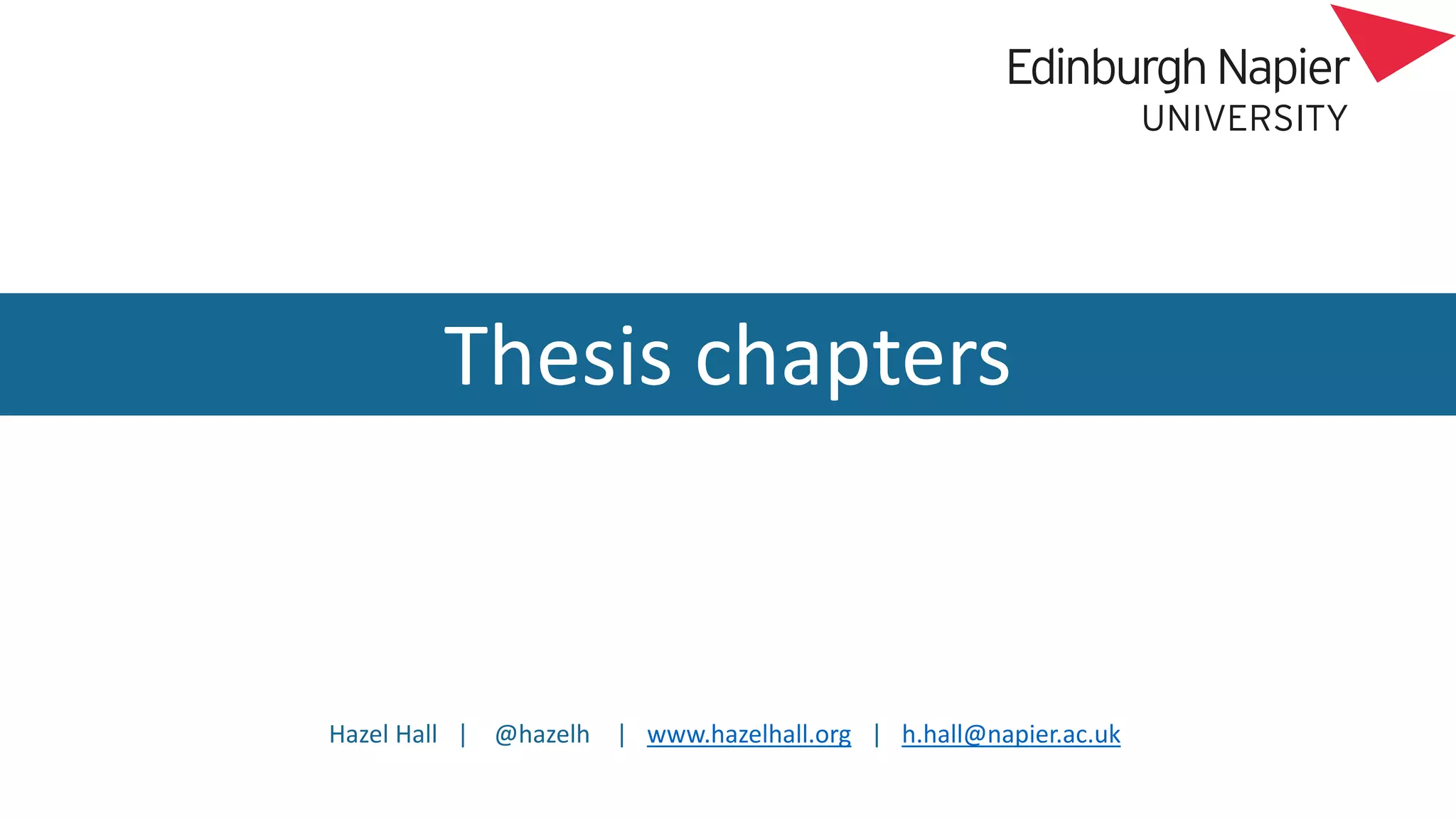
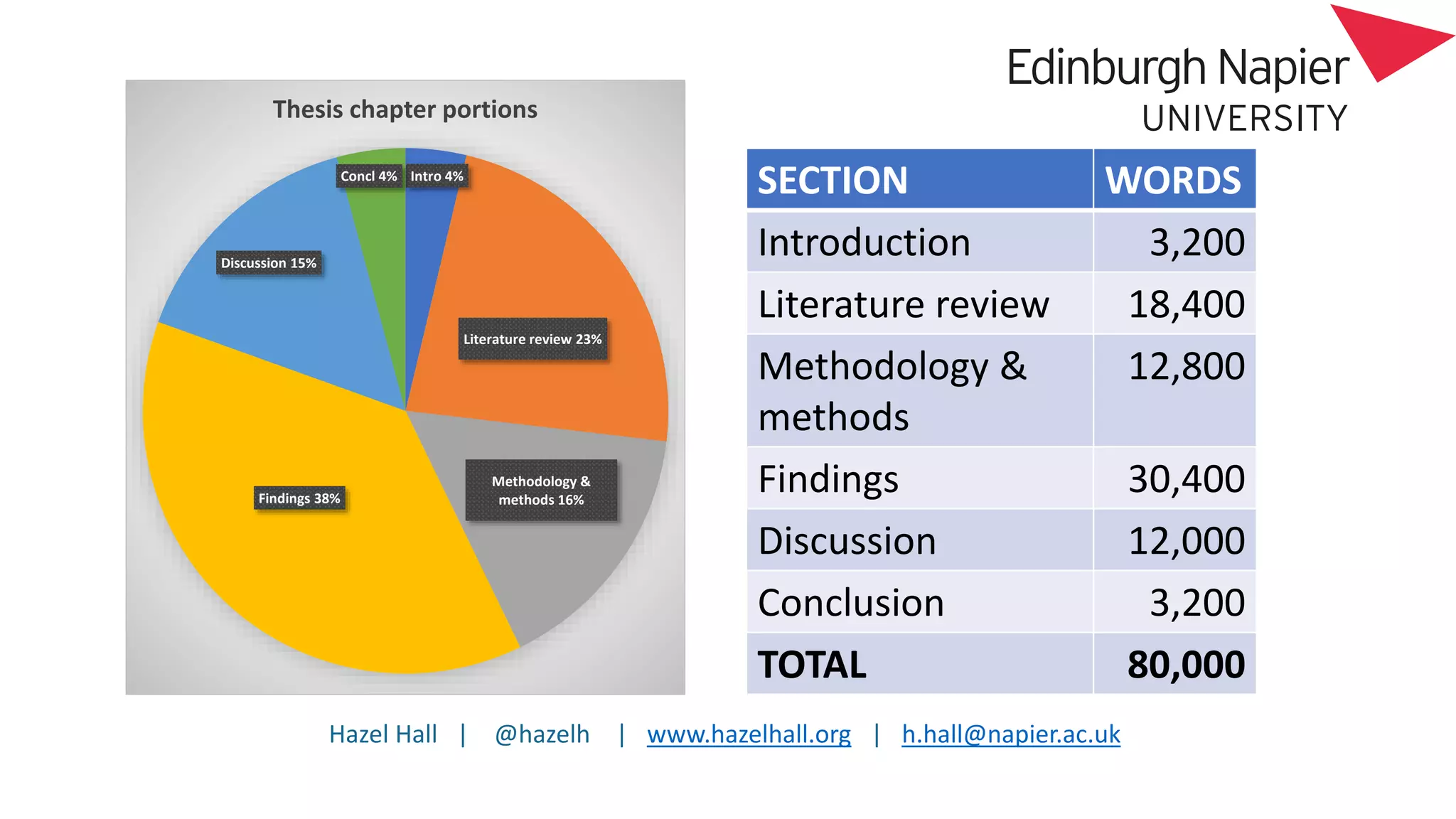
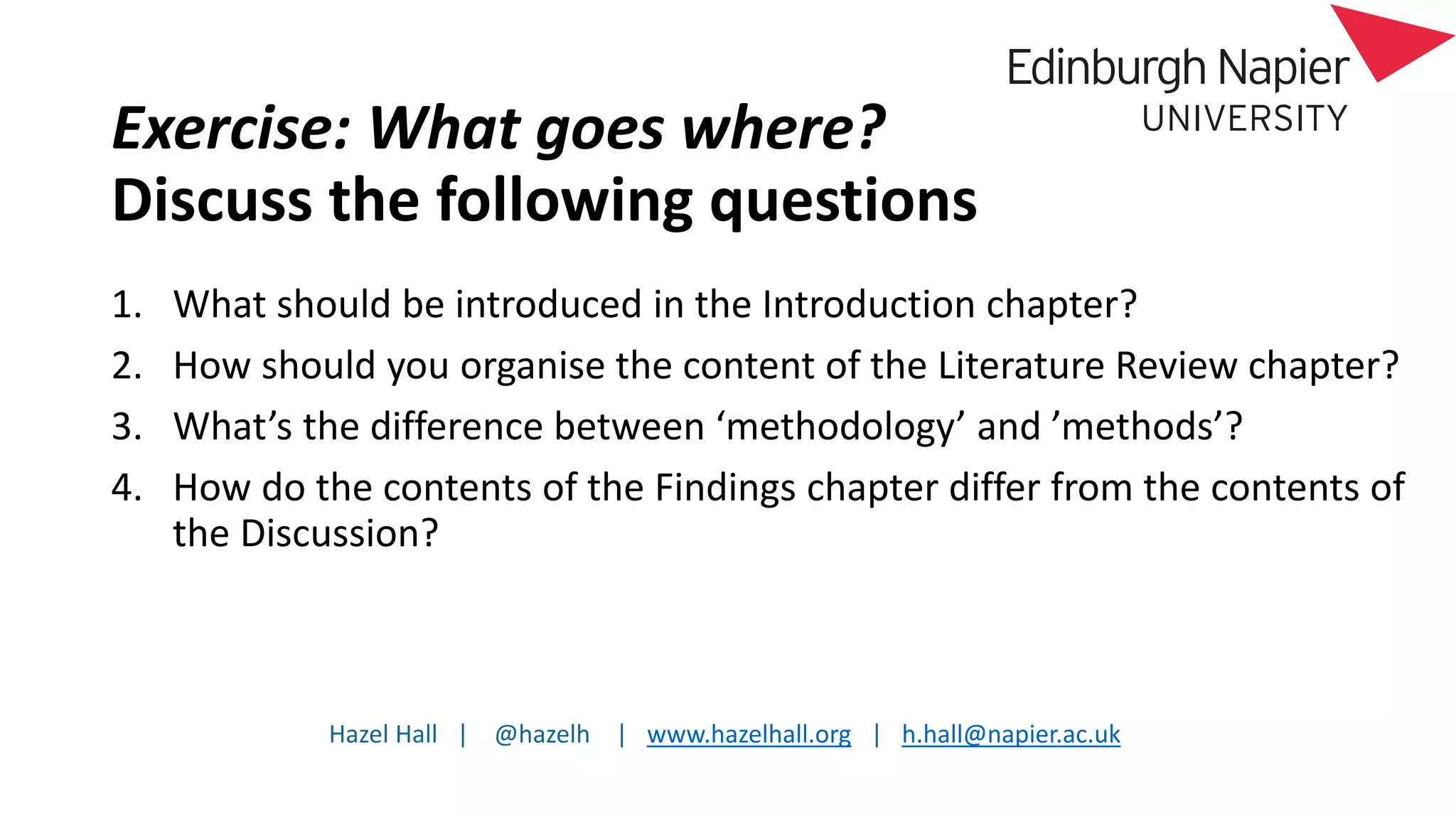
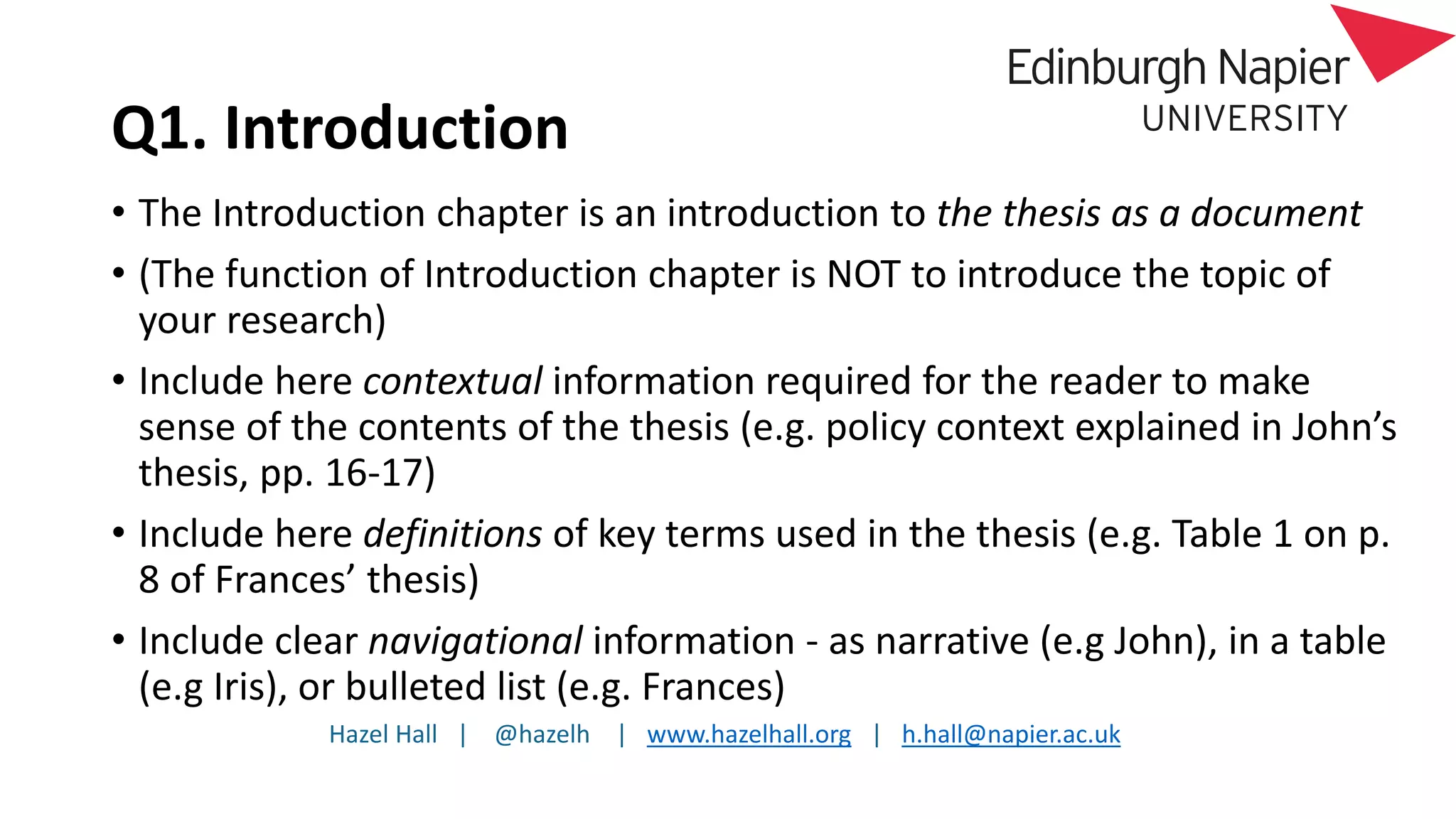
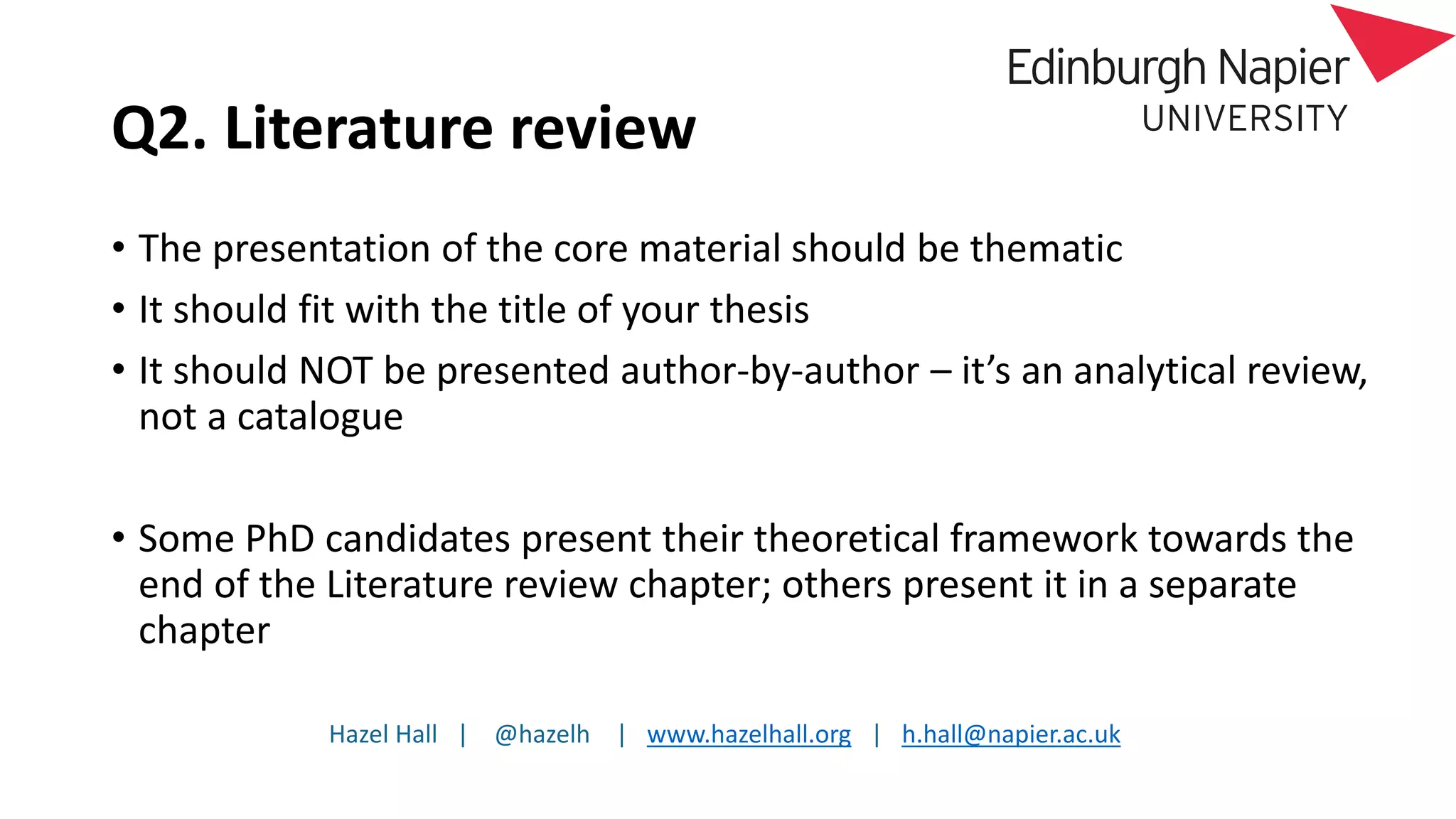
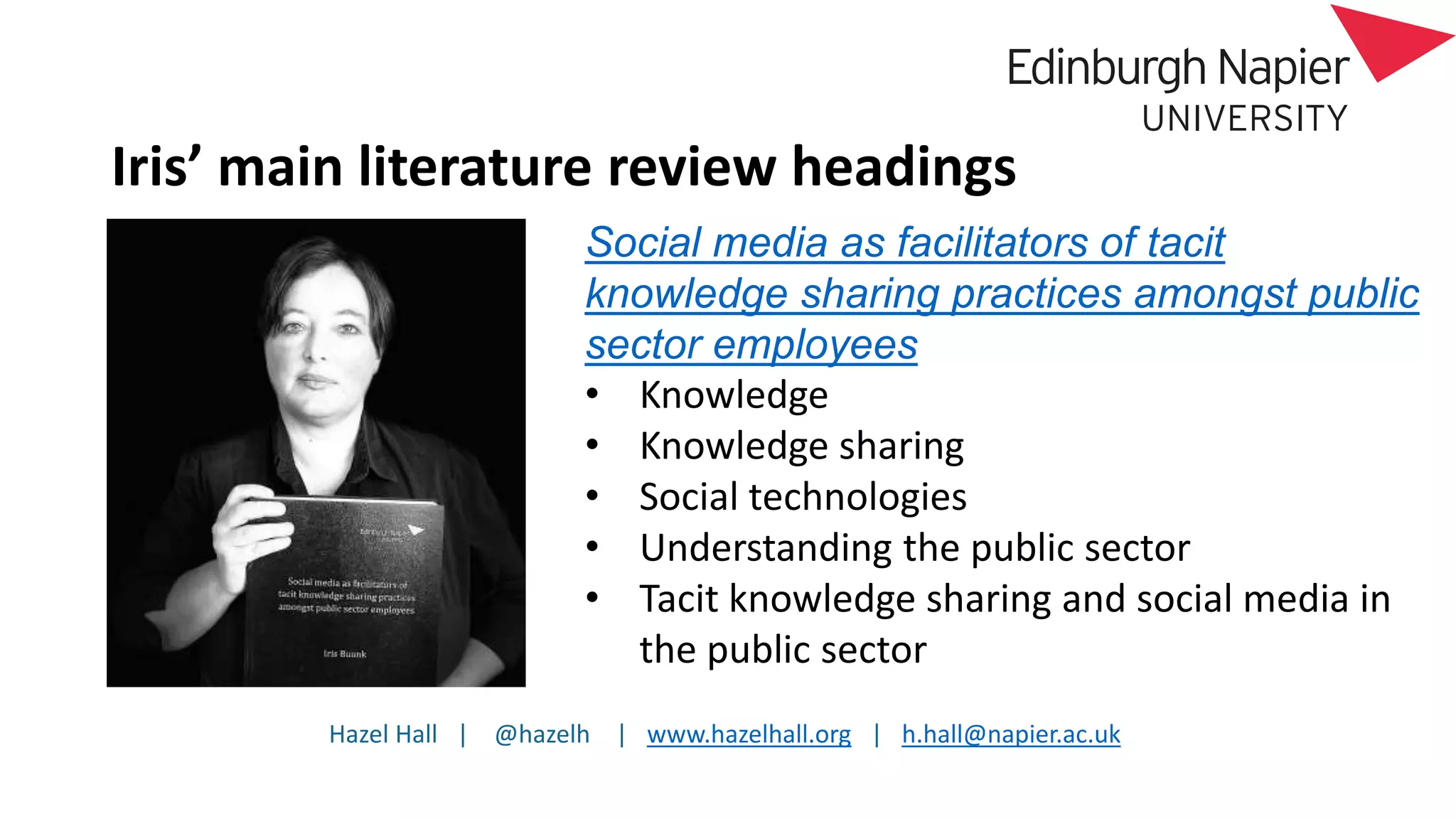
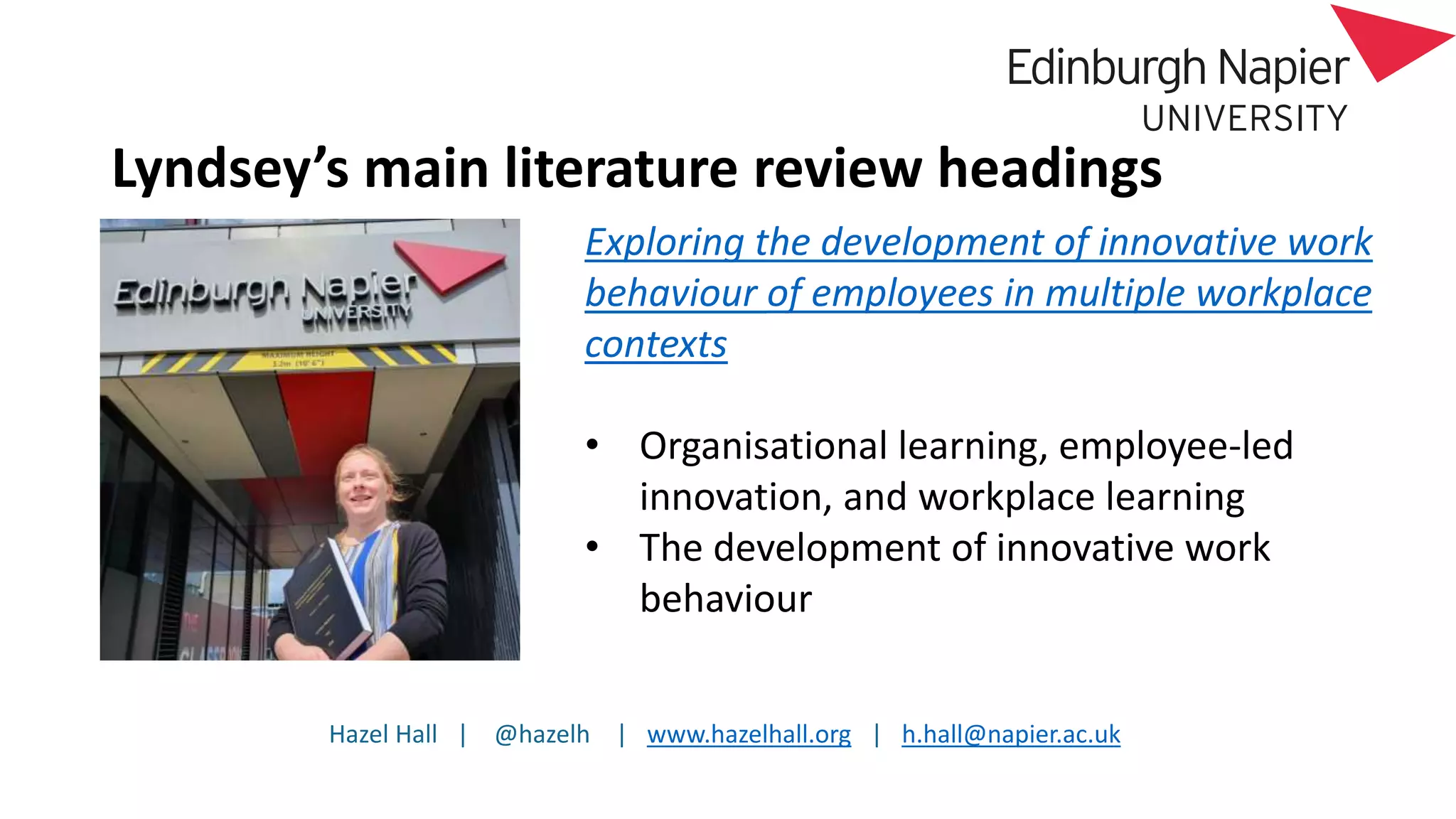
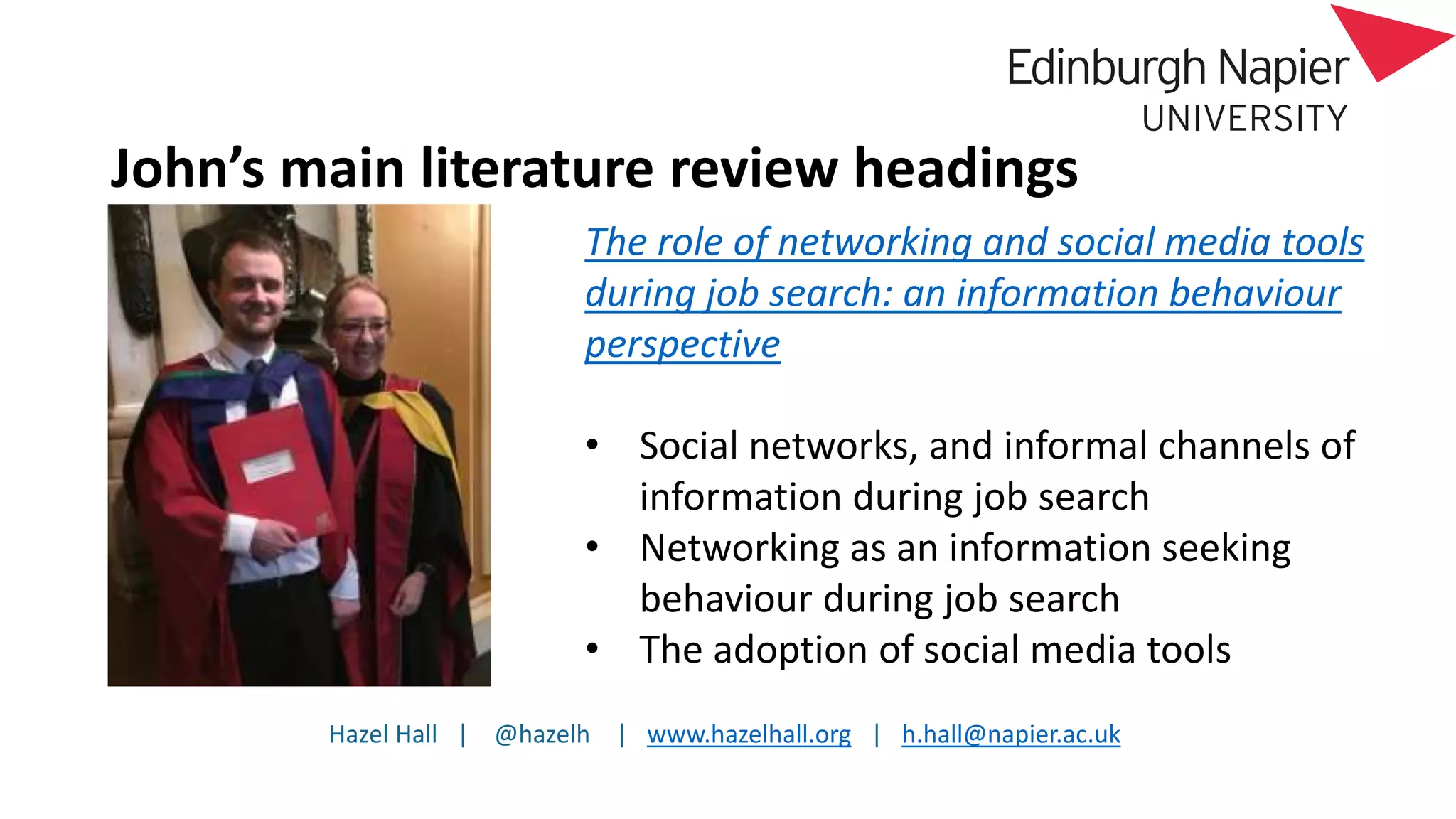
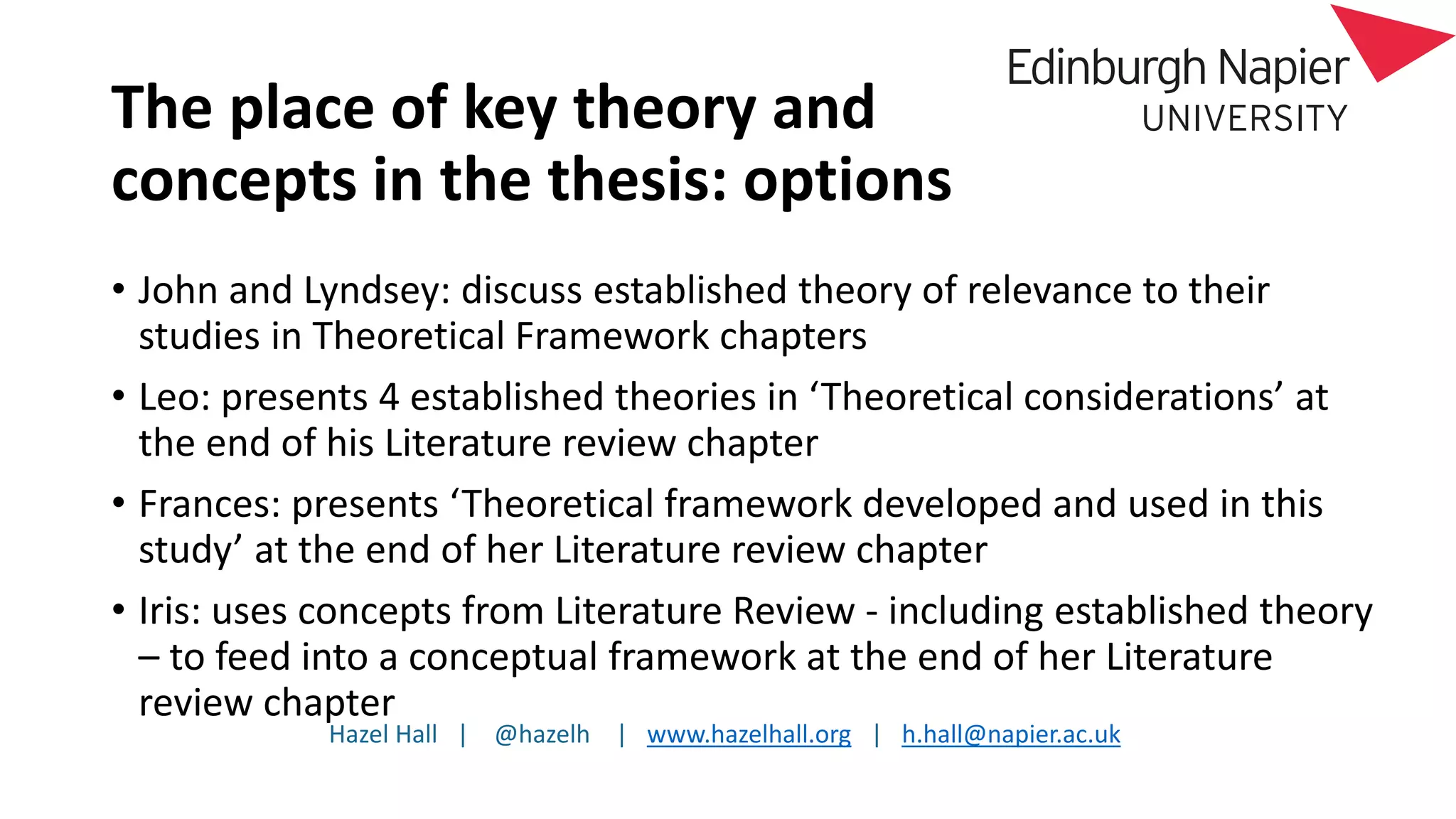
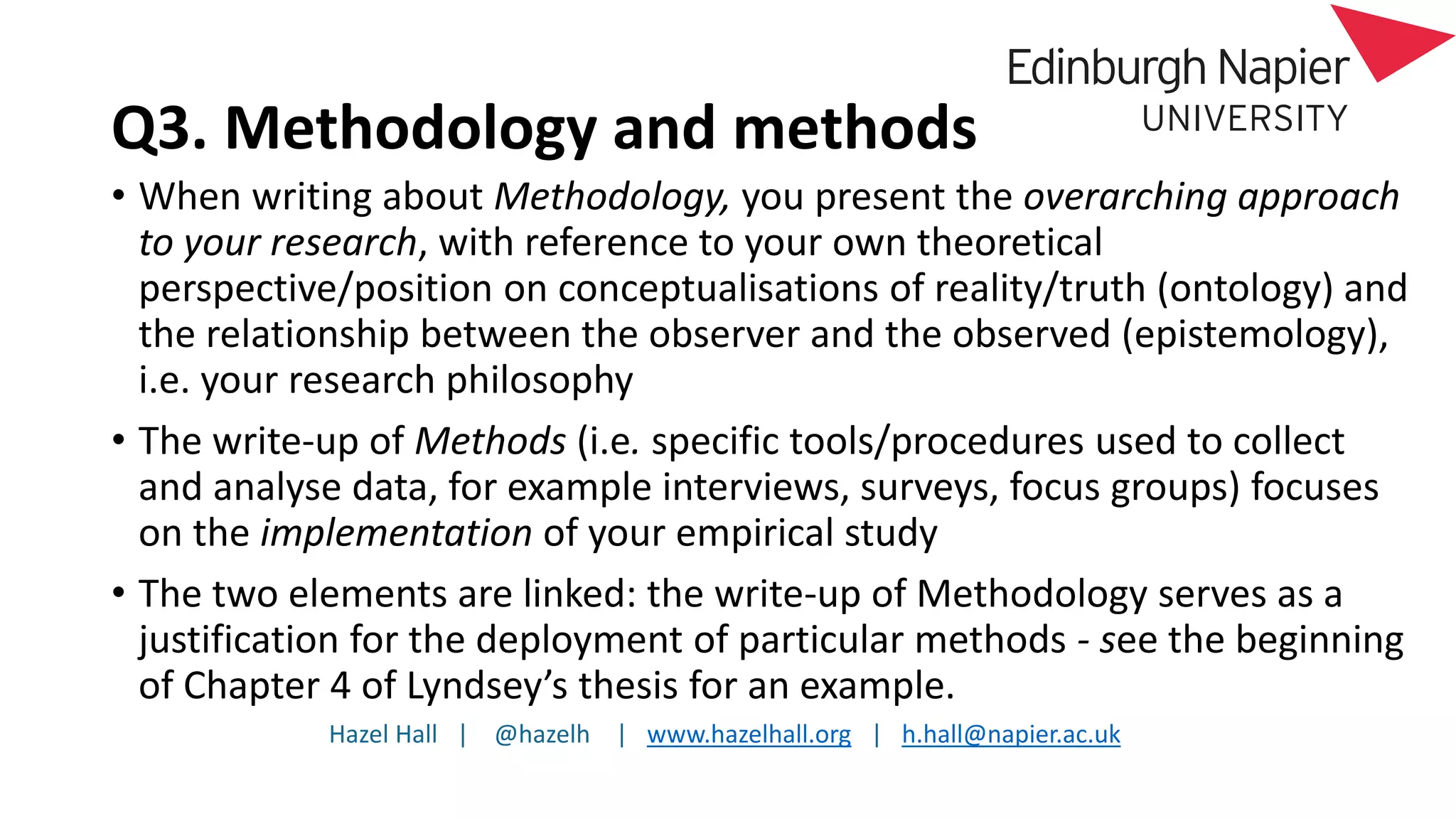
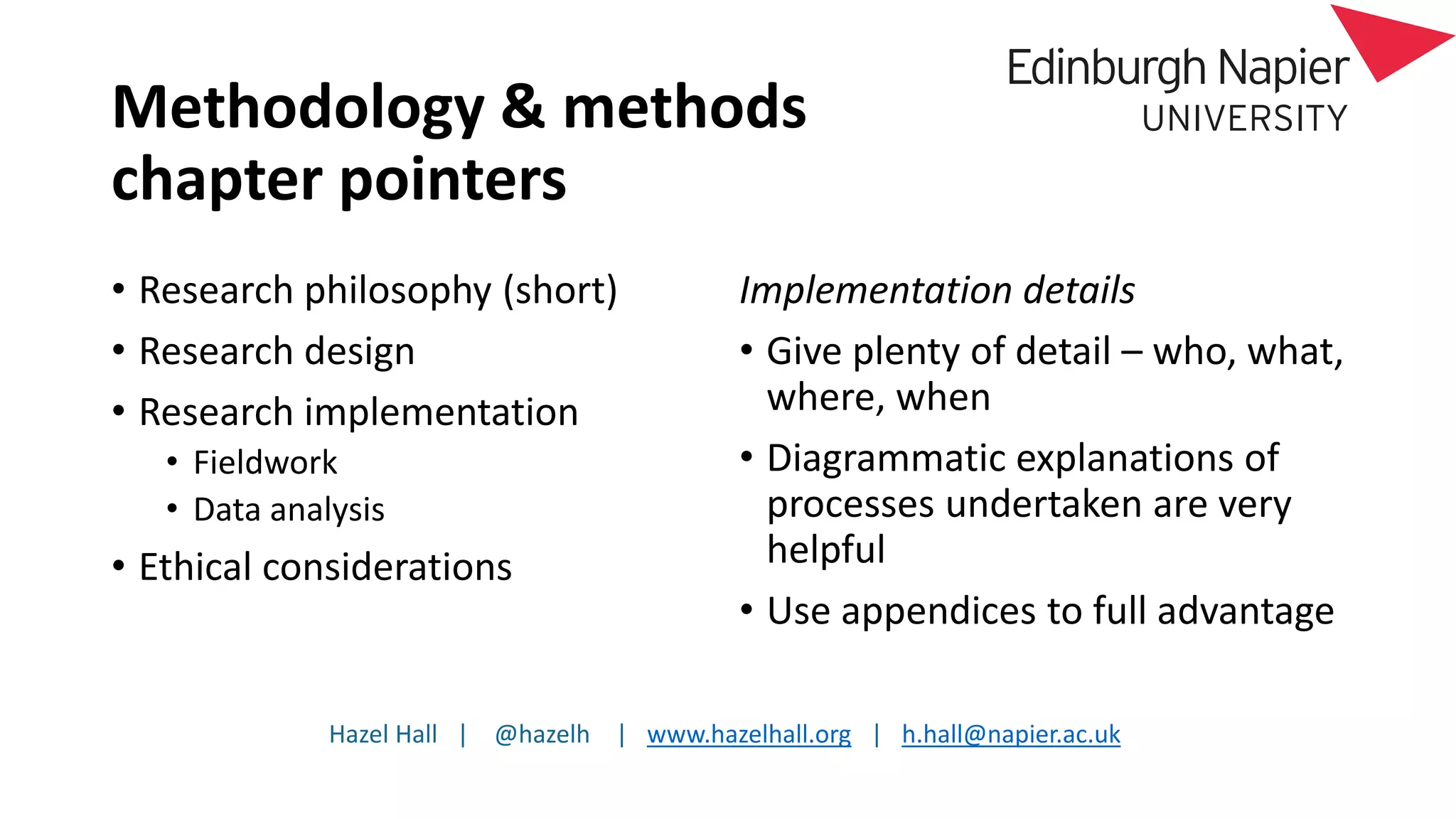
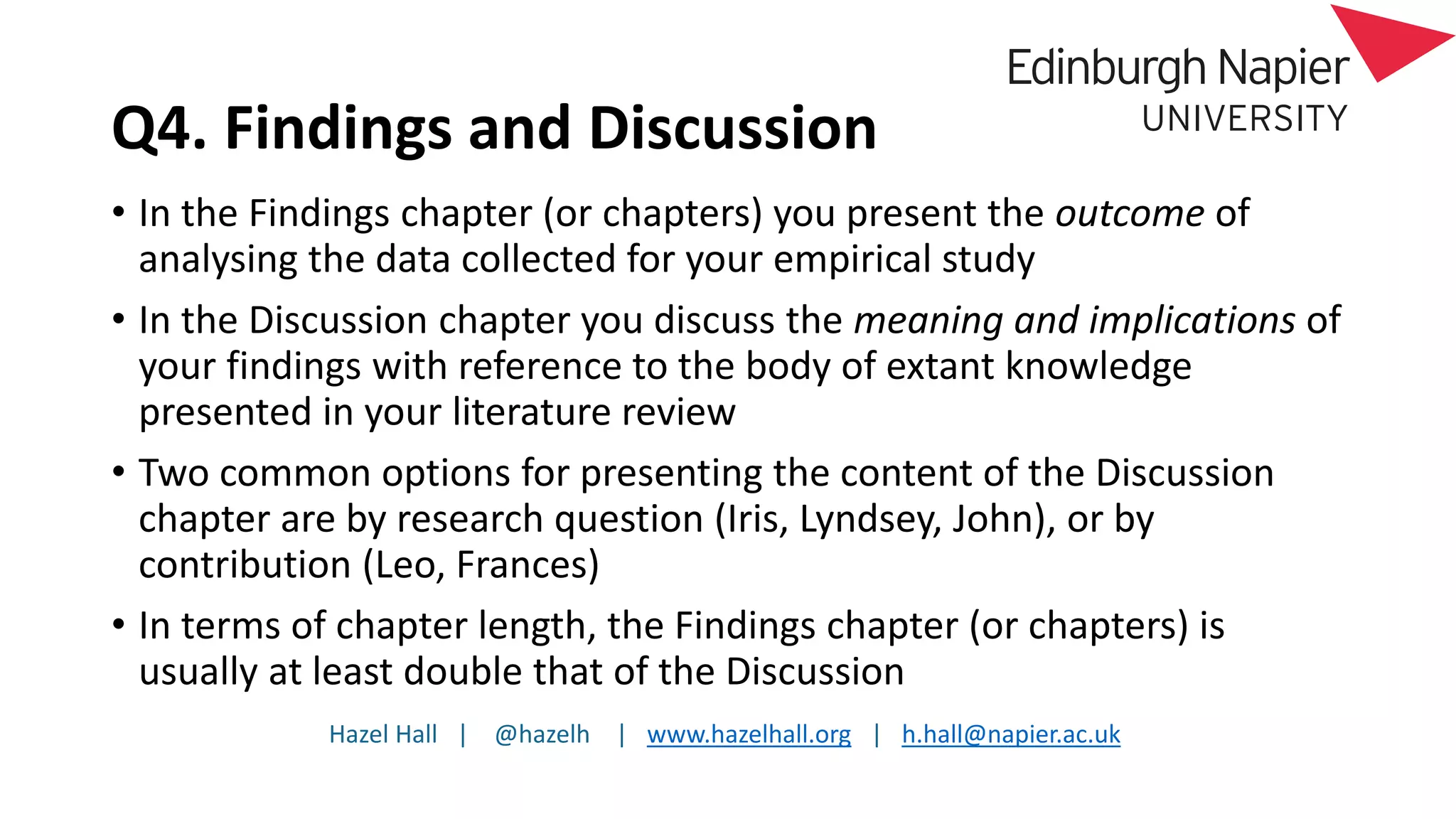
![Hazel Hall | @hazelh | www.hazelhall.org | h.hall@napier.ac.uk
Discussion chapter ‘recipe’ 1
• First remind the reader of extant knowledge (literature) on the
specific point of interest. Here you are mining your literature review
for Discussion chapter content. For example:
In prior work it has been found that… [summarise extant knowledge on the
specific point of interest from literature review], [cross references to pages in
the literature review chapter where the full detail can be found; if there is a
particular researcher who is important to your line of argument, add the
reference, otherwise give an example]
• OR, if nothing exists on this topic, say so. For example:
• Researchers in this domain have not previously focused their attention on the
topic of xyz.](https://image.slidesharecdn.com/thesiswriteup-230708163244-dbe4a75a/75/Preparation-of-the-PhD-thesis-for-examination-28-2048.jpg)
![Hazel Hall | @hazelh | www.hazelhall.org | h.hall@napier.ac.uk
Discussion chapter ‘recipe’ 2
• Then remind the reader of the knowledge on this point of interest
from your findings, as related in the earlier chapters of your thesis.
Here you are mining your Findings chapter(s) for Discussion chapter
content. For example:
The findings from this research show that… [summarise detail of your findings
on this point of interest] [cross references to pages in the Findings chapter(s)
where the detail can be found]](https://image.slidesharecdn.com/thesiswriteup-230708163244-dbe4a75a/75/Preparation-of-the-PhD-thesis-for-examination-29-2048.jpg)
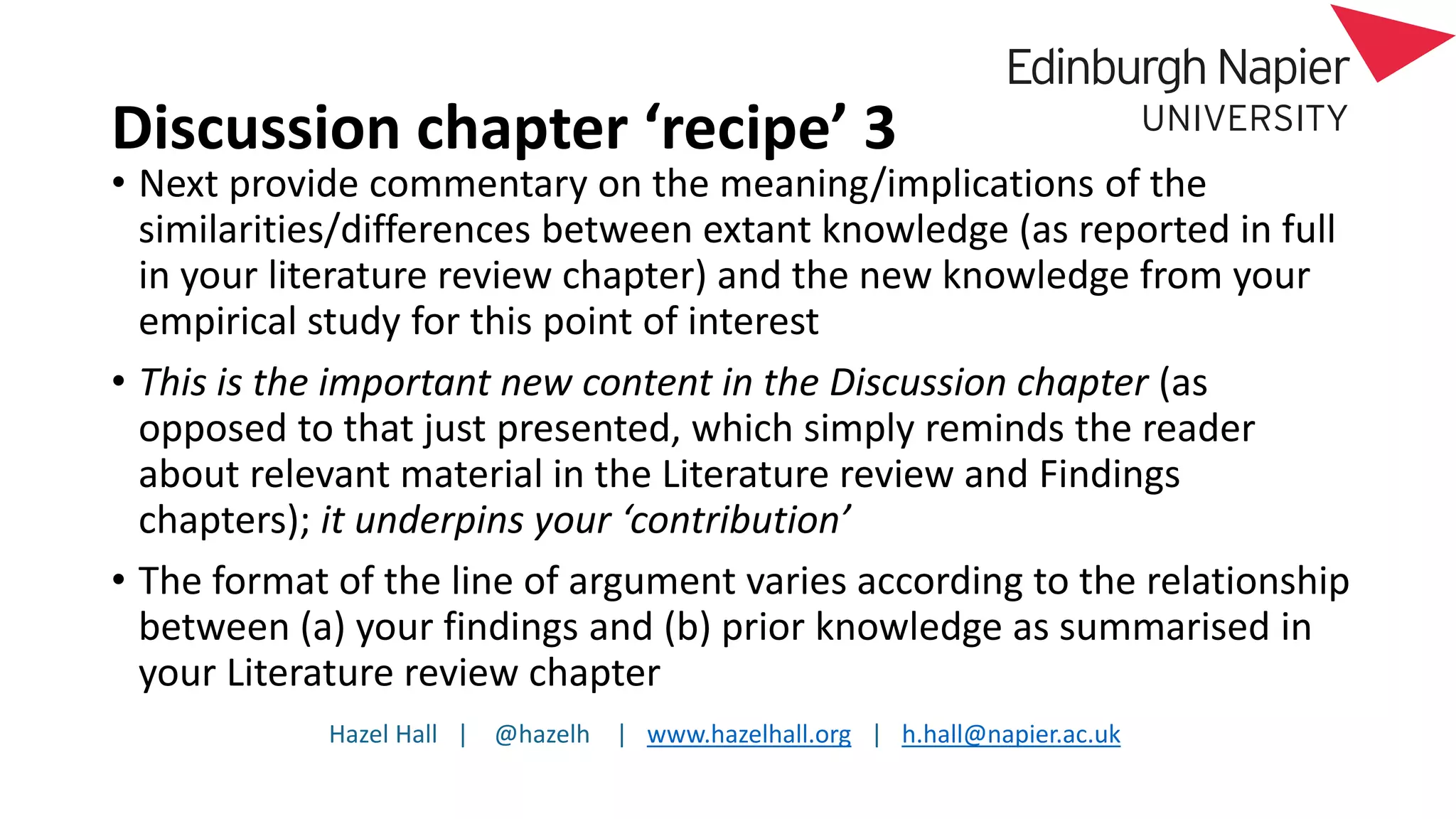
![Hazel Hall | @hazelh | www.hazelhall.org | h.hall@napier.ac.uk
Discussion chapter ‘recipe’ 4a
• If your findings don’t really add anything new:
These findings from the empirical work undertaken for this doctoral study are
largely in line with prior work, adding to the body of evidence presented by
other scholars such as [add main references] that [xyz].](https://image.slidesharecdn.com/thesiswriteup-230708163244-dbe4a75a/75/Preparation-of-the-PhD-thesis-for-examination-31-2048.jpg)
![Hazel Hall | @hazelh | www.hazelhall.org | h.hall@napier.ac.uk
Discussion chapter ‘recipe’ 4b
• If your findings extend prior knowledge:
While largely in line with prior work, the findings presented here add a further
dimension to the question of [xyz] in that [abc]. This research can therefore be
seen to extend the understanding of [xyz] in the context of [topic of research]. It
[give details of the extension to knowledge, why it is important, its implications
for research/practice/policy as appropriate].](https://image.slidesharecdn.com/thesiswriteup-230708163244-dbe4a75a/75/Preparation-of-the-PhD-thesis-for-examination-32-2048.jpg)
![Hazel Hall | @hazelh | www.hazelhall.org | h.hall@napier.ac.uk
Discussion chapter ‘recipe’ 4c
• If your findings are in opposition to extant knowledge:
In contrast with the main message from the literature, here it is seen that [xyz].
This can be accounted for [add the reason(s) why your work has come up with
findings that do not align with those in the literature. Explain the significance of
this, e.g. it could be to do with the methods deployed in your study, the source
of the data that you analysed]. The implications of this finding is/are [add the
implication(s) – for research/practice/policy as appropriate].](https://image.slidesharecdn.com/thesiswriteup-230708163244-dbe4a75a/75/Preparation-of-the-PhD-thesis-for-examination-33-2048.jpg)
![Hazel Hall | @hazelh | www.hazelhall.org | h.hall@napier.ac.uk
Discussion chapter ‘recipe’ 4d
• If your findings are completely new:
These findings demonstrate a novel contribution to research in this domain. As
well as having value in their own right, they open up new areas for investigation
such as [elaborate your ideas].](https://image.slidesharecdn.com/thesiswriteup-230708163244-dbe4a75a/75/Preparation-of-the-PhD-thesis-for-examination-34-2048.jpg)
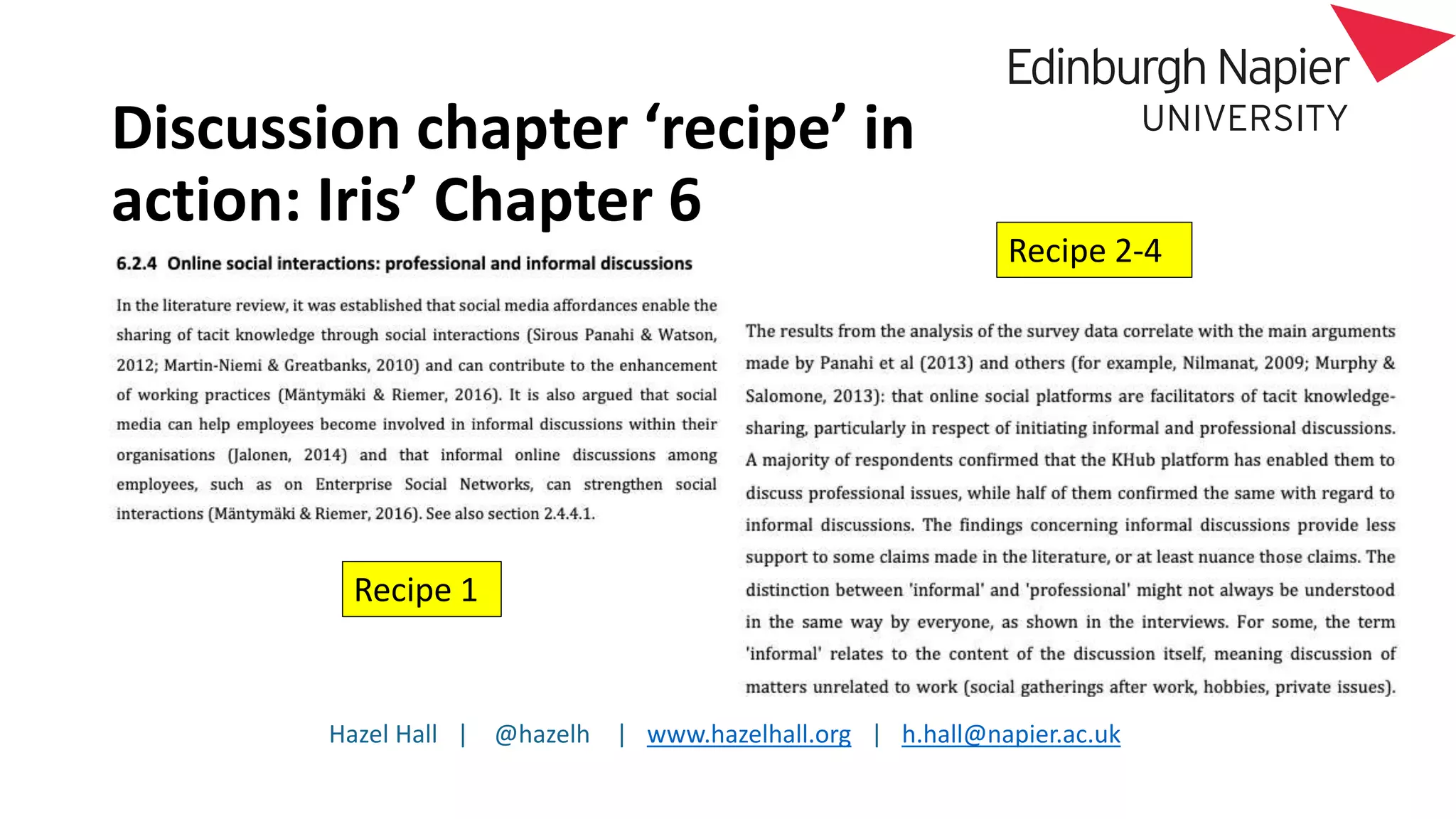
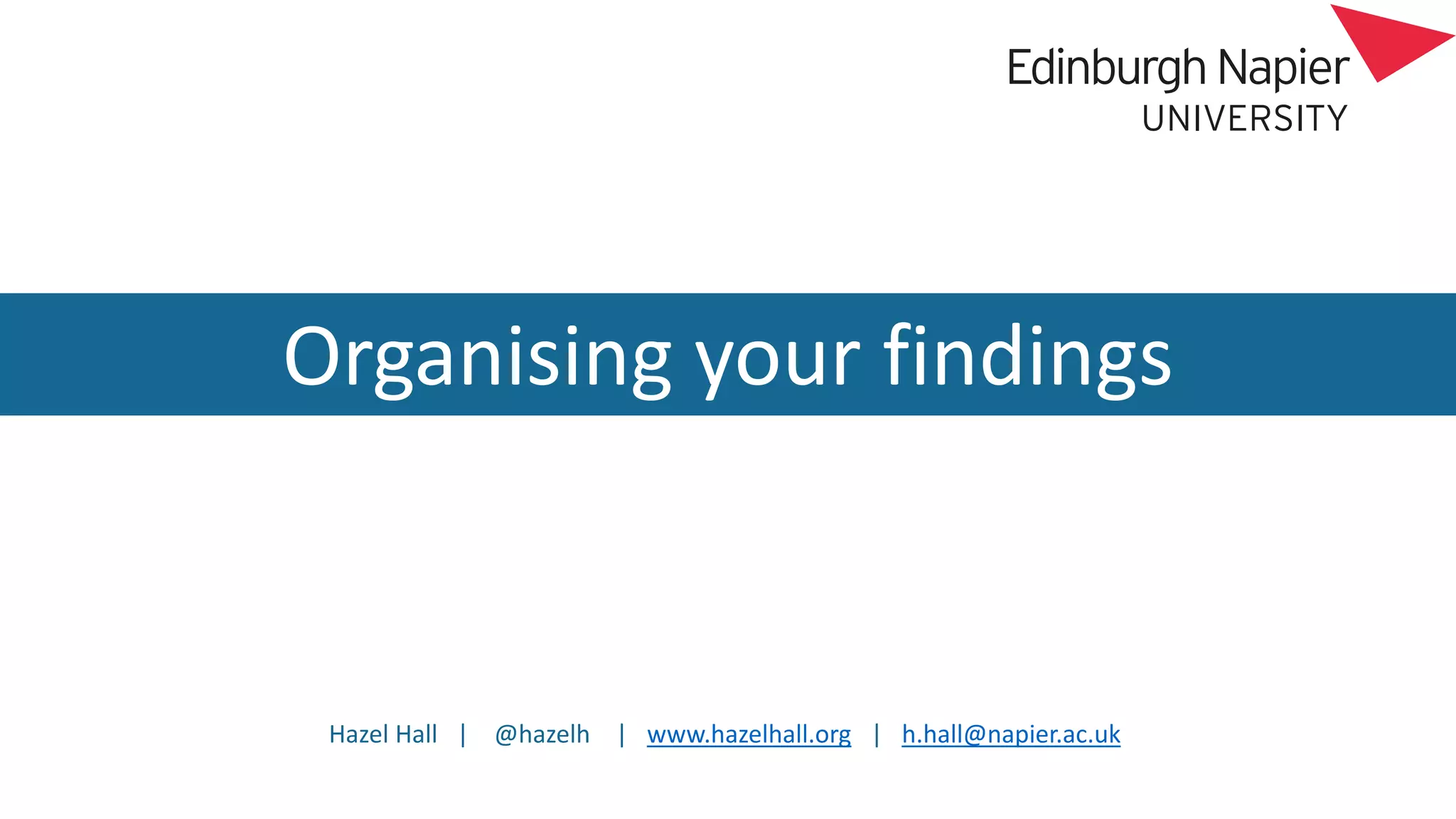
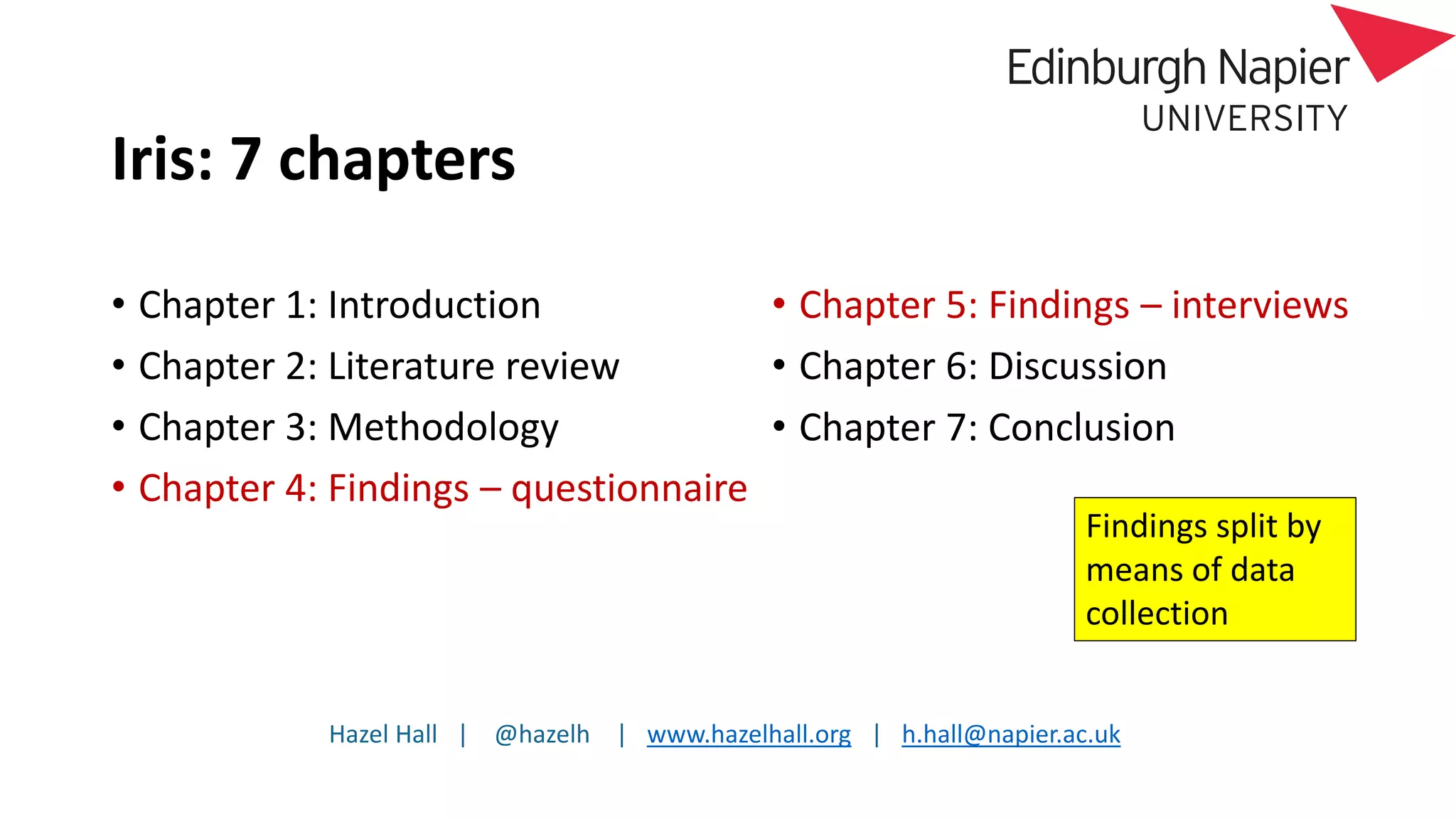
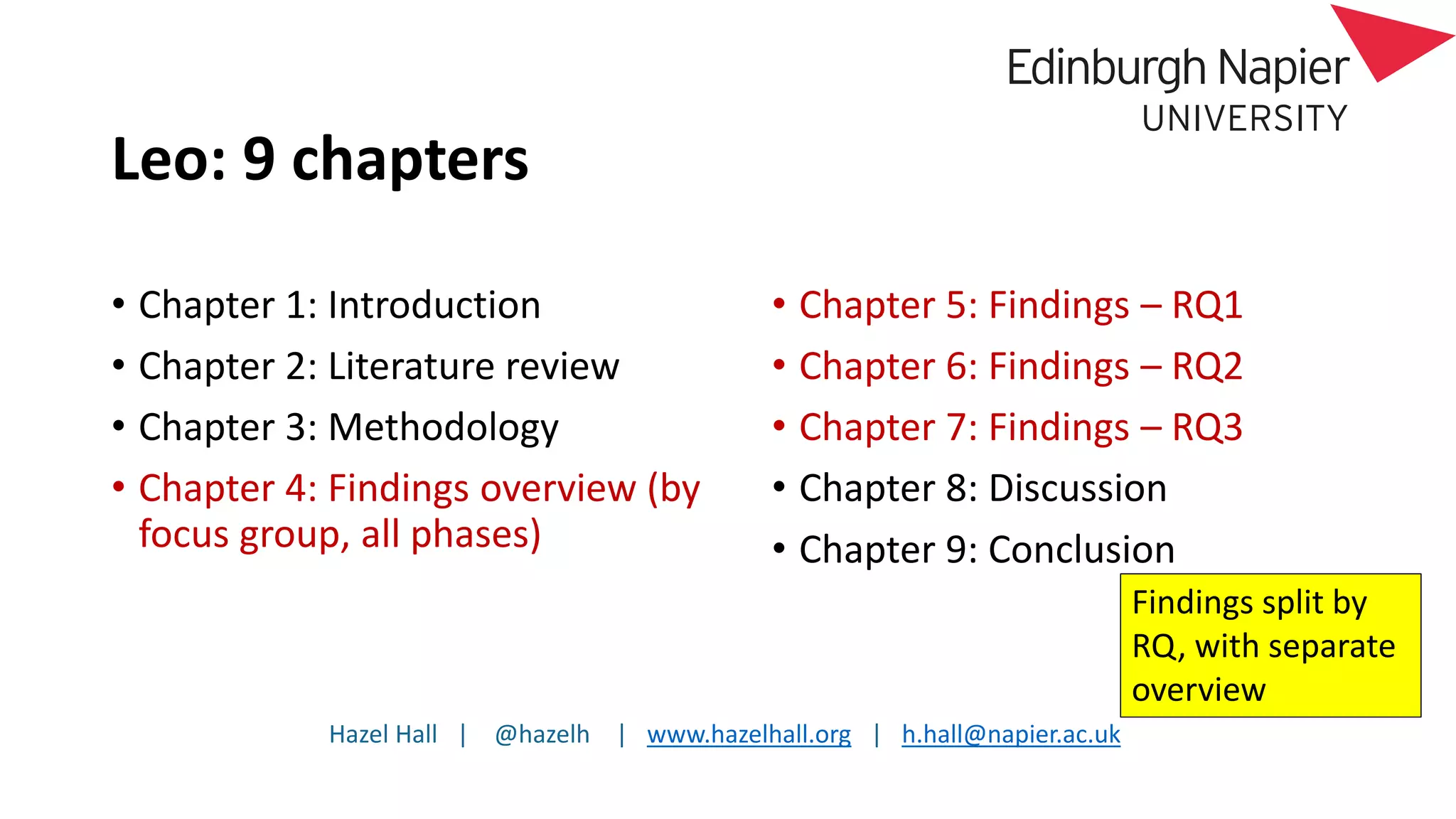
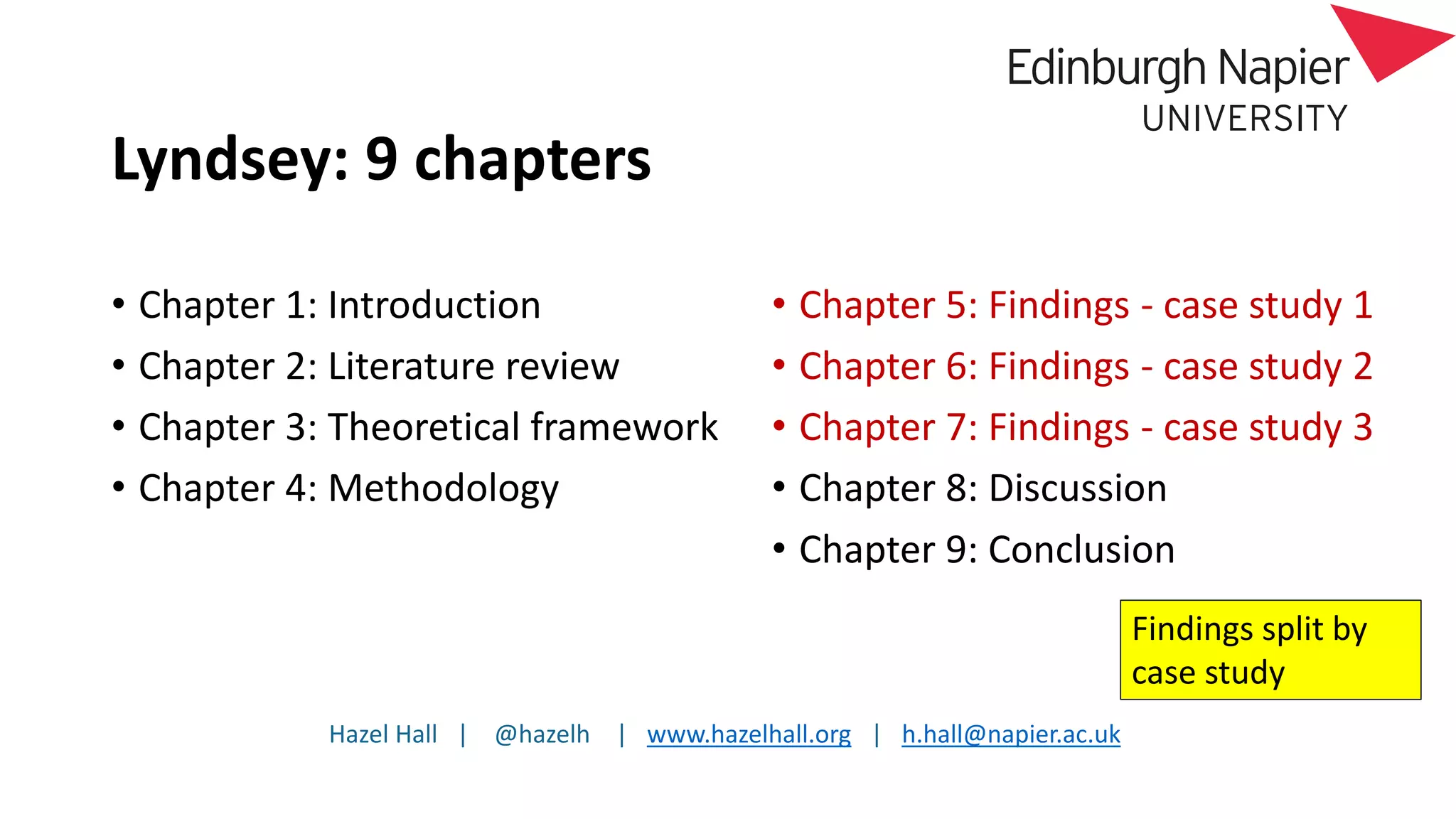
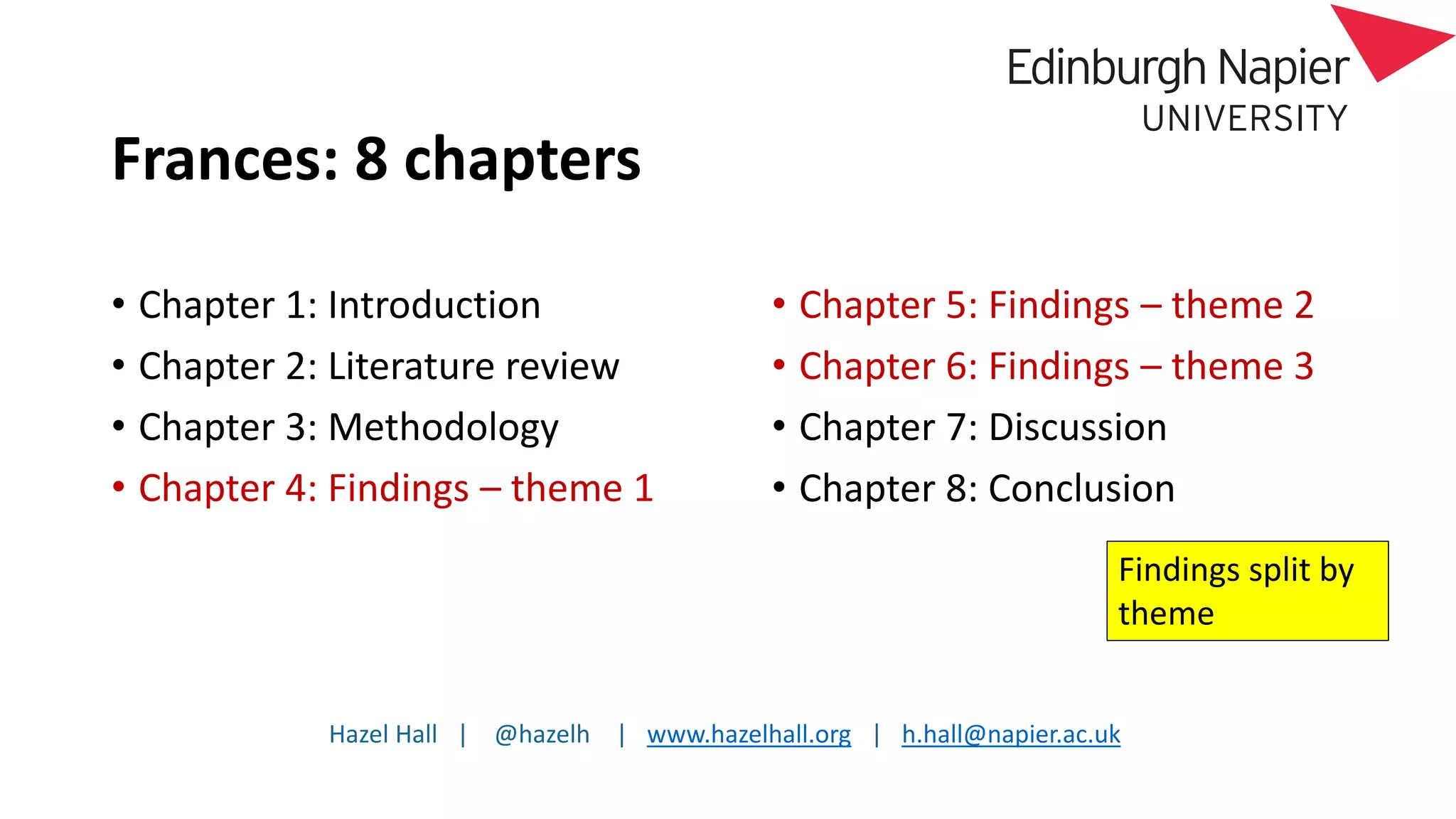
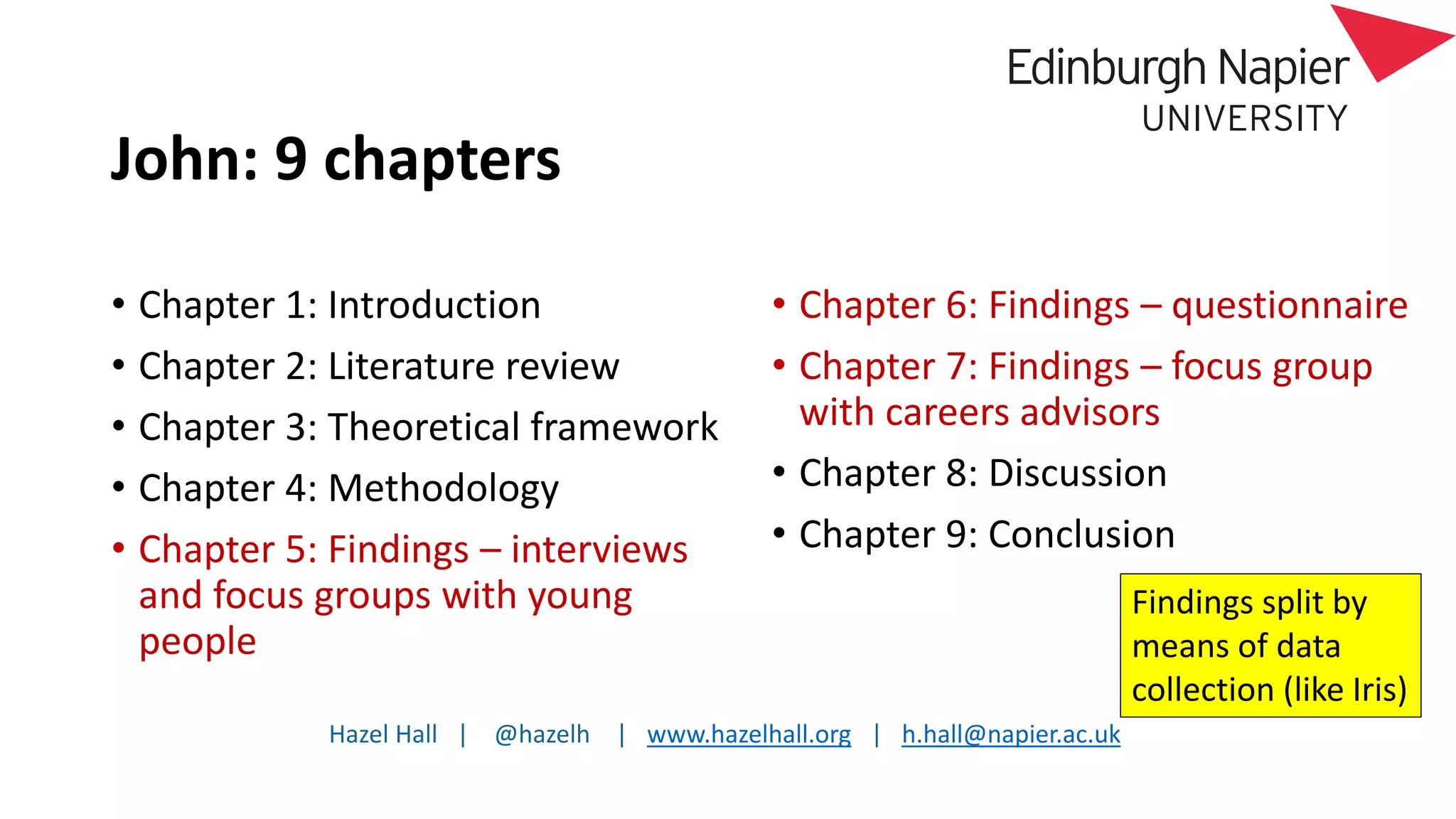
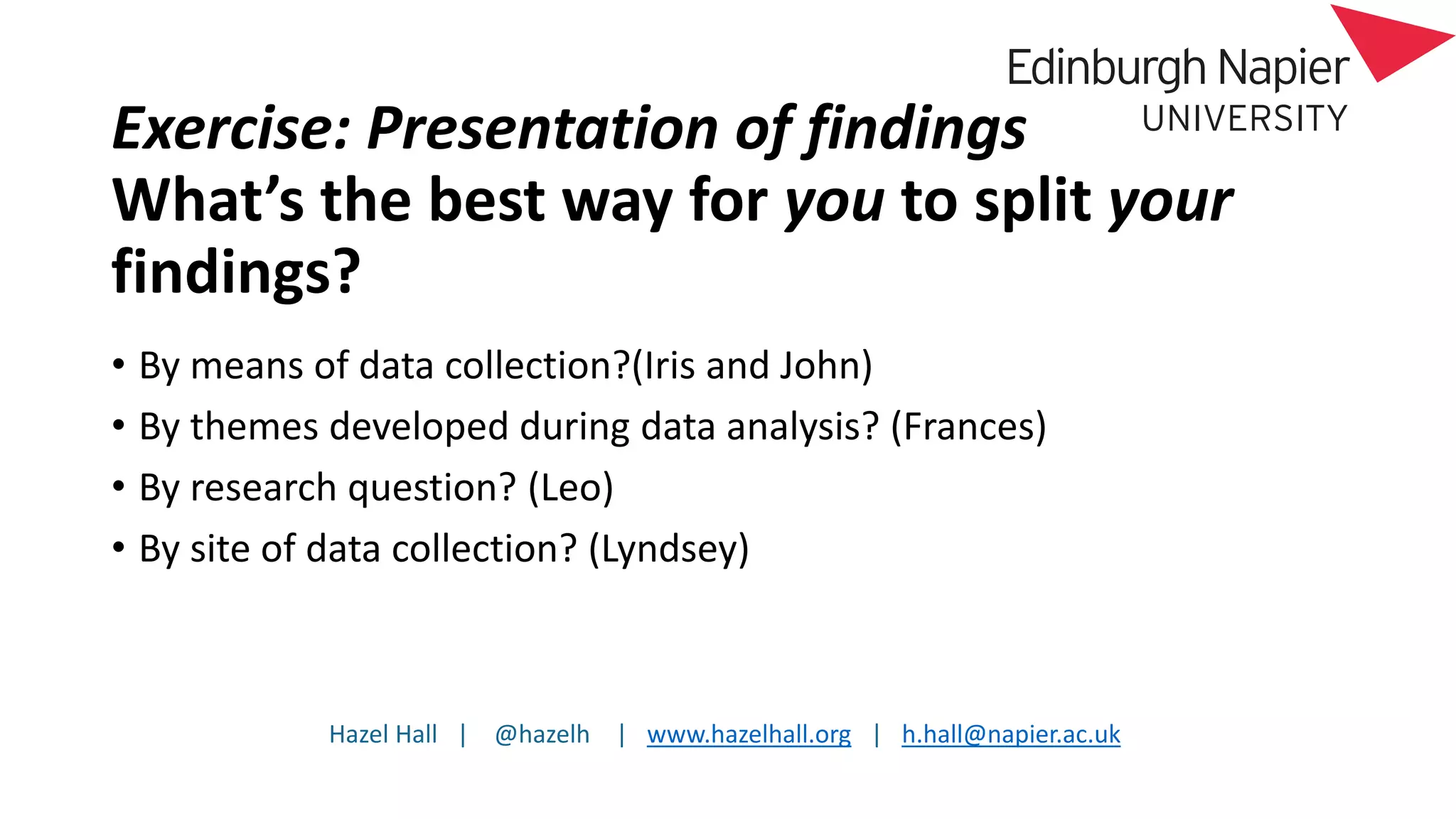
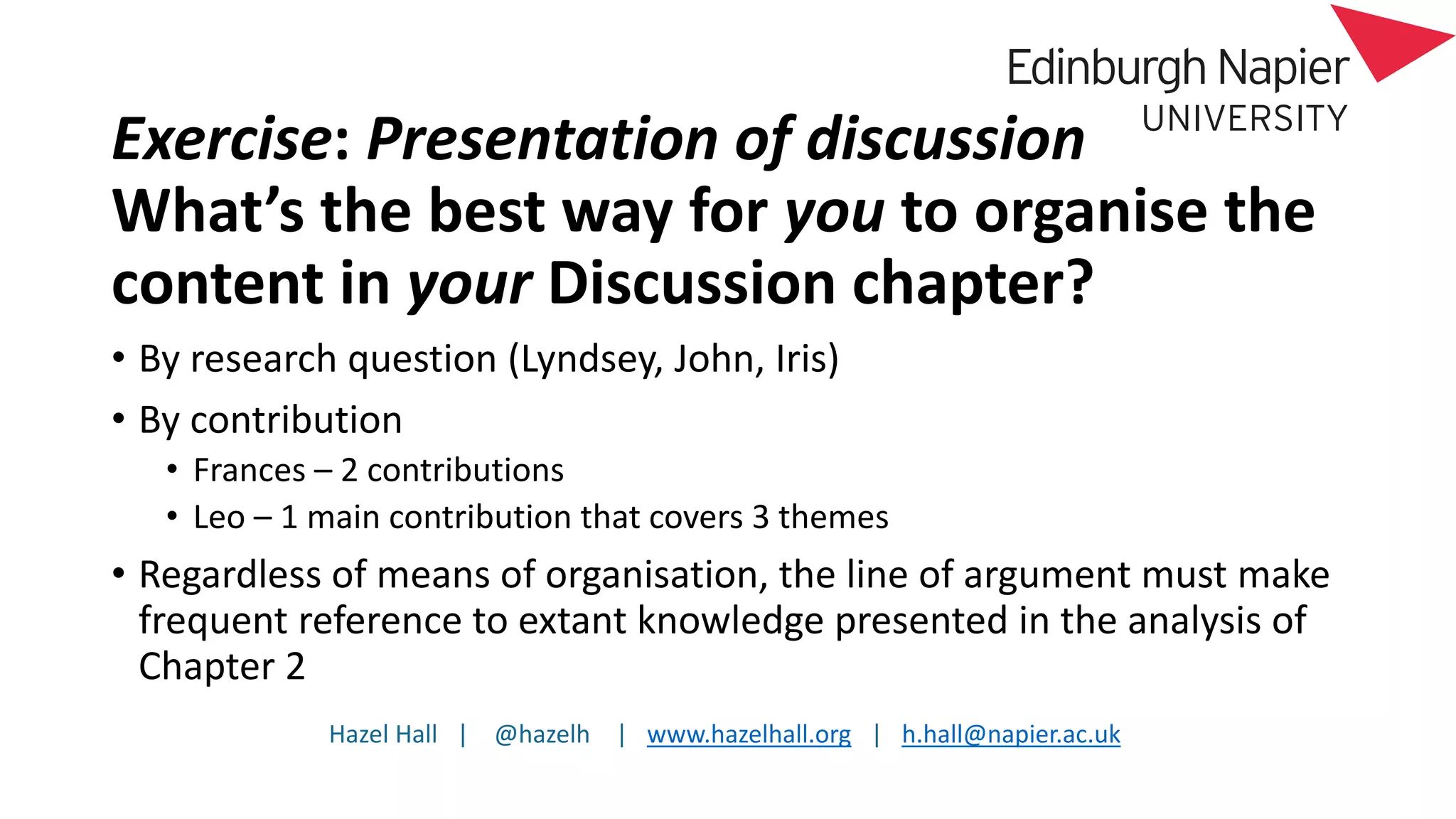
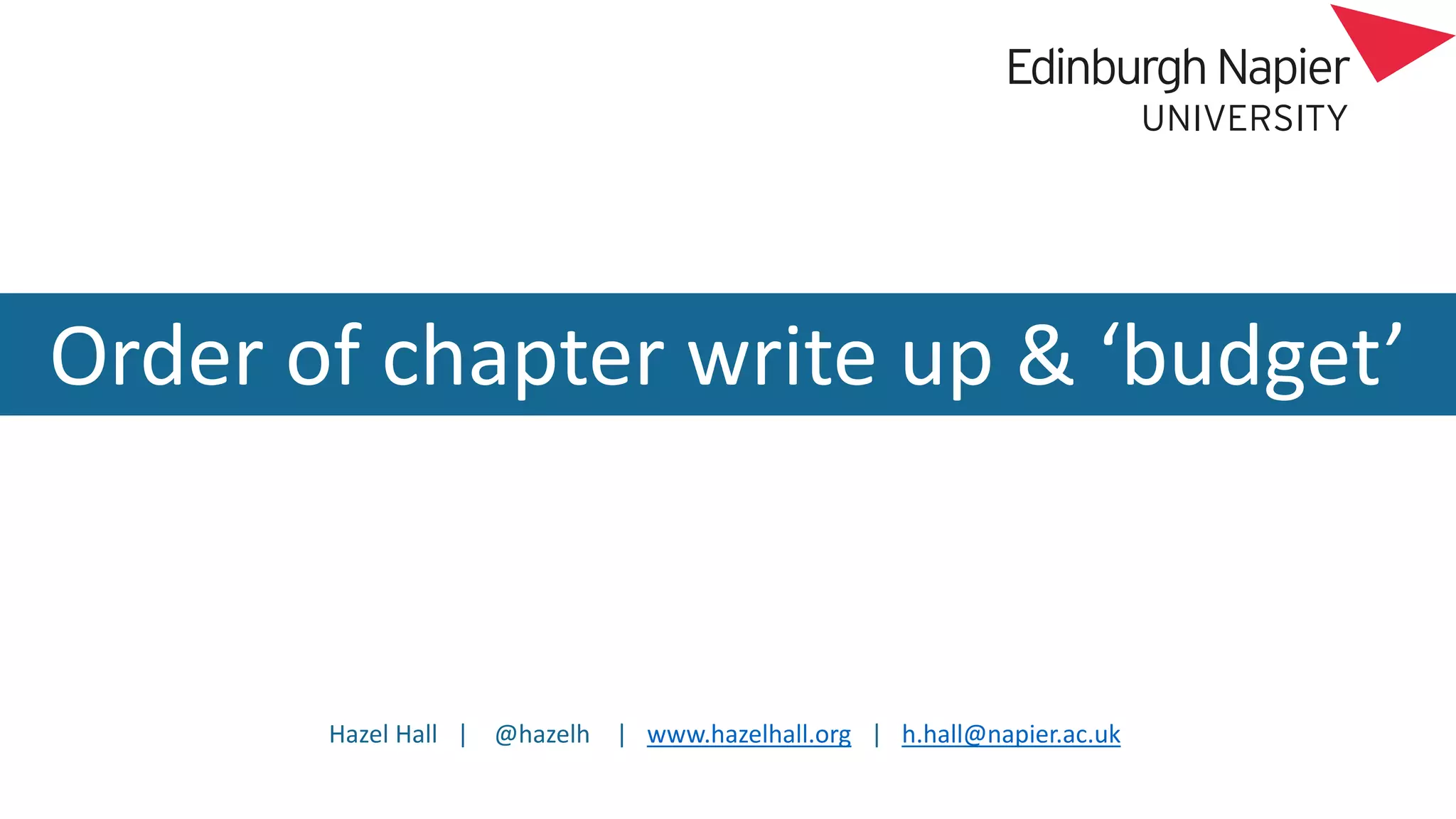
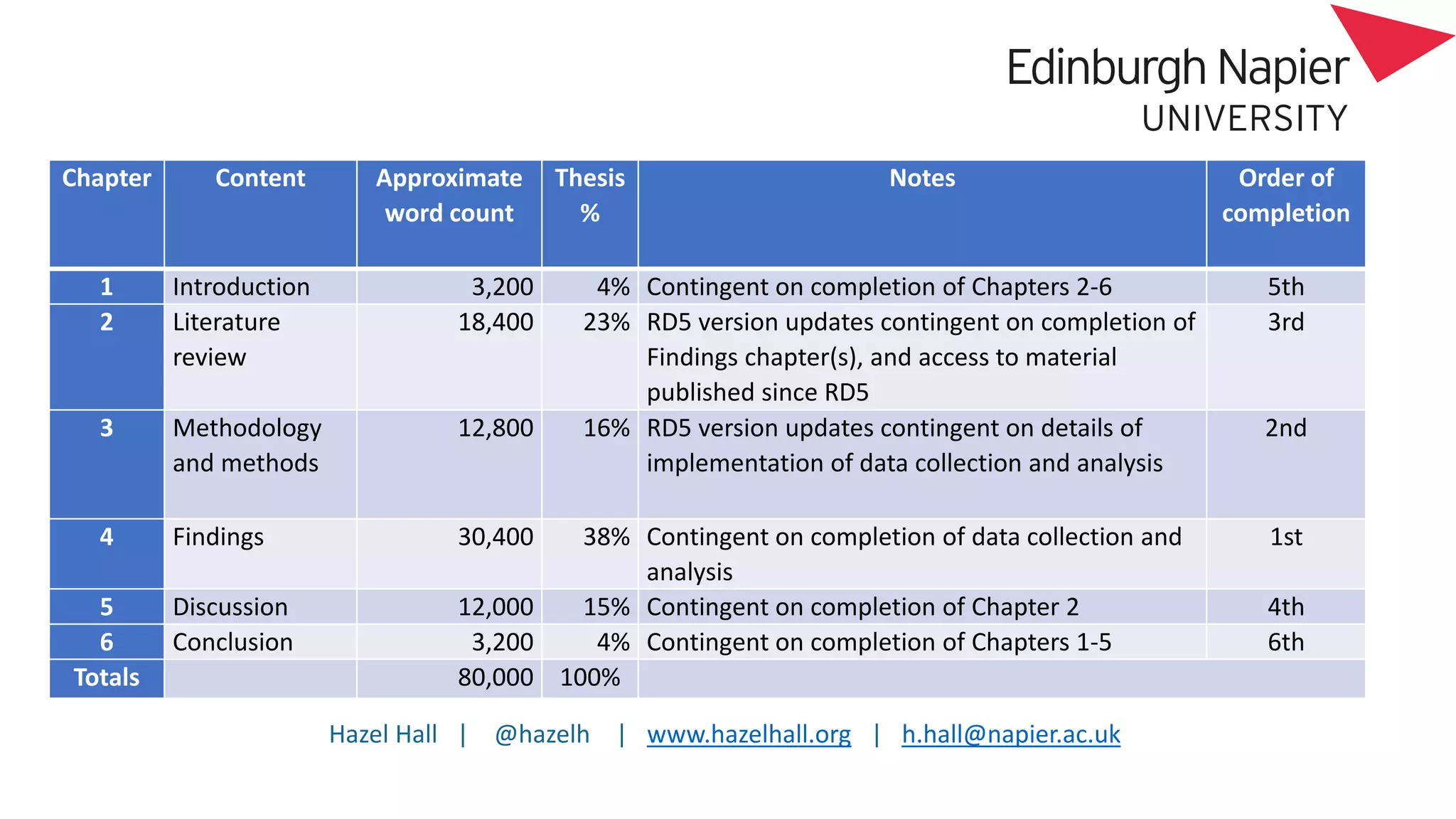
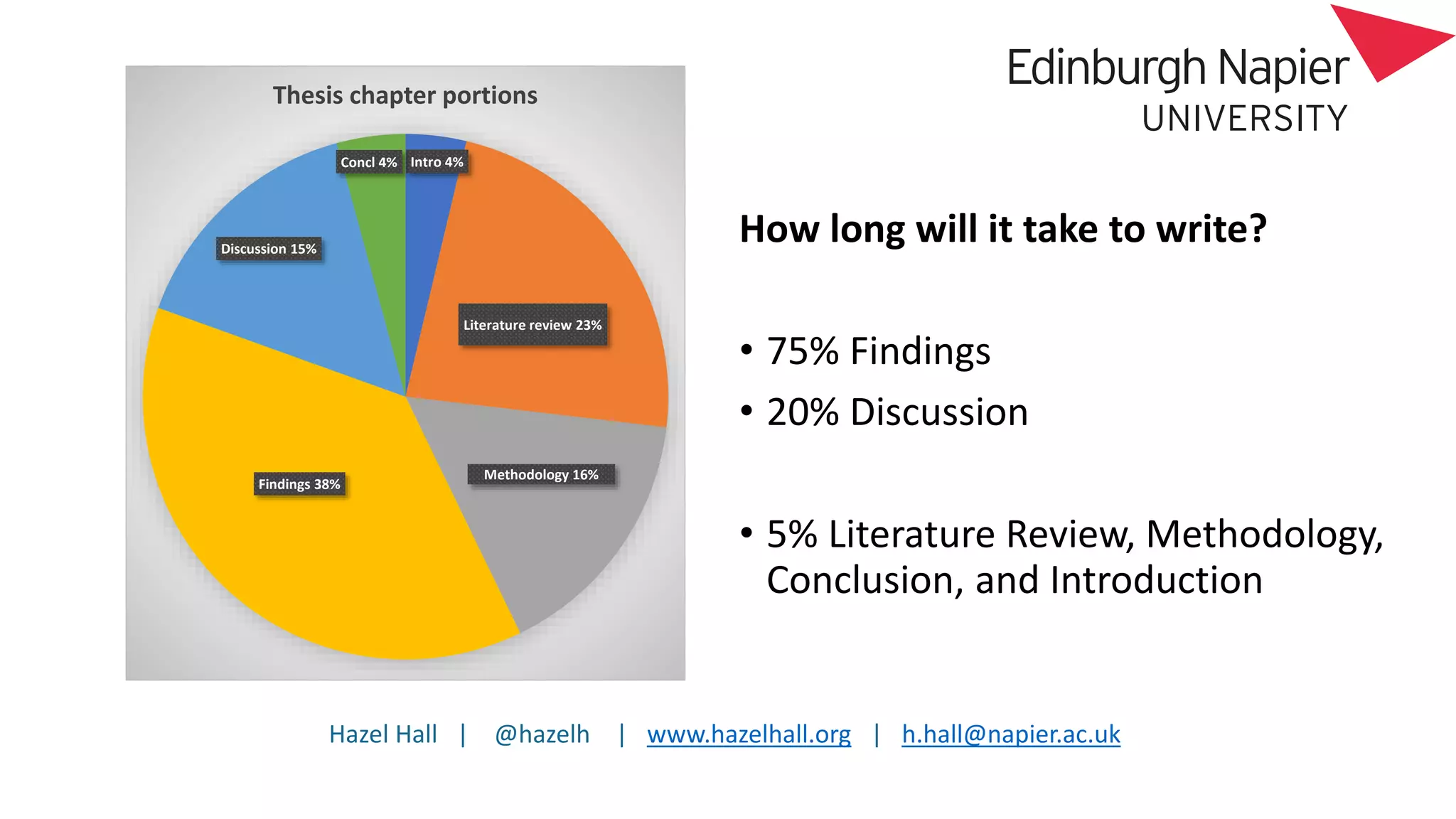
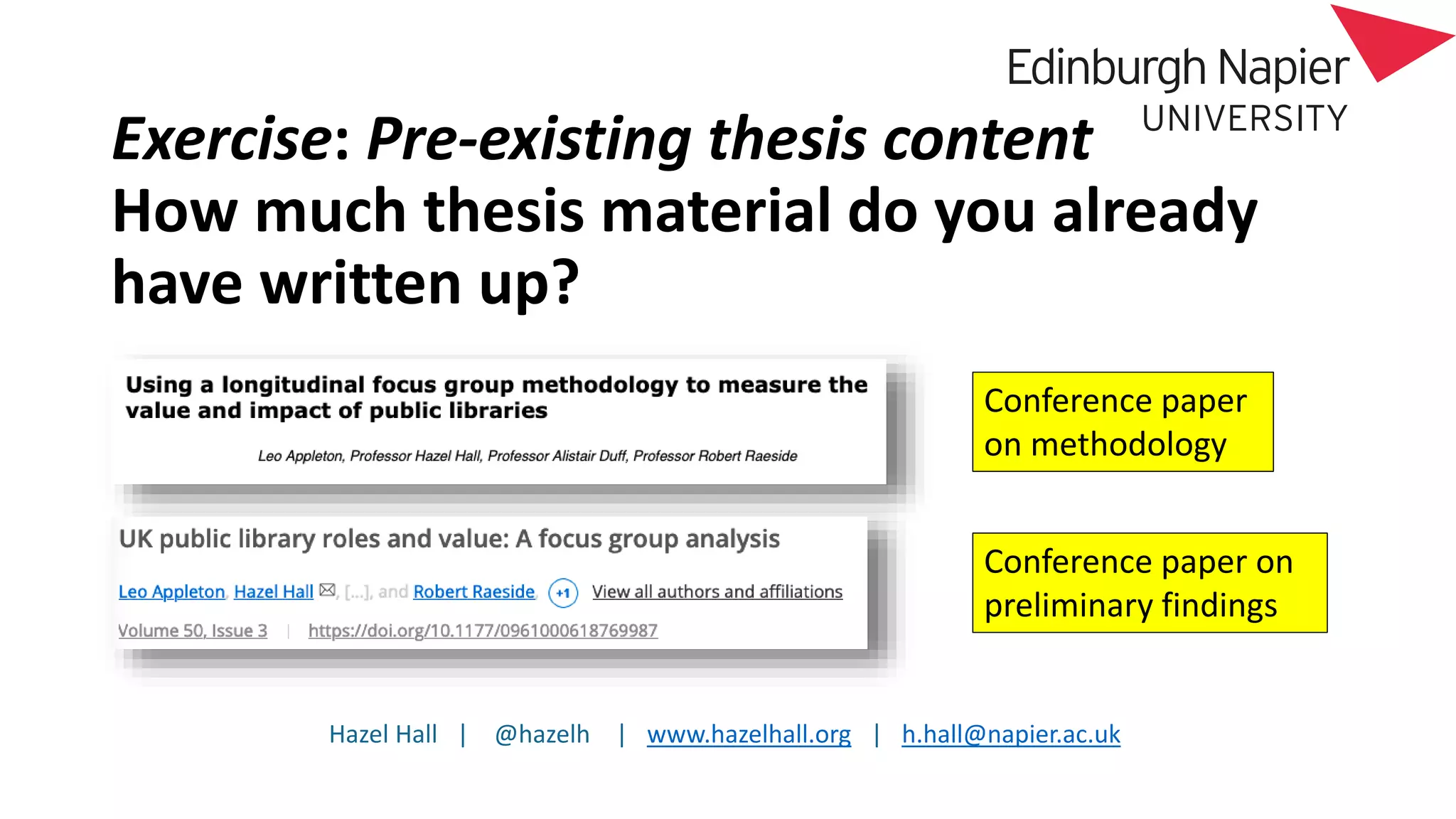
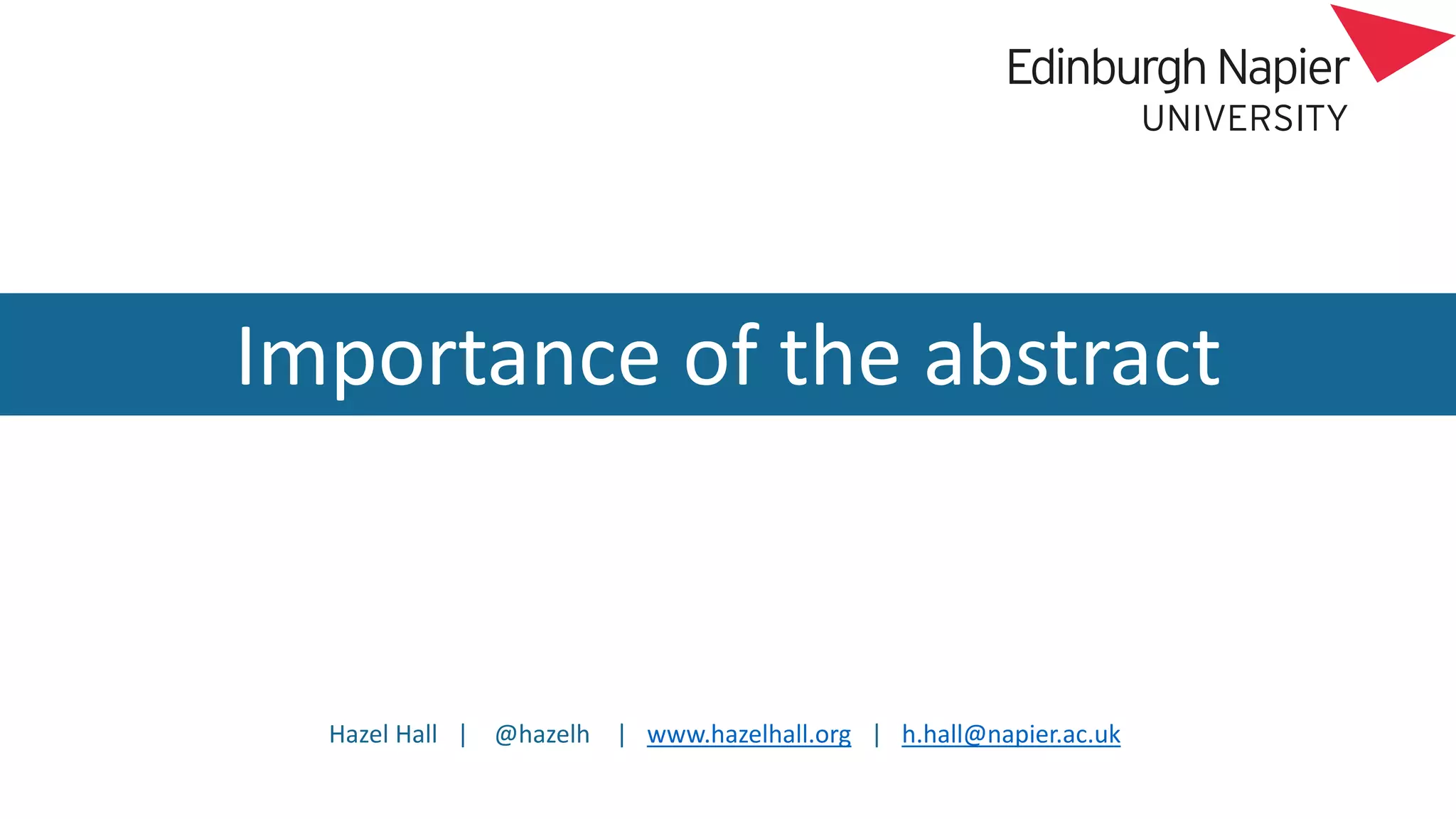
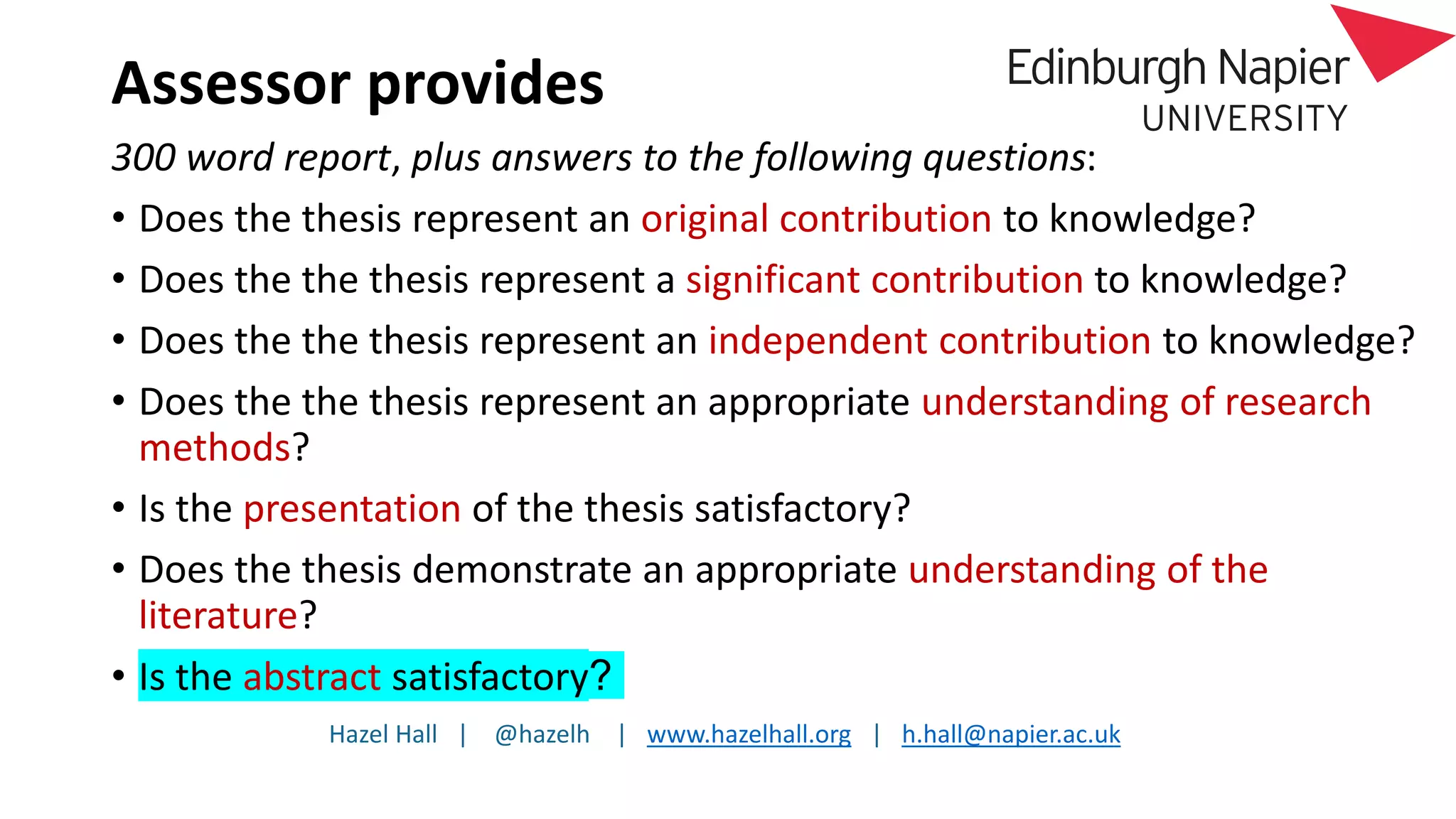
![Hazel Hall | @hazelh | www.hazelhall.org | h.hall@napier.ac.uk
Thesis abstract ‘recipe’
This work is concerned with [broad topic].
The main contributions of the research relate to [sub-areas of broad topic].
The findings extend knowledge of [xyz].
The findings derive from [brief explanation of approach to data collection and analysis].
The main contributions of the research are [state contributions, both theoretical and
practical]. These contributions are significant because [state reasons].](https://image.slidesharecdn.com/thesiswriteup-230708163244-dbe4a75a/75/Preparation-of-the-PhD-thesis-for-examination-50-2048.jpg)
